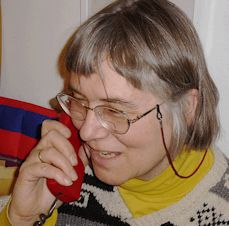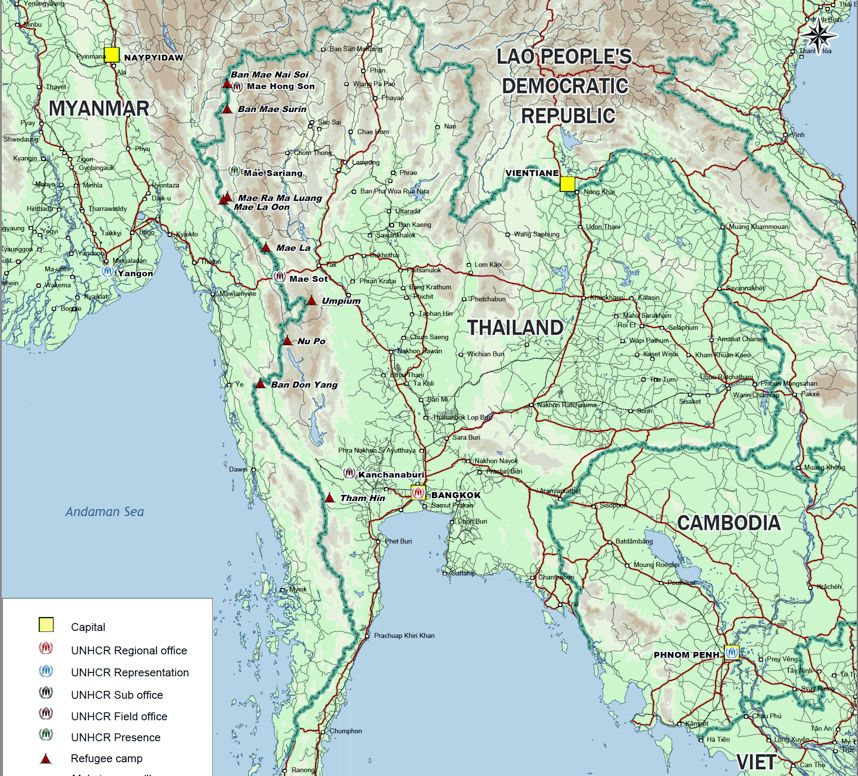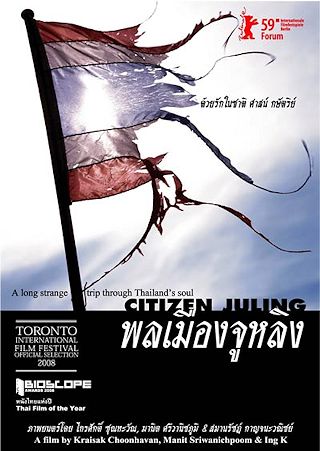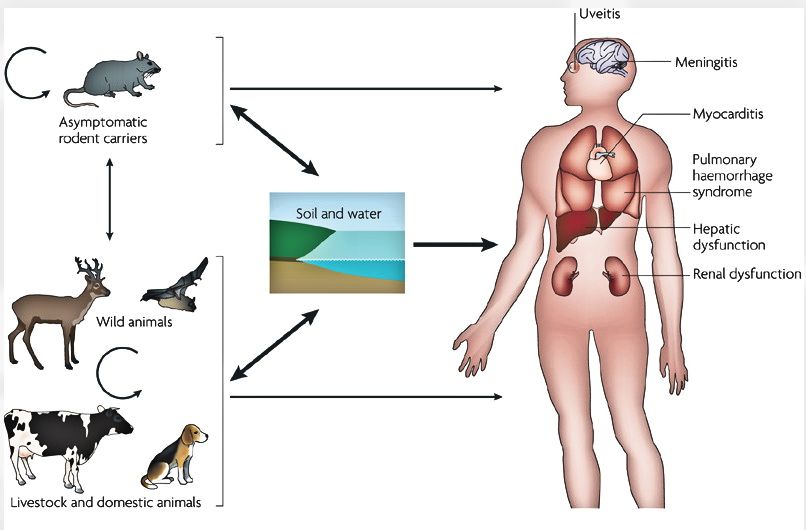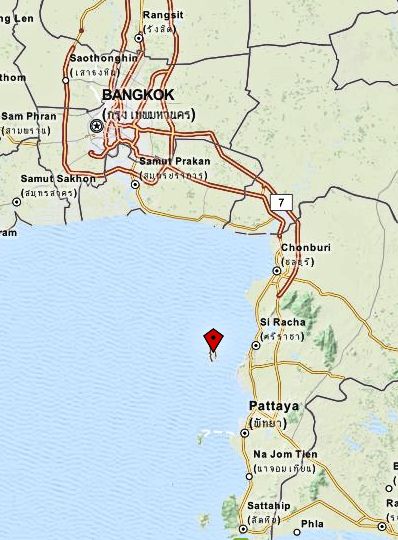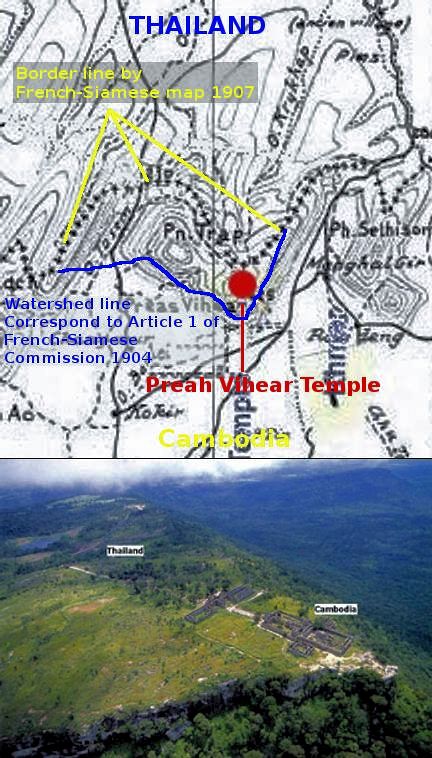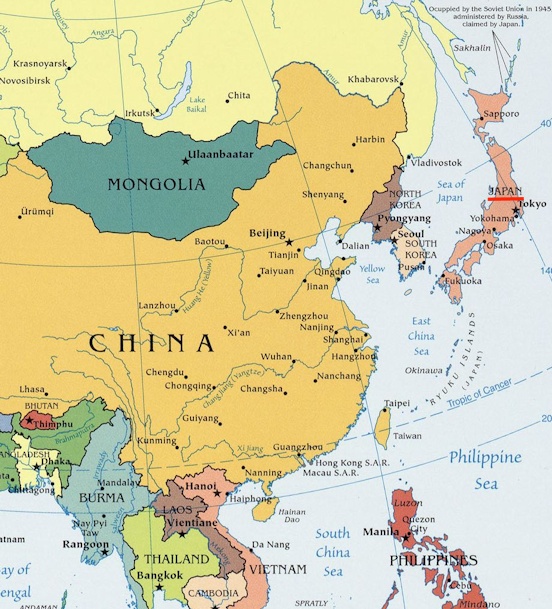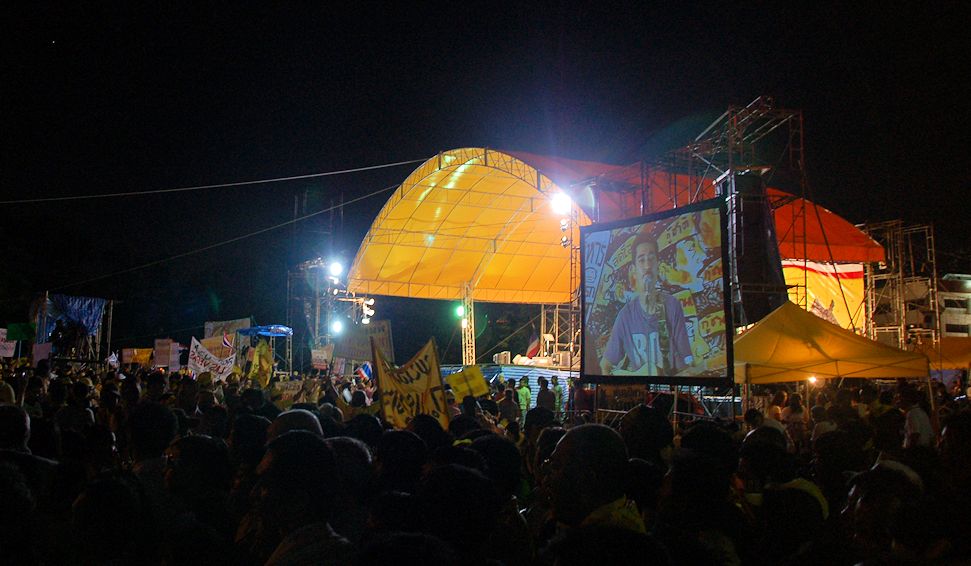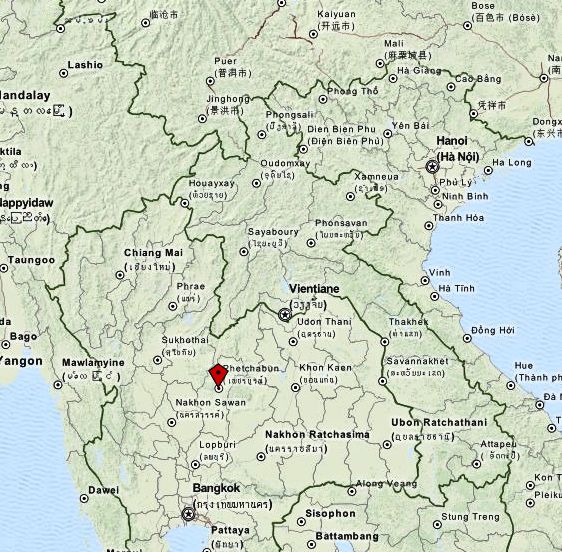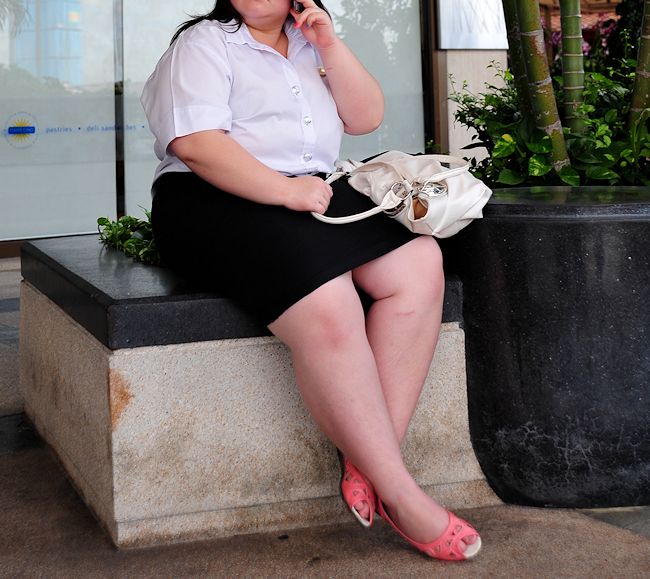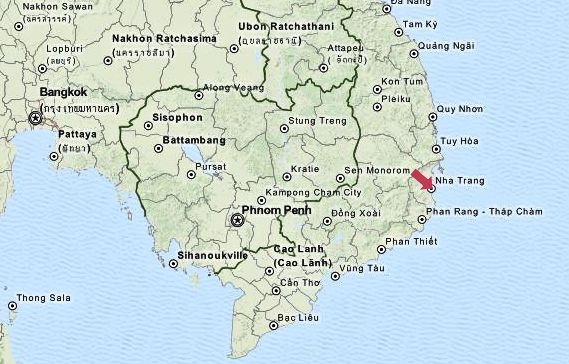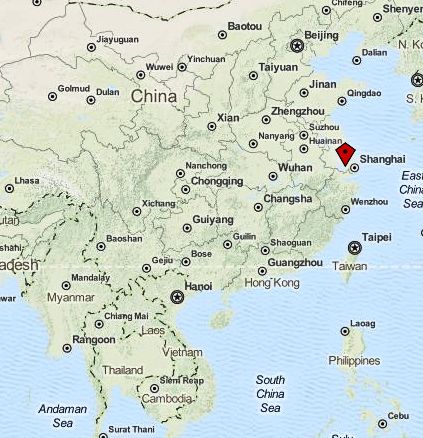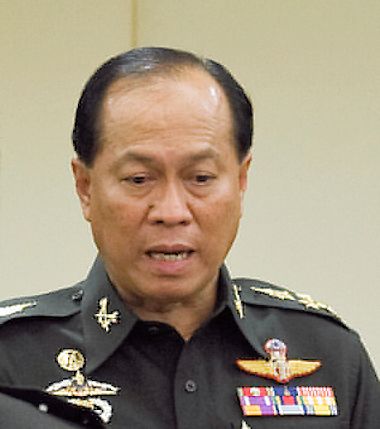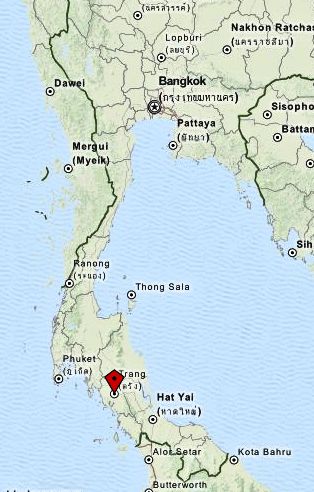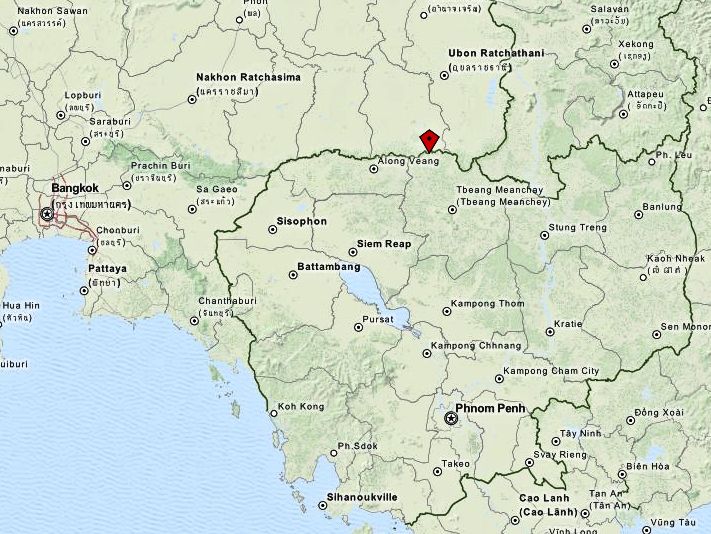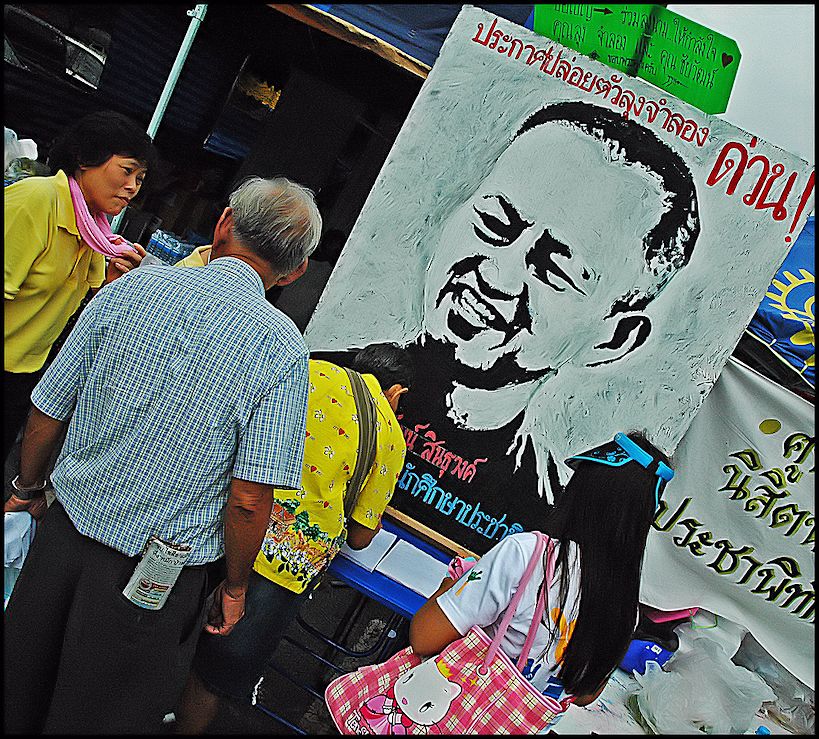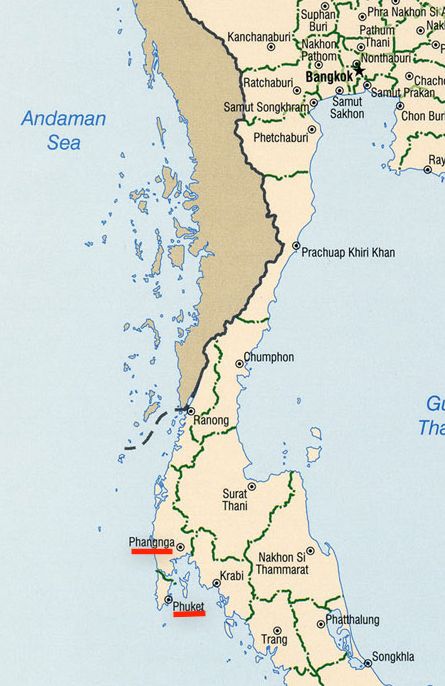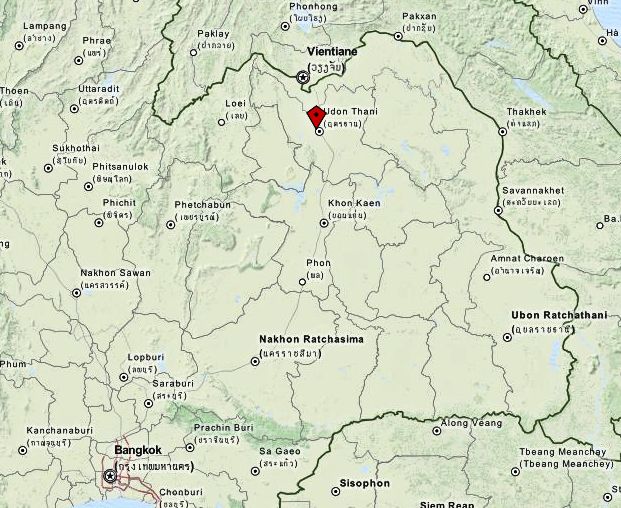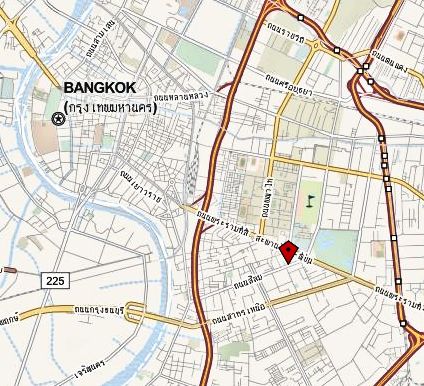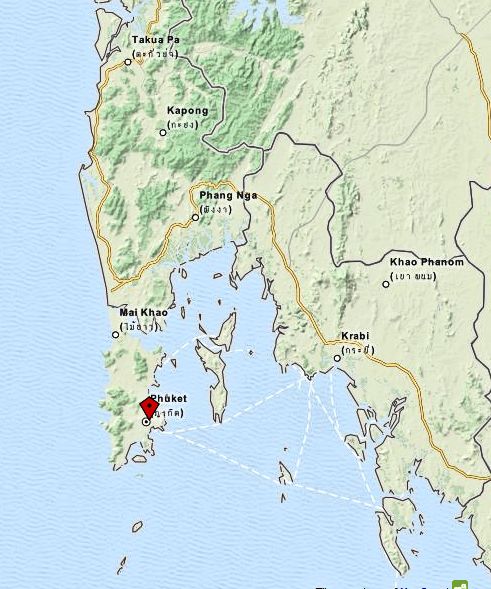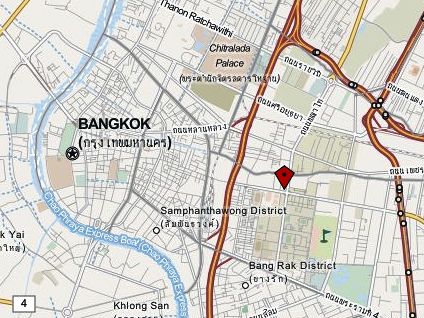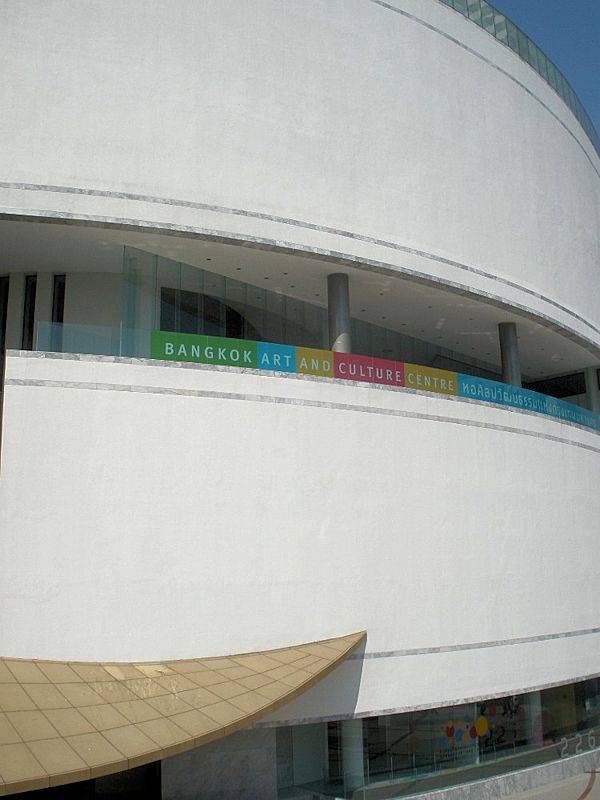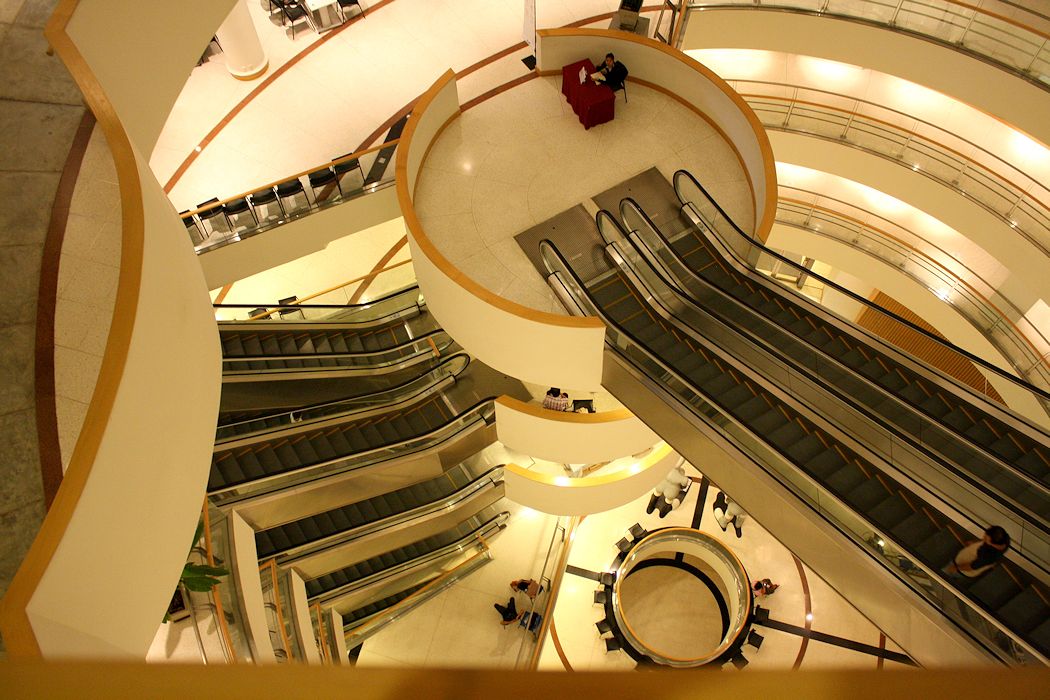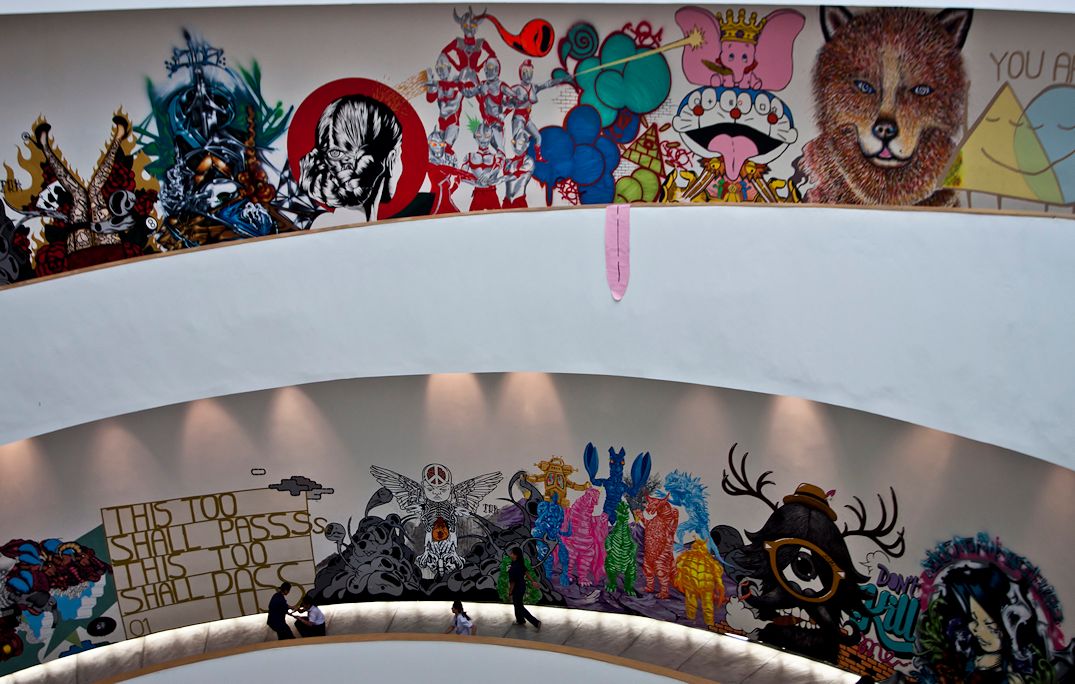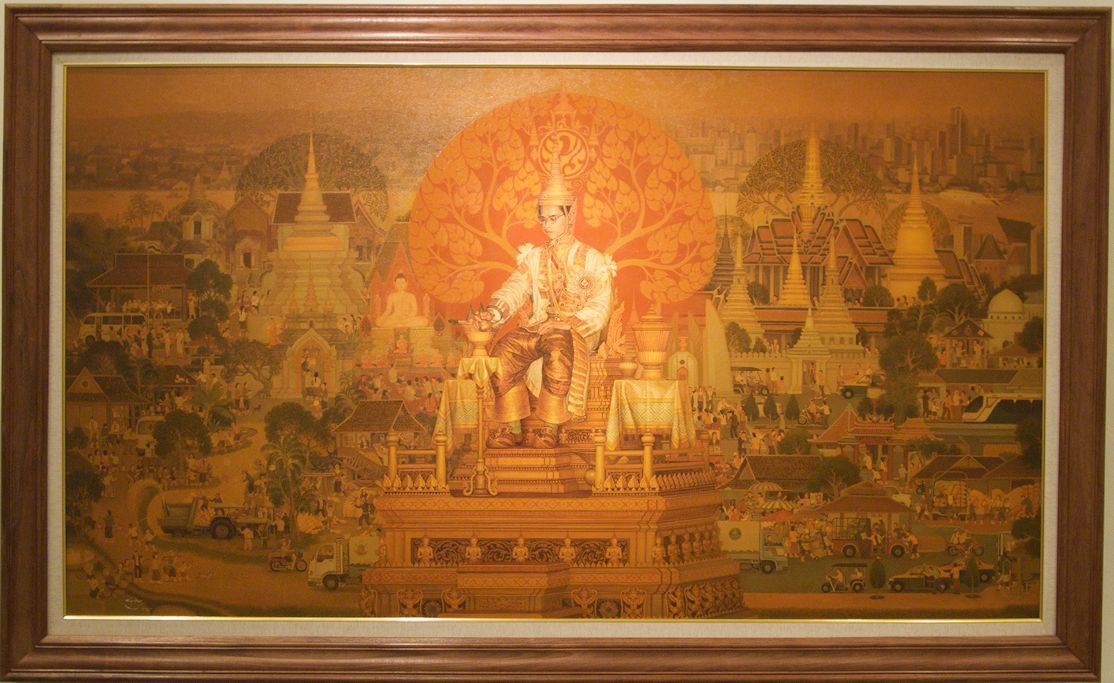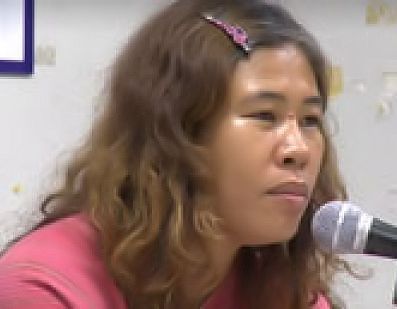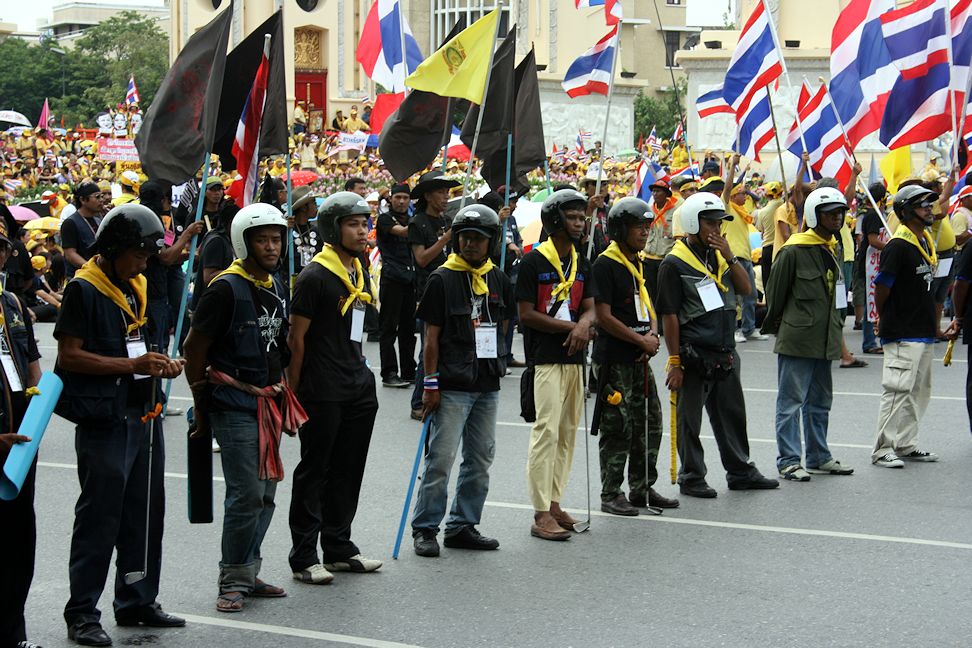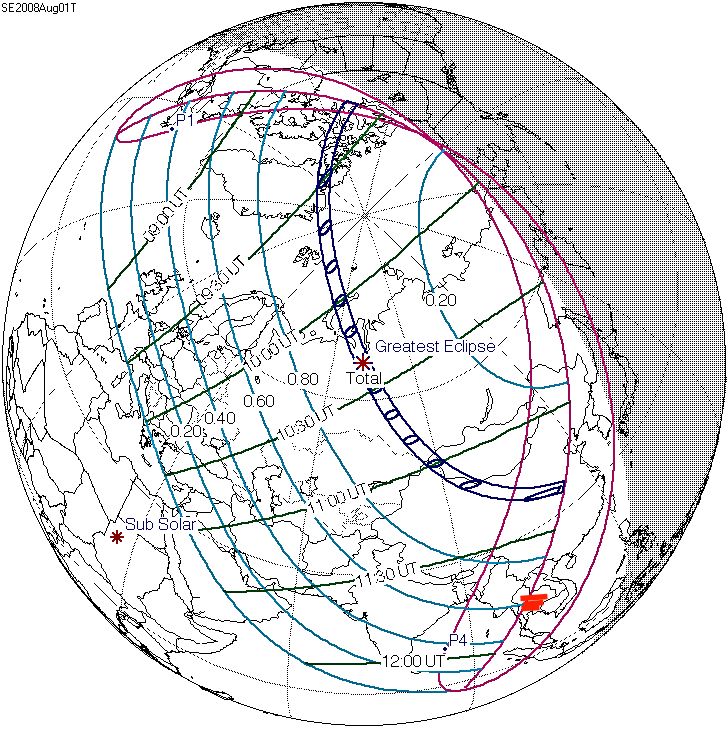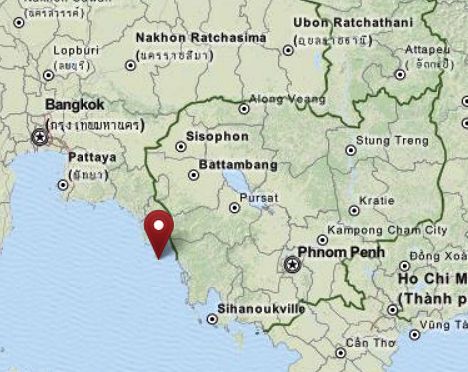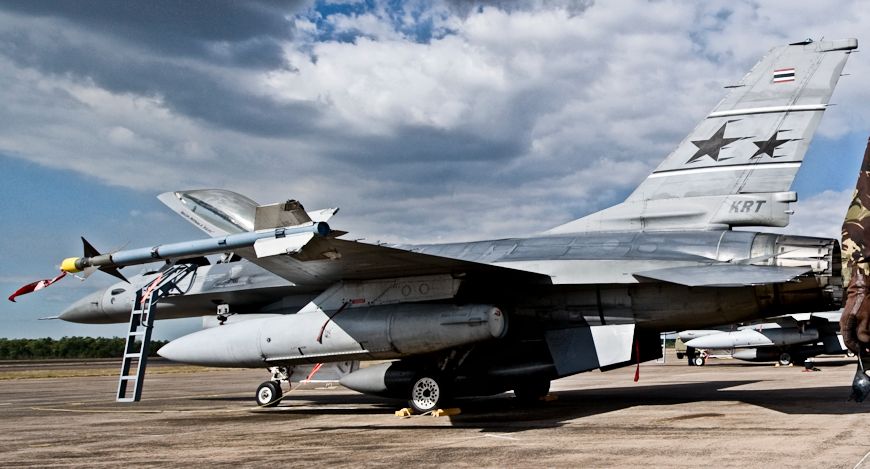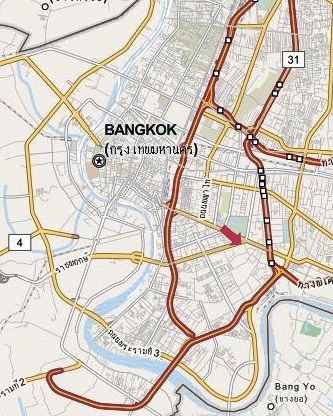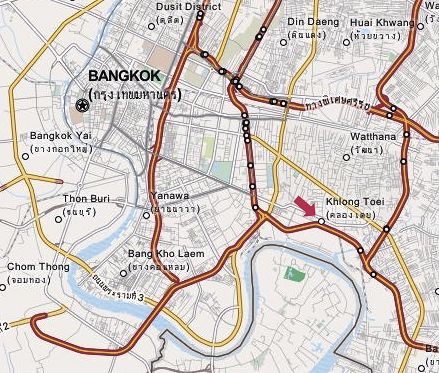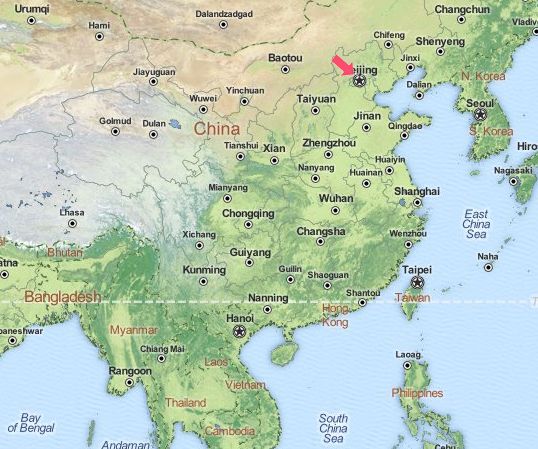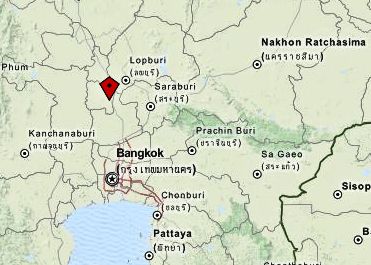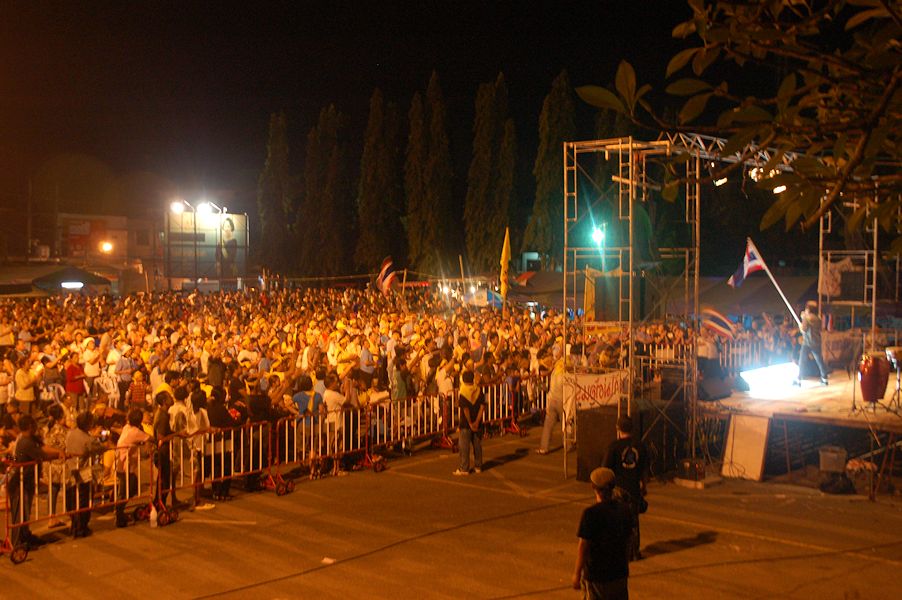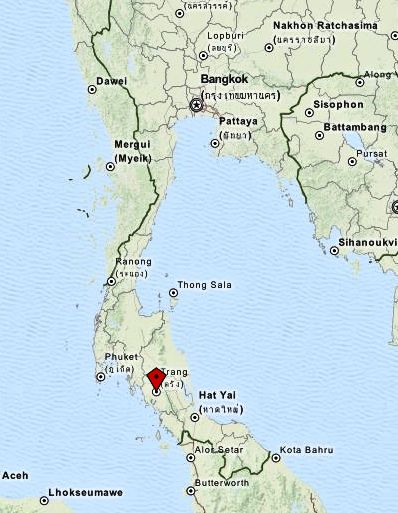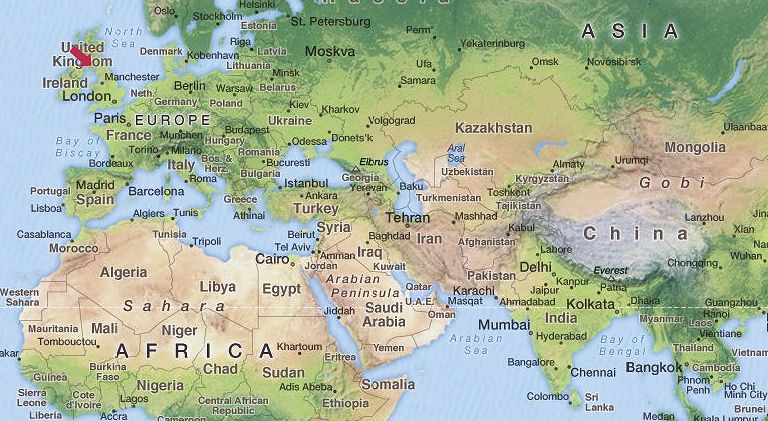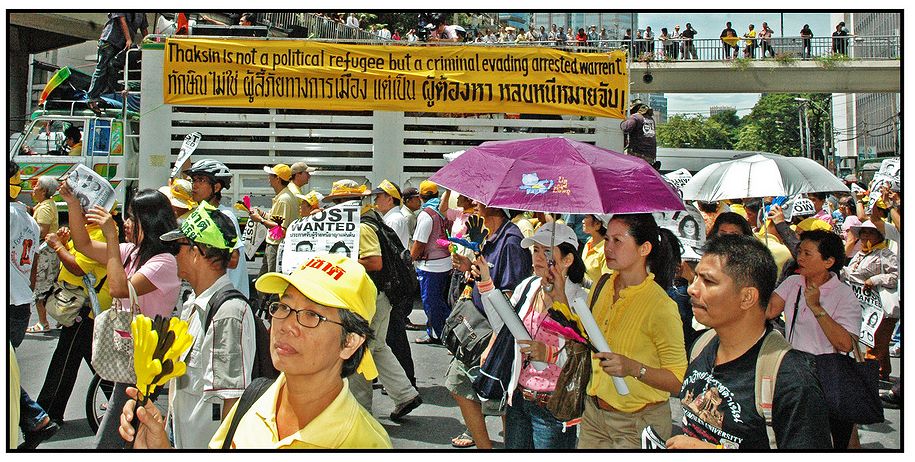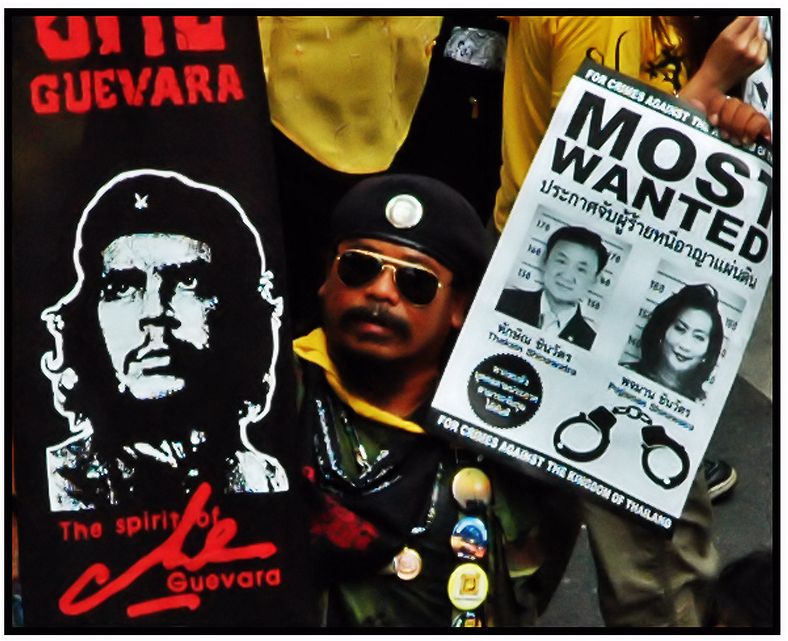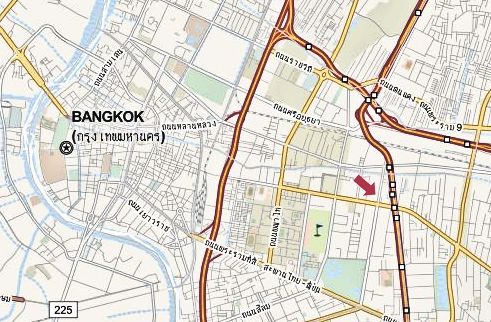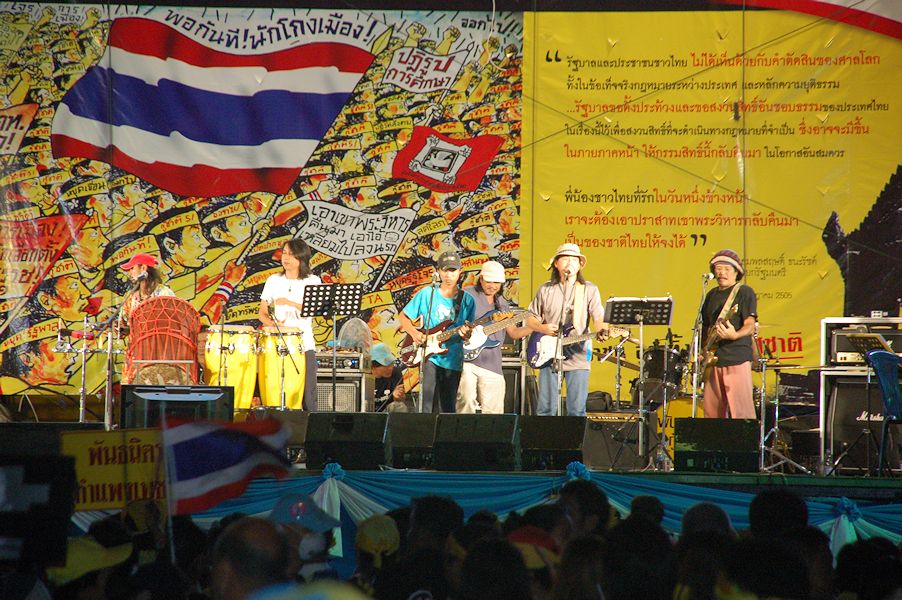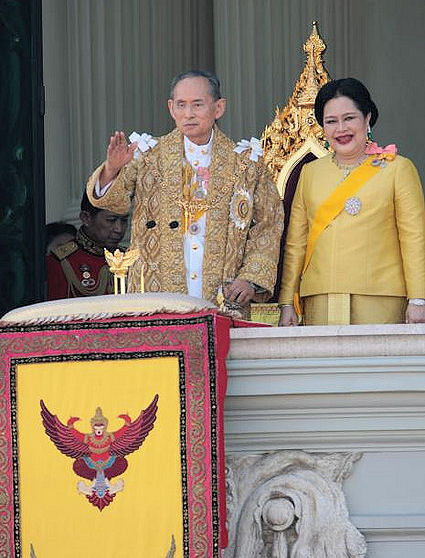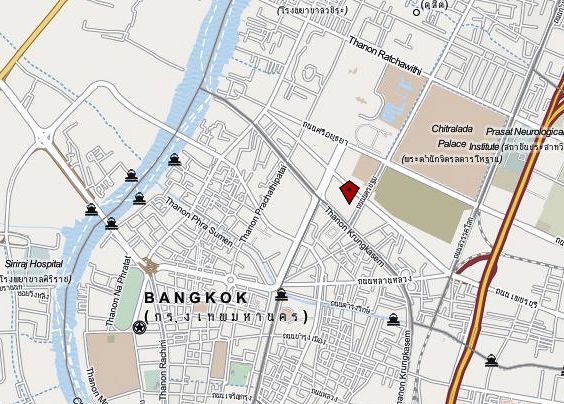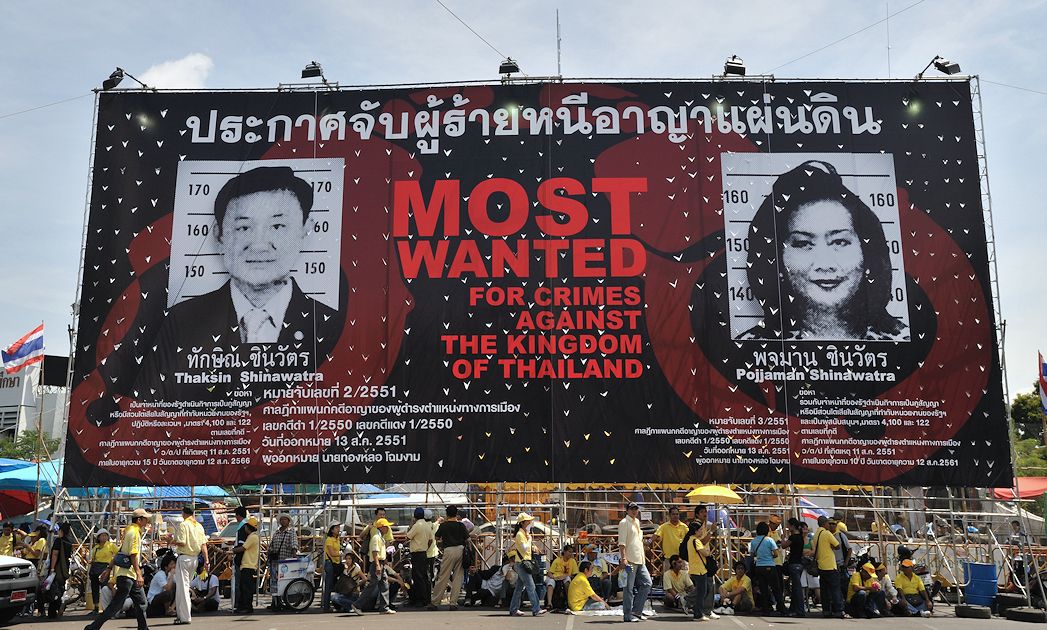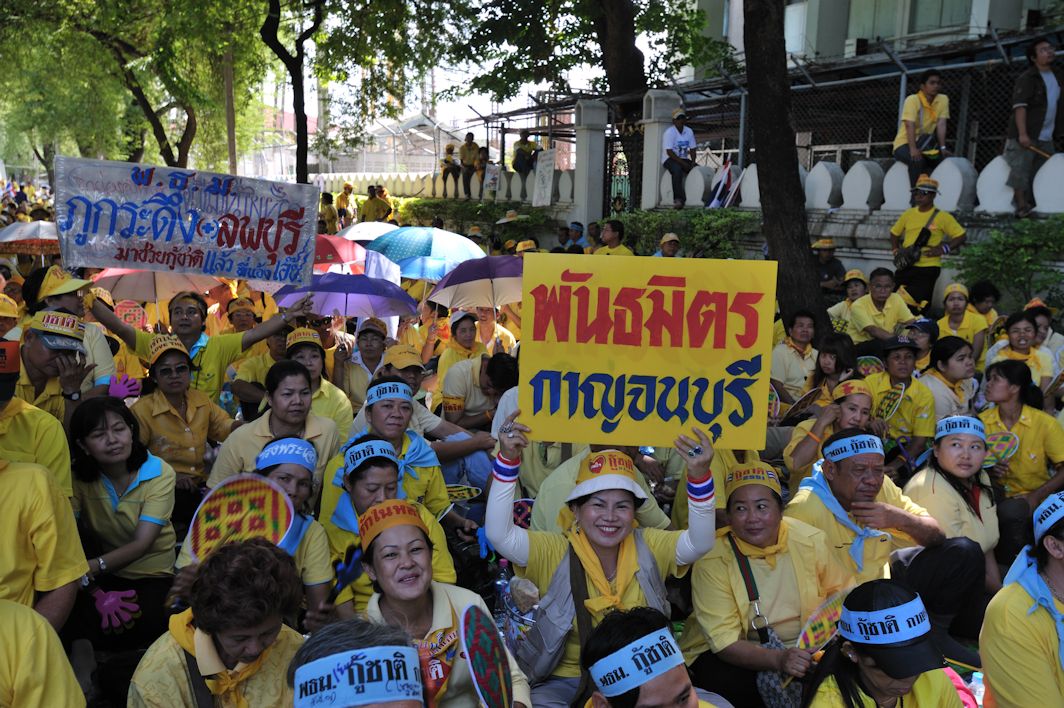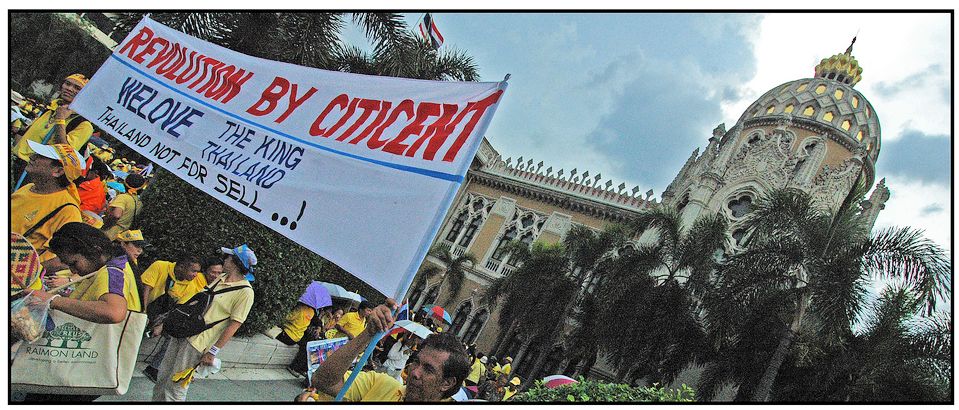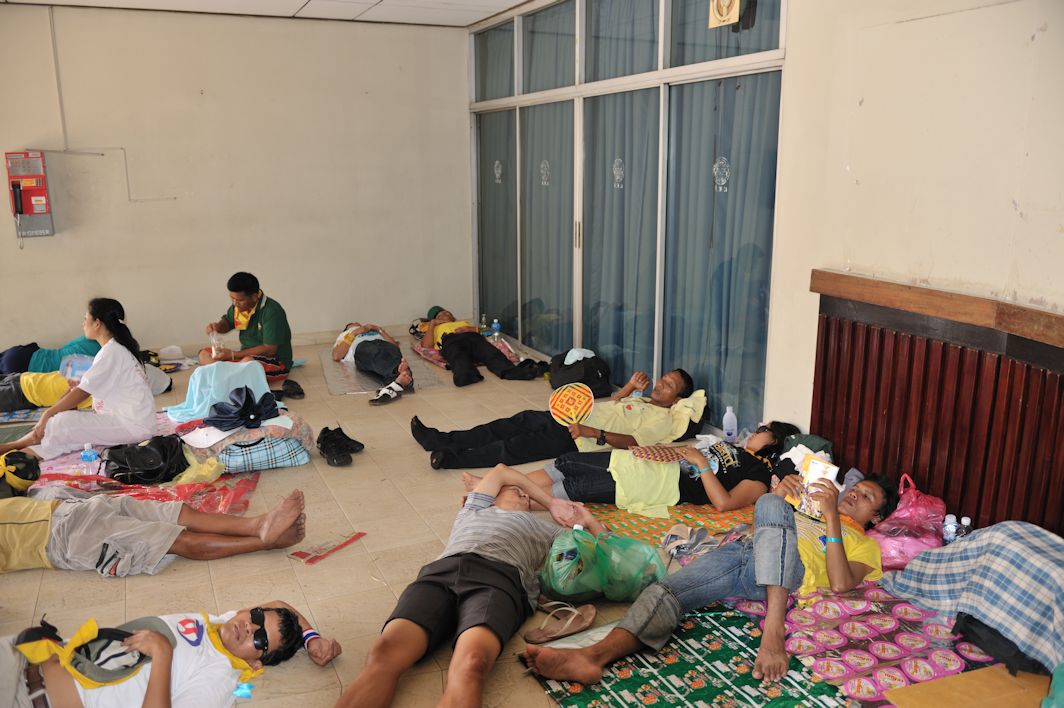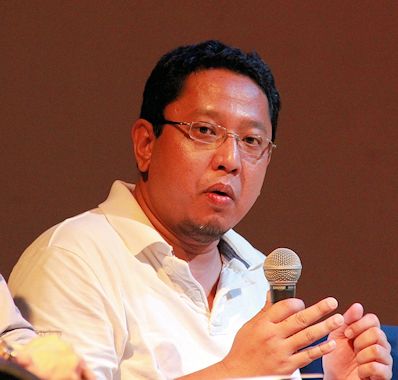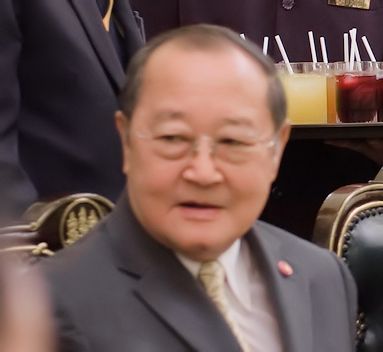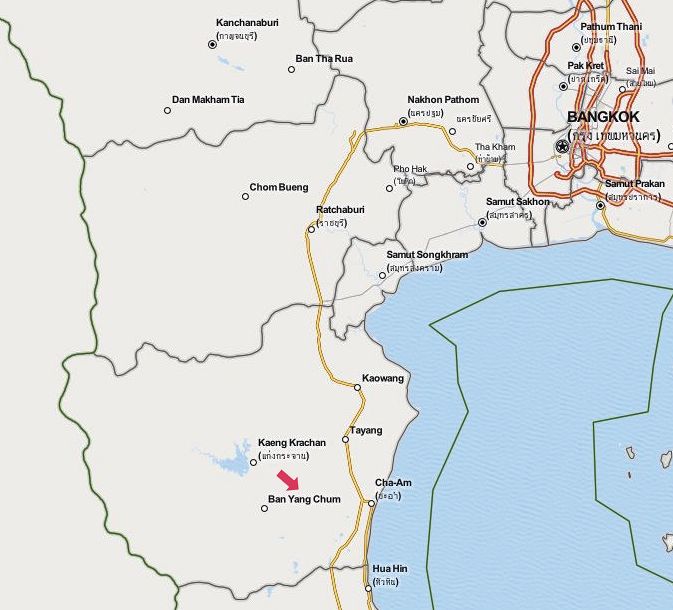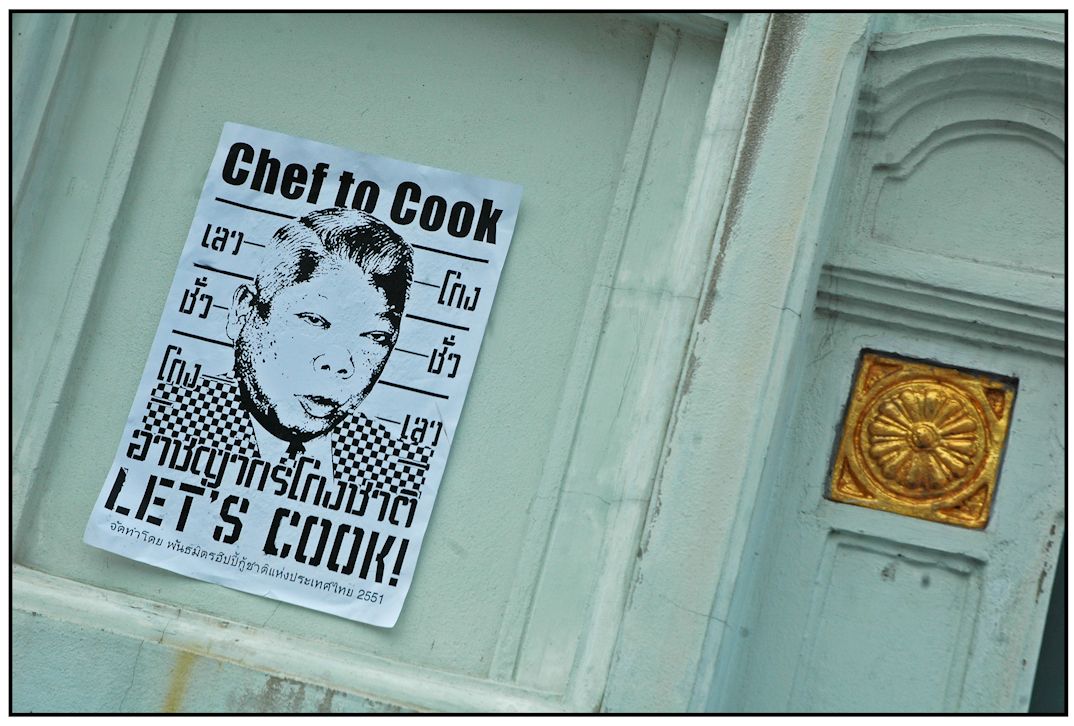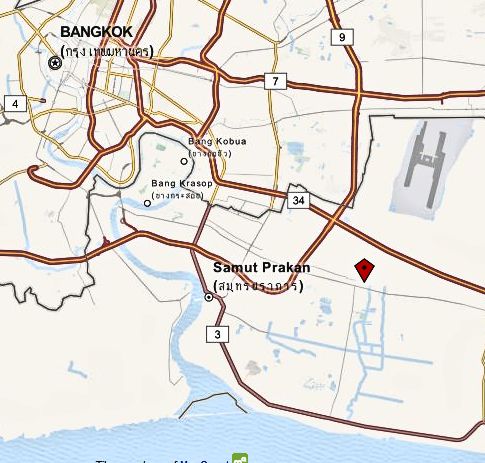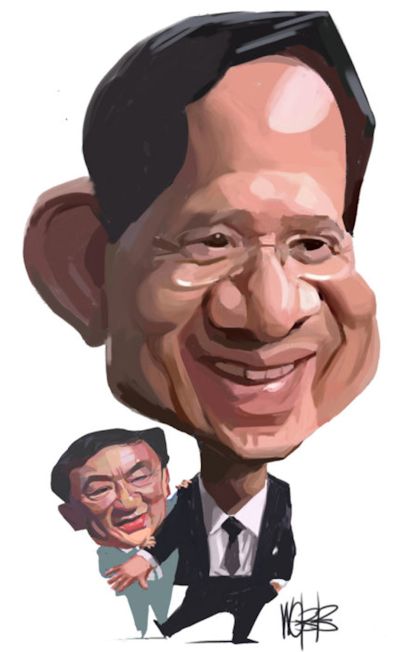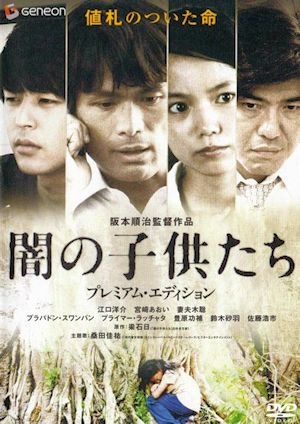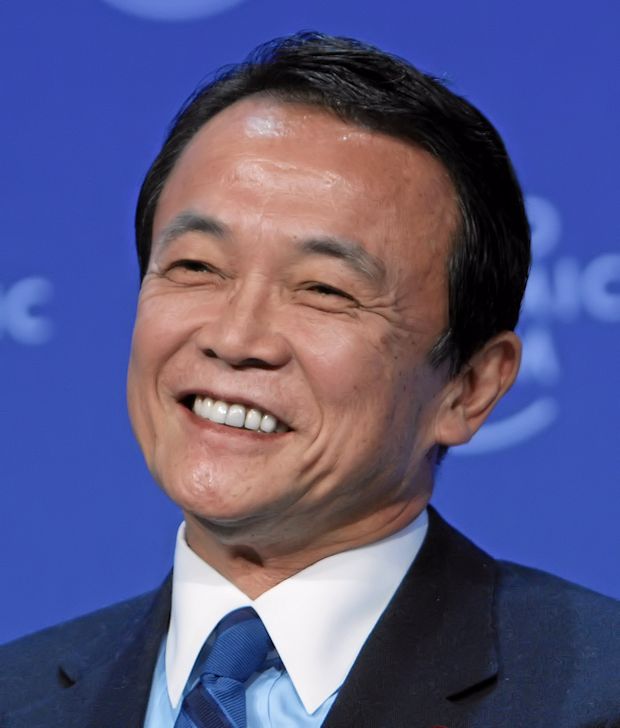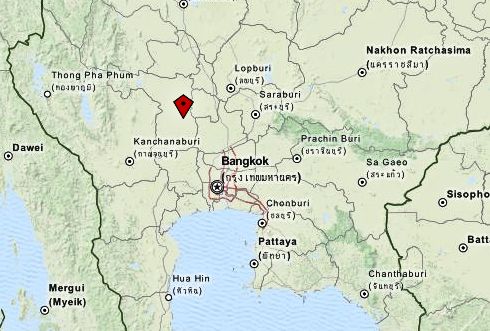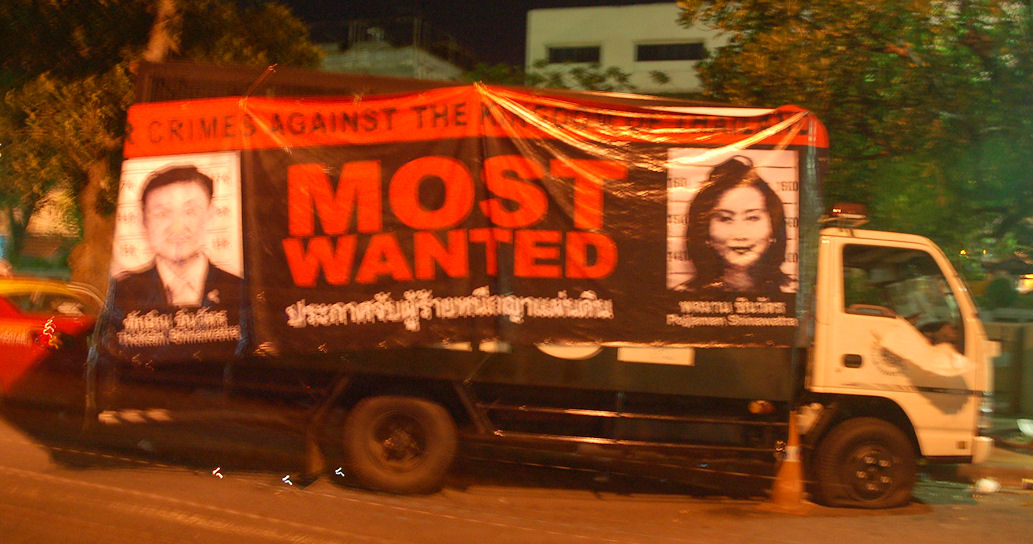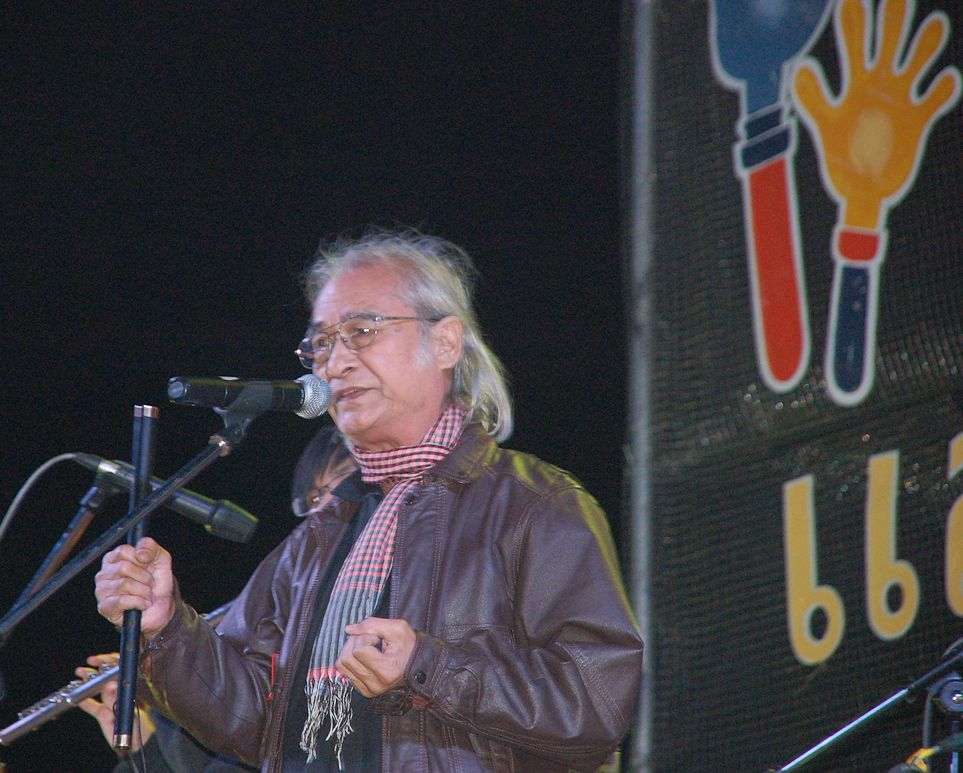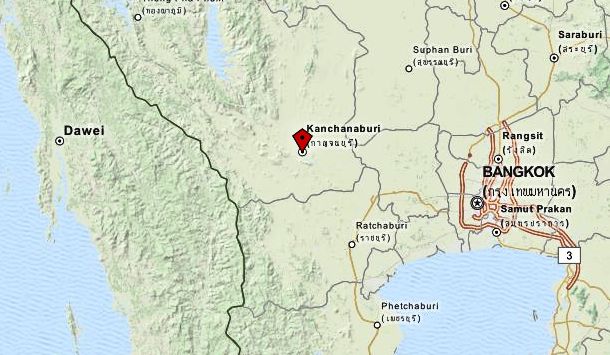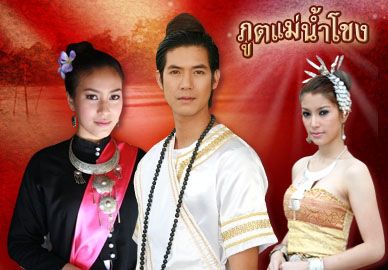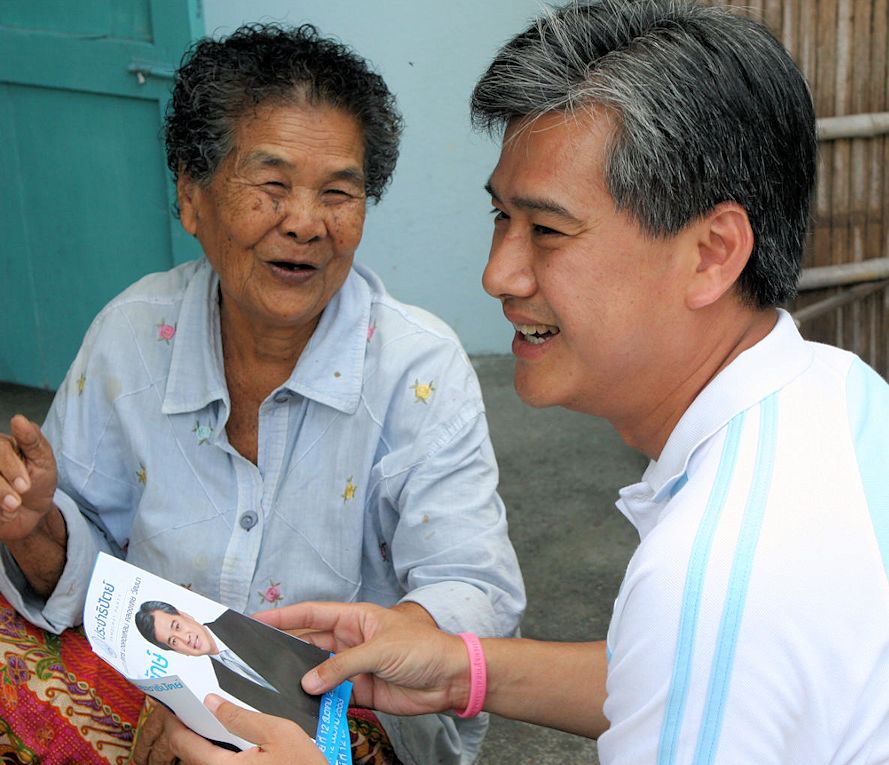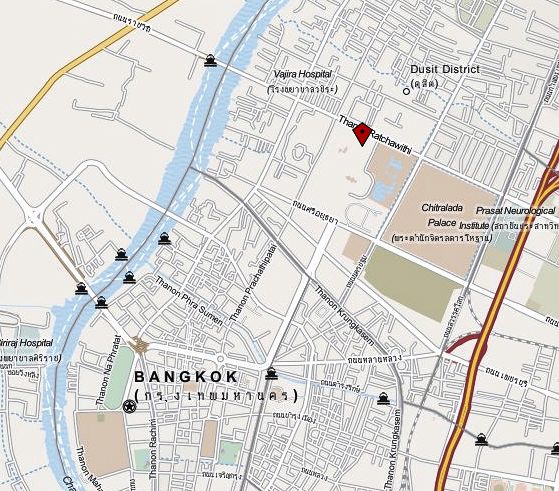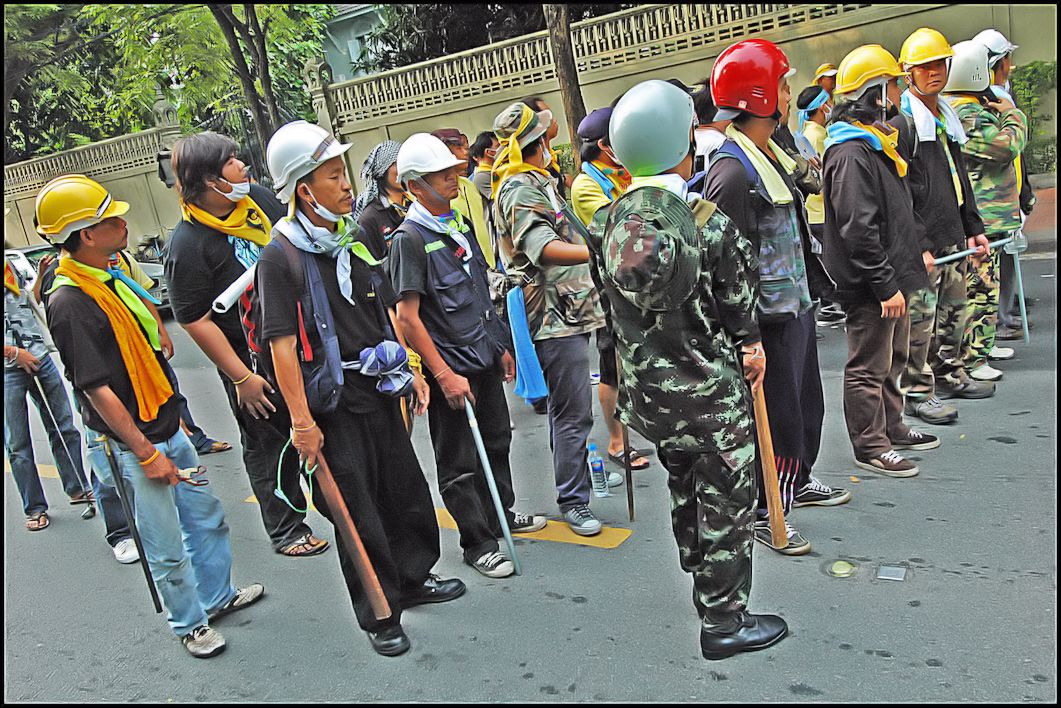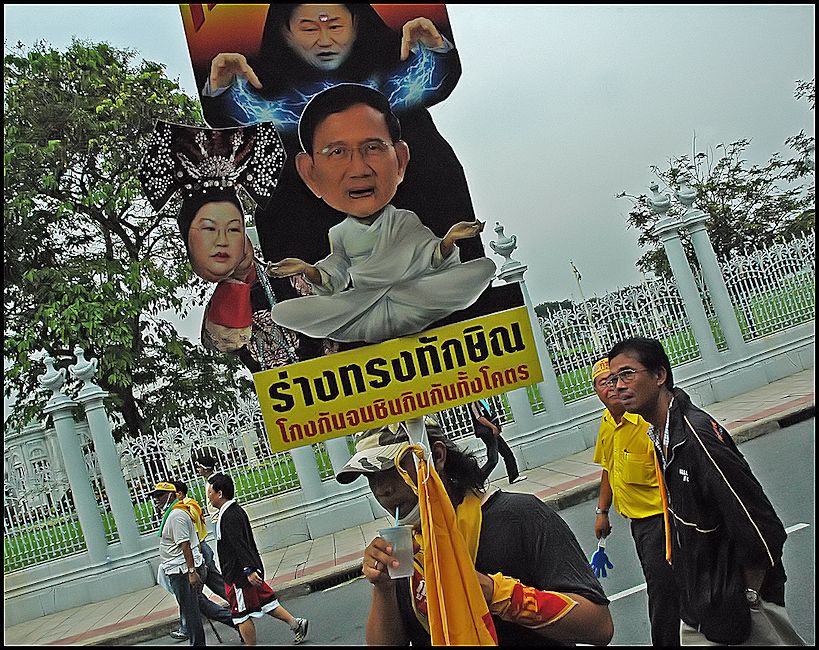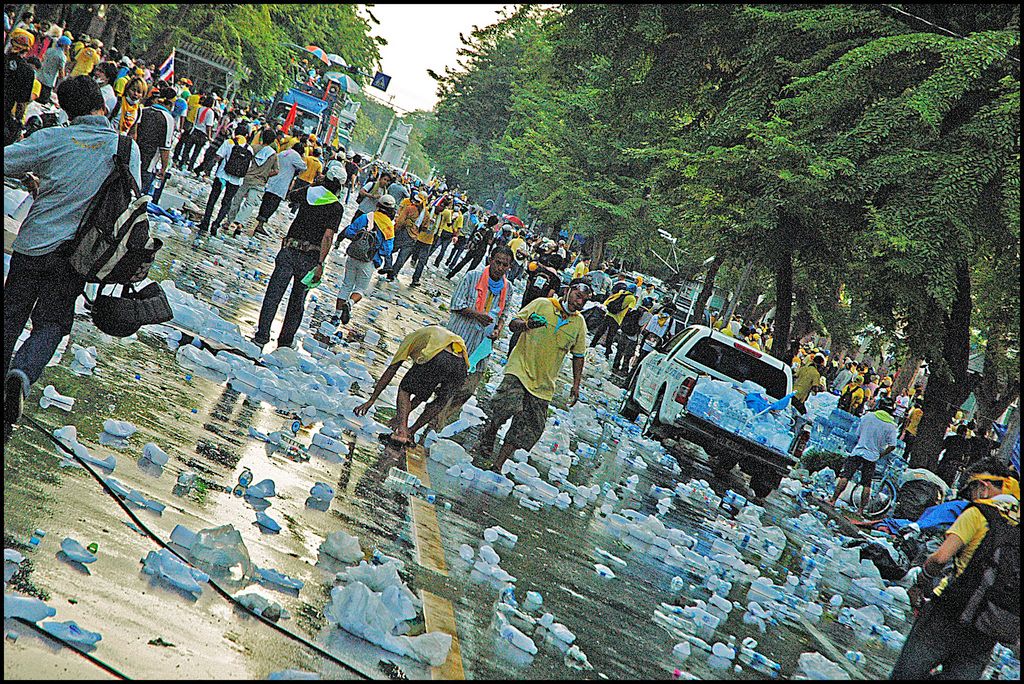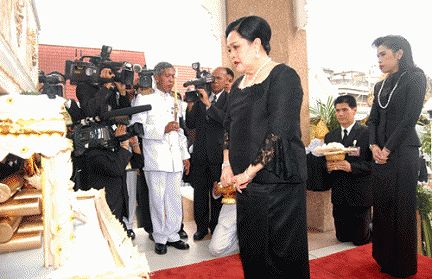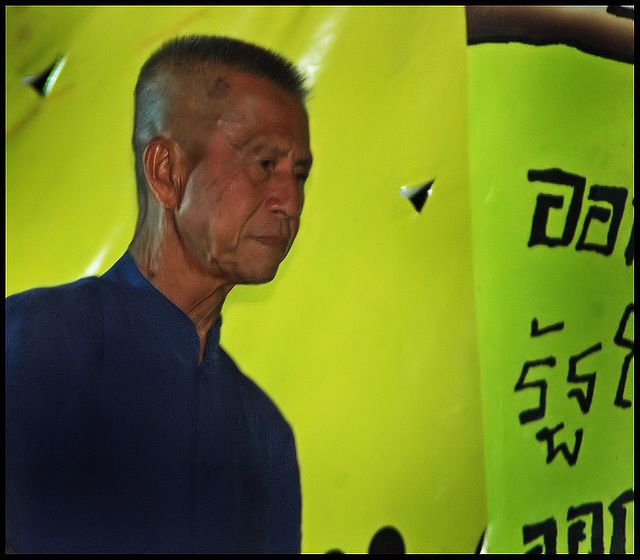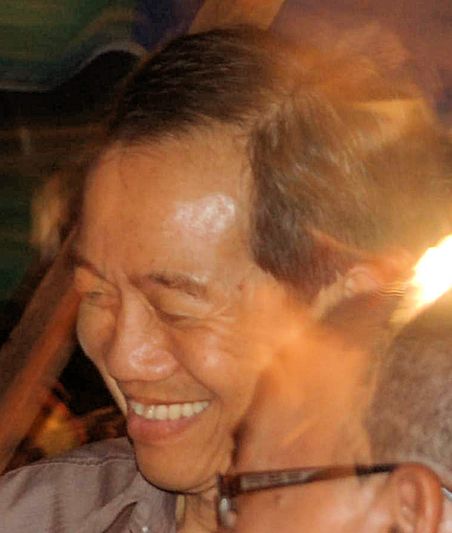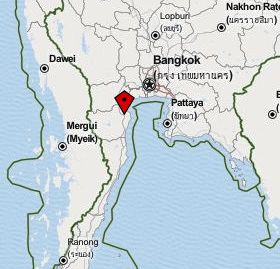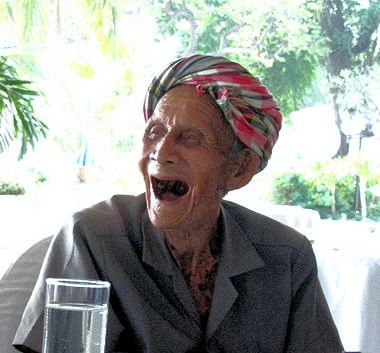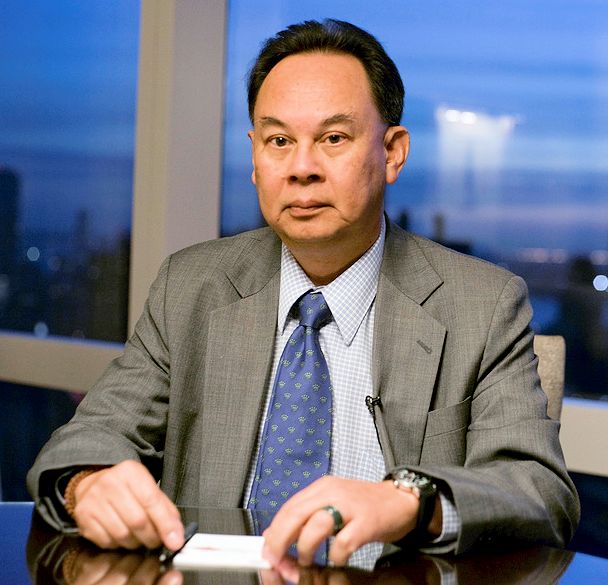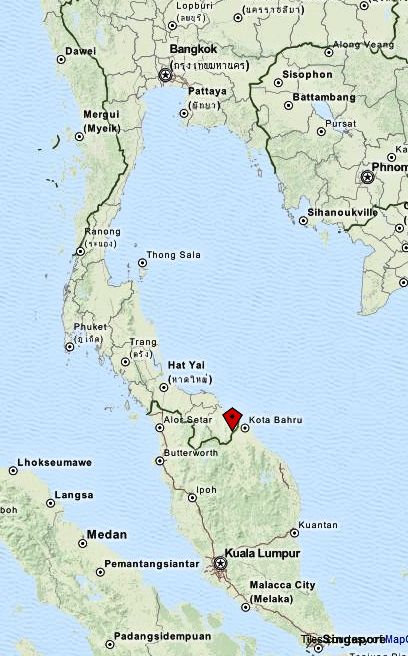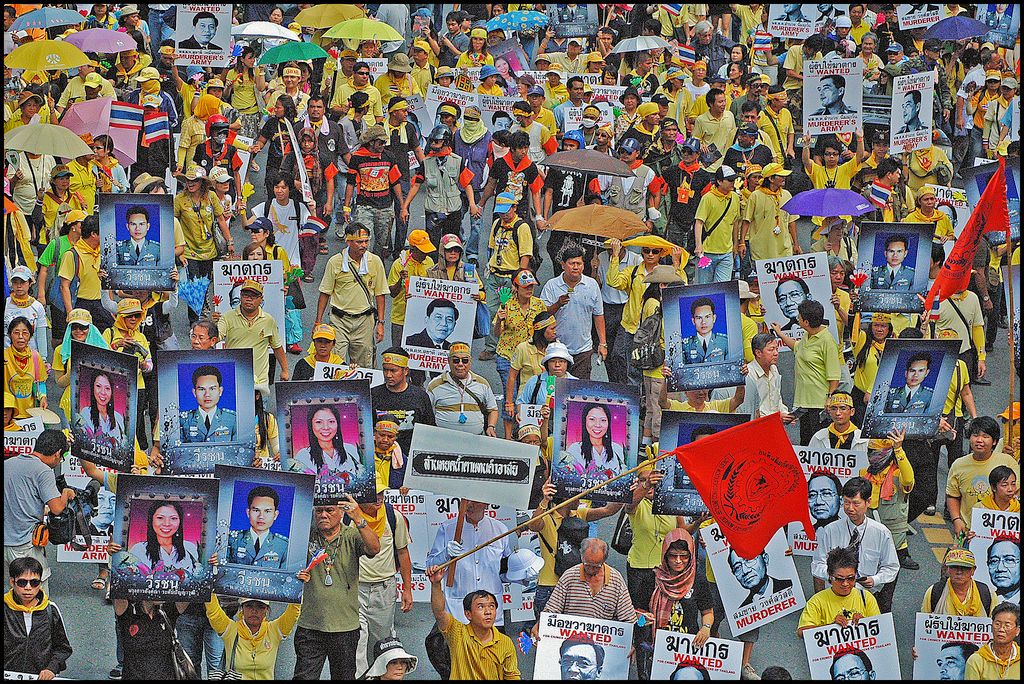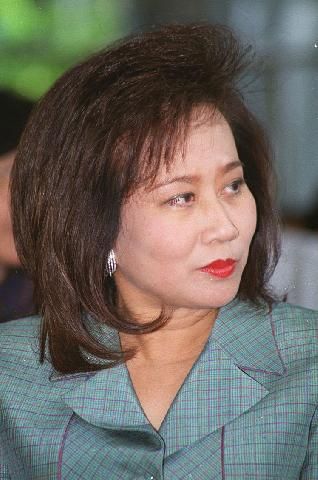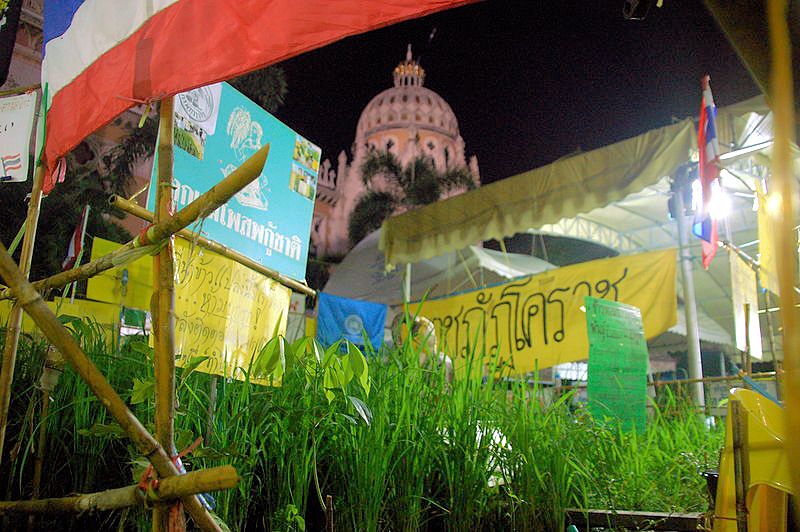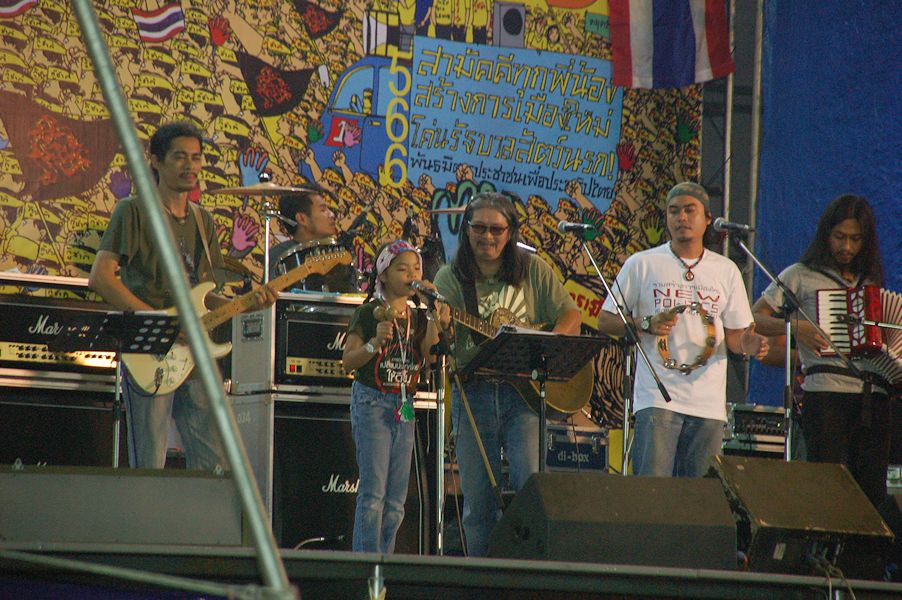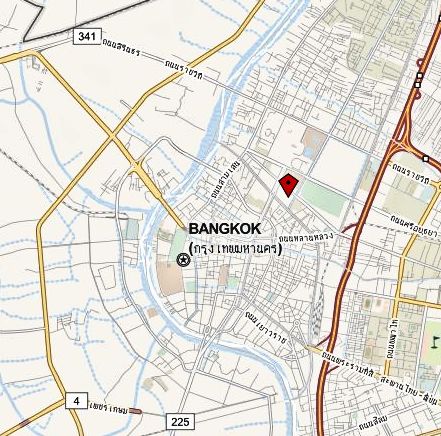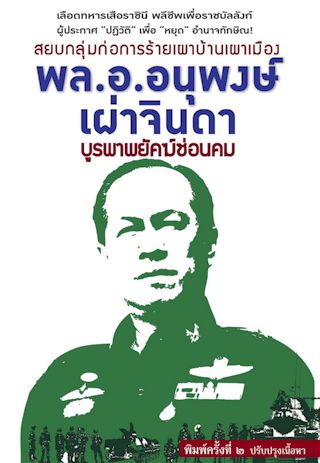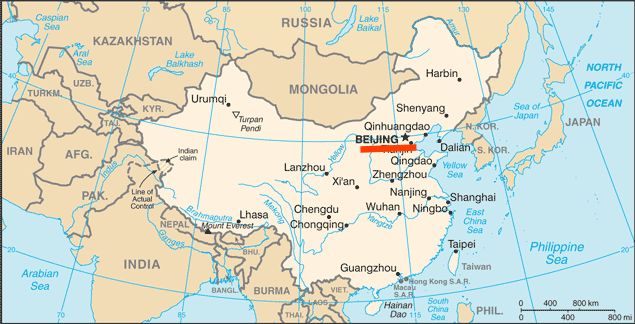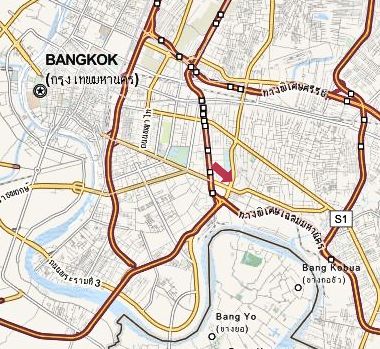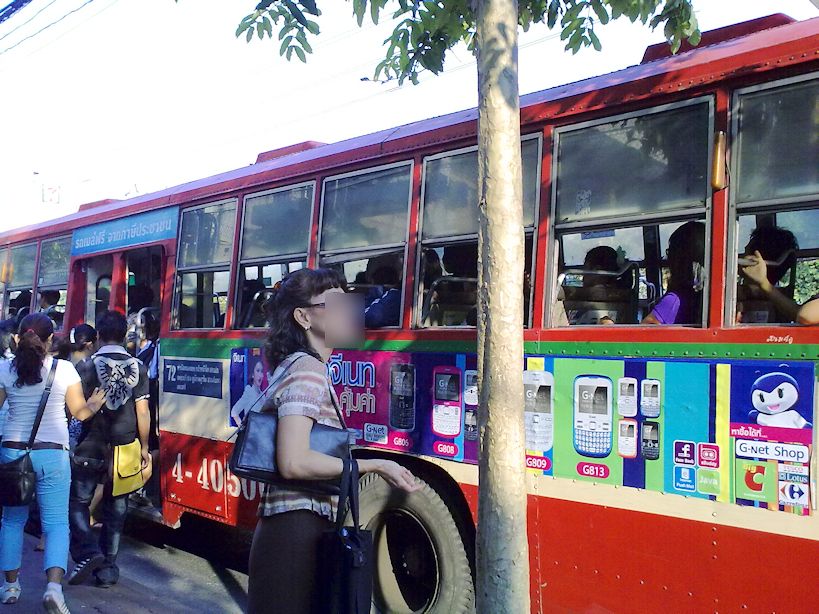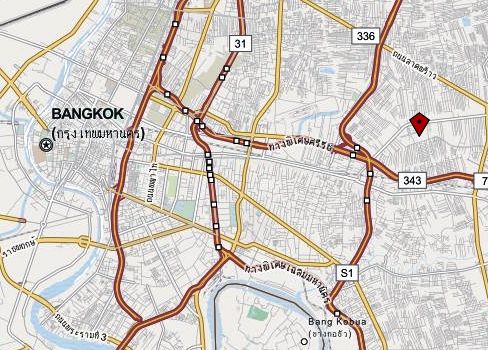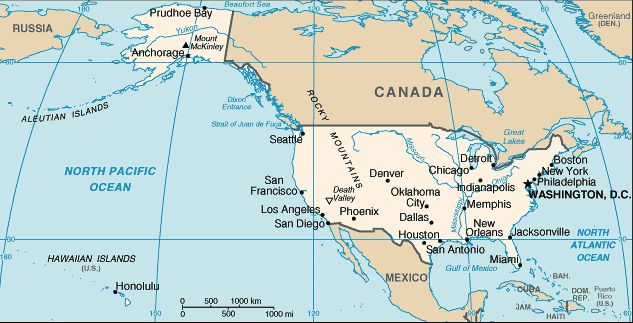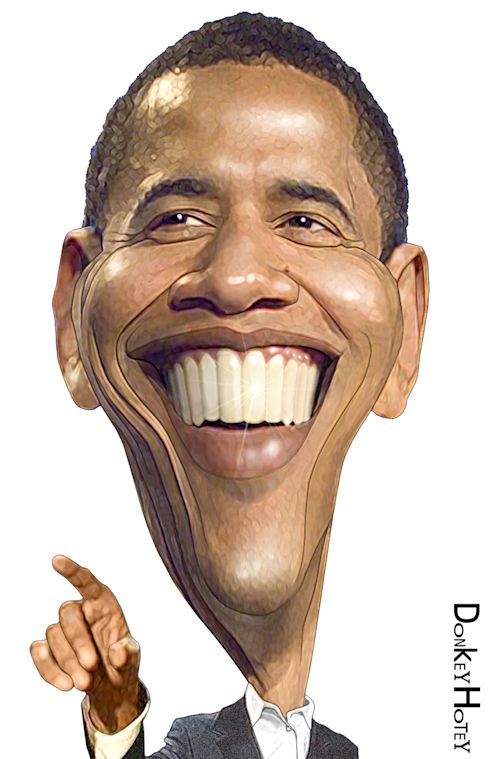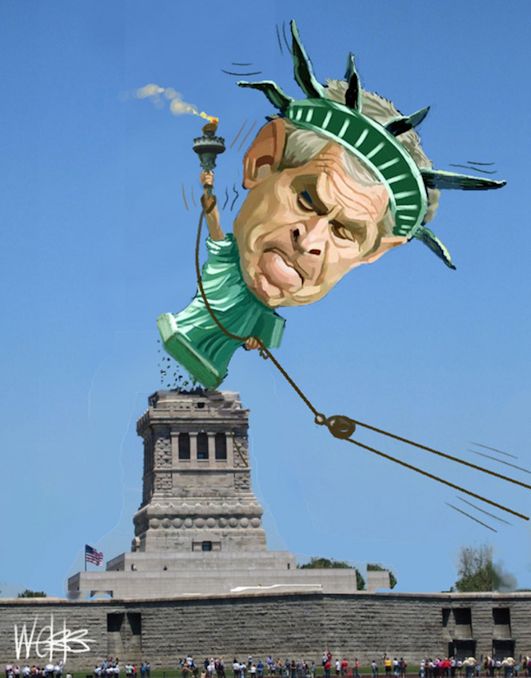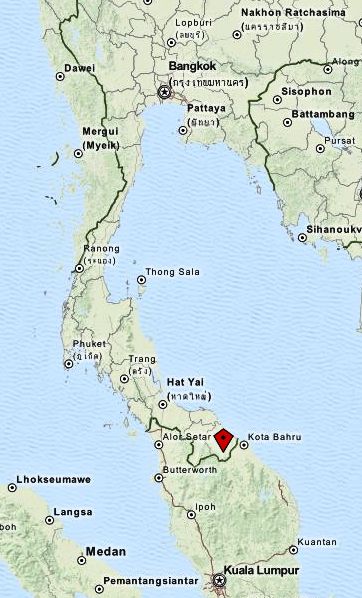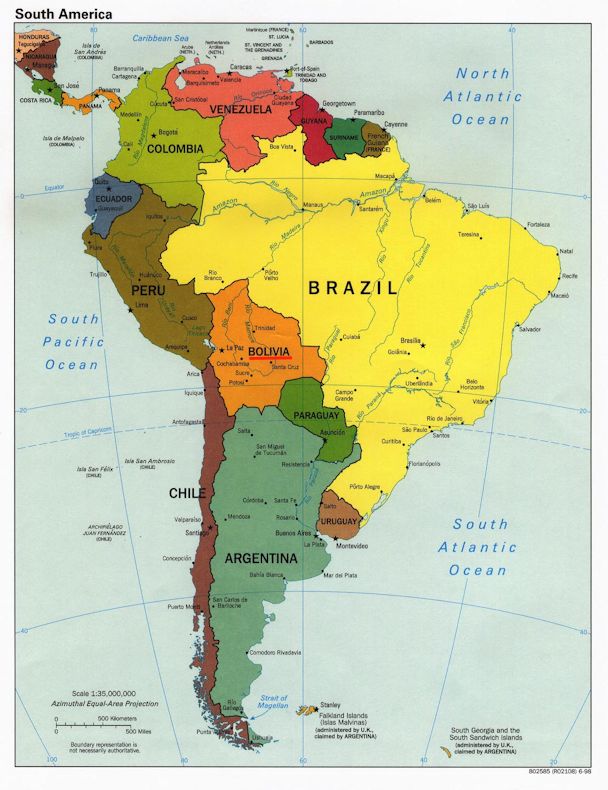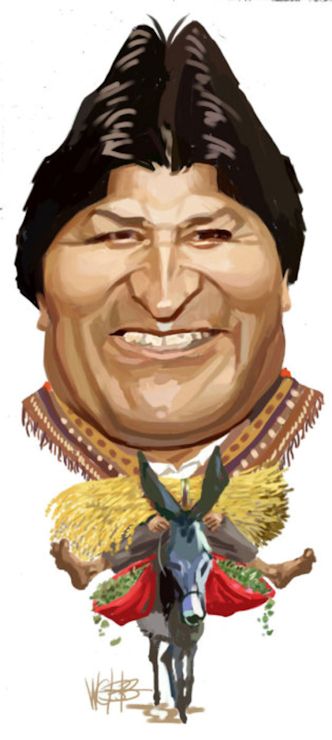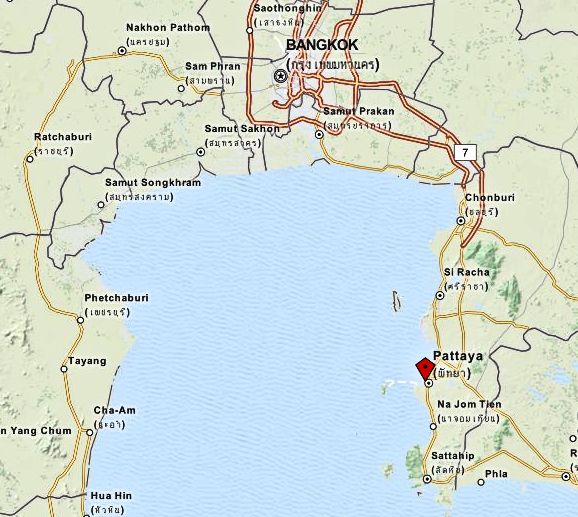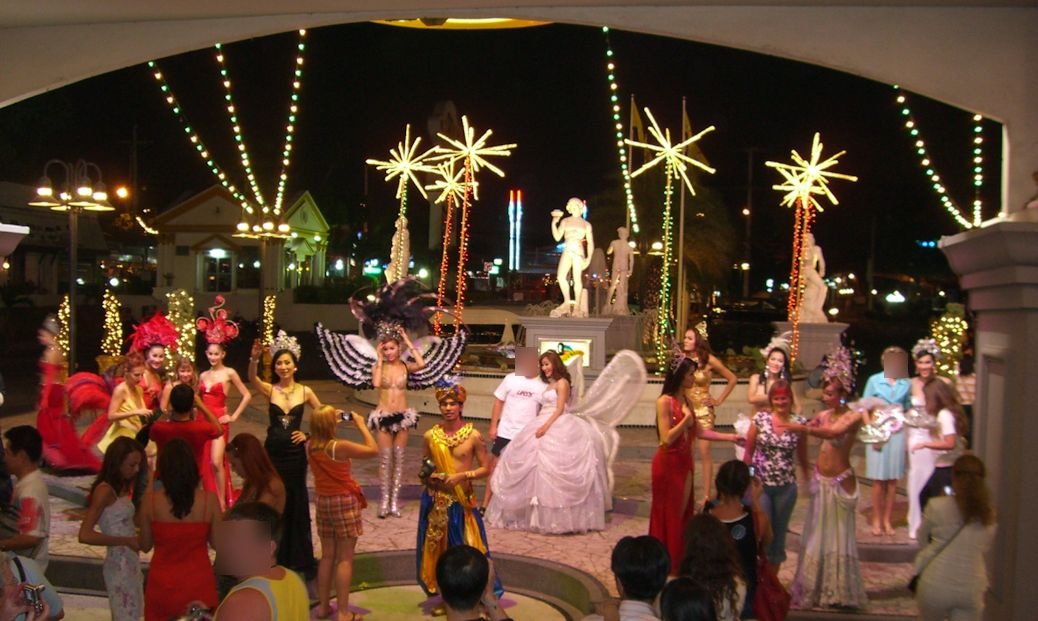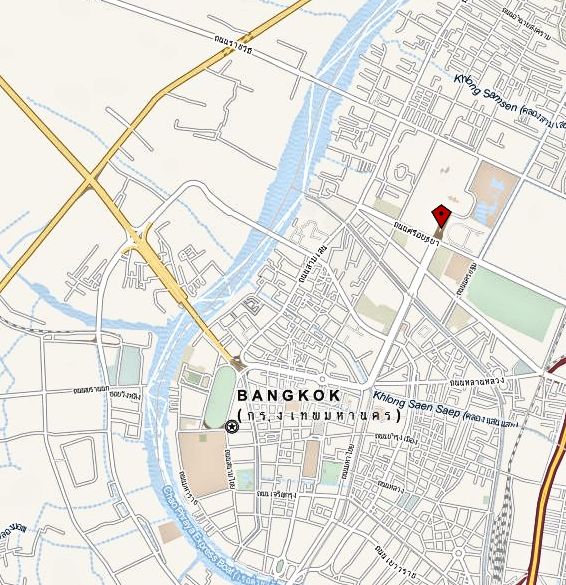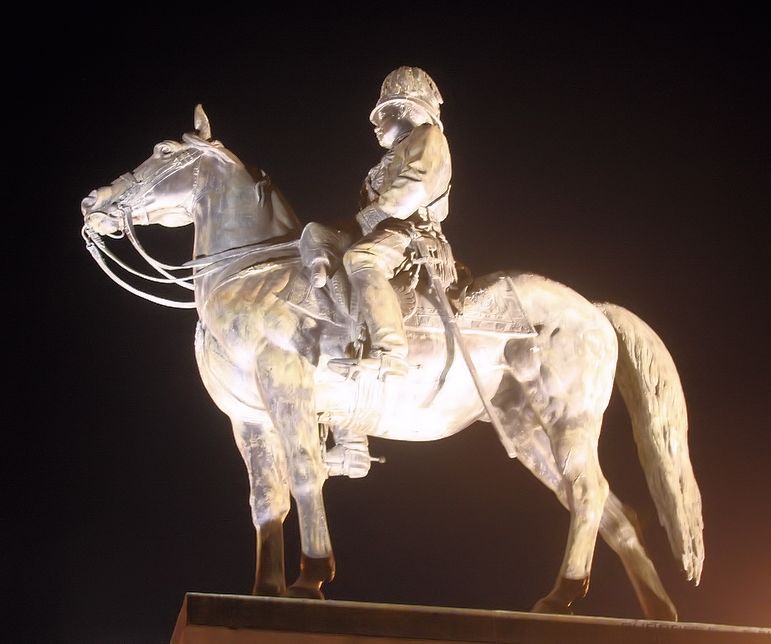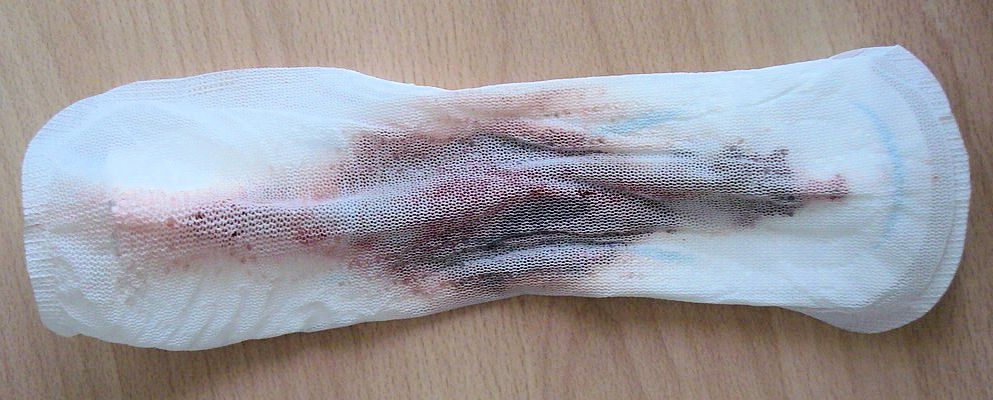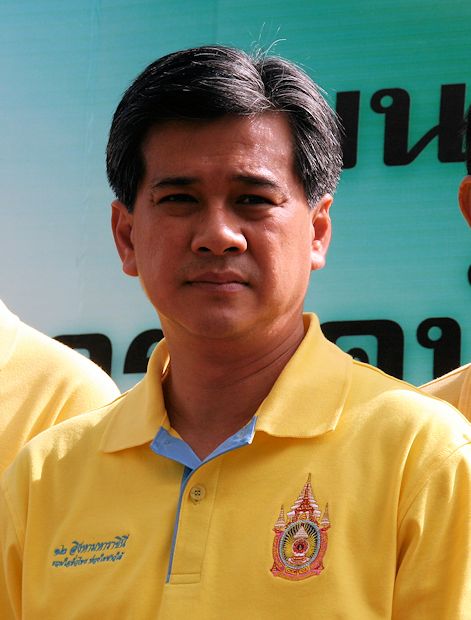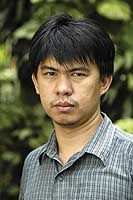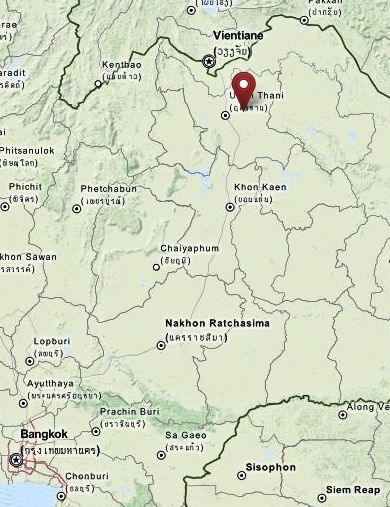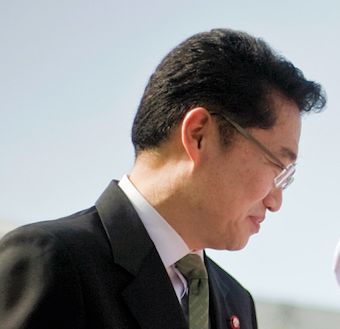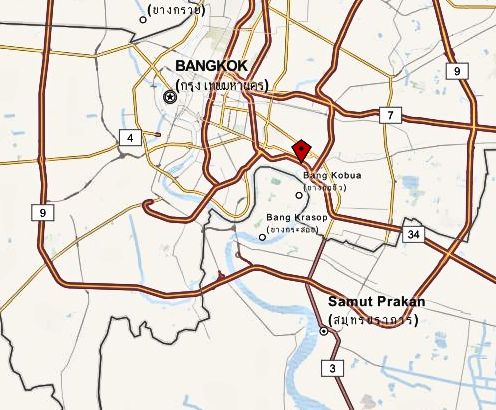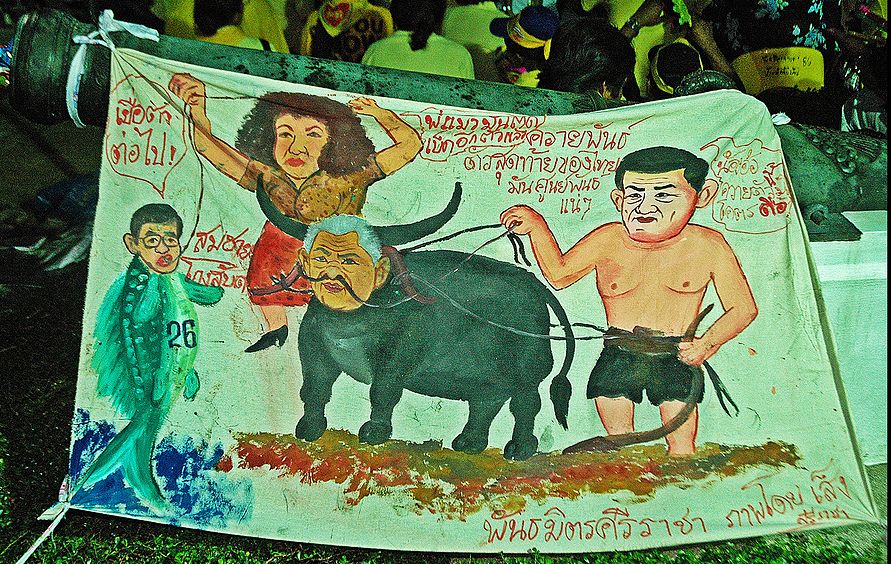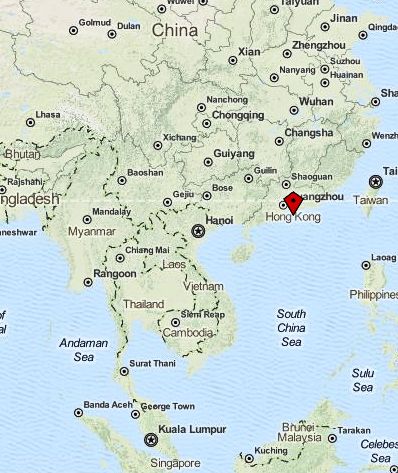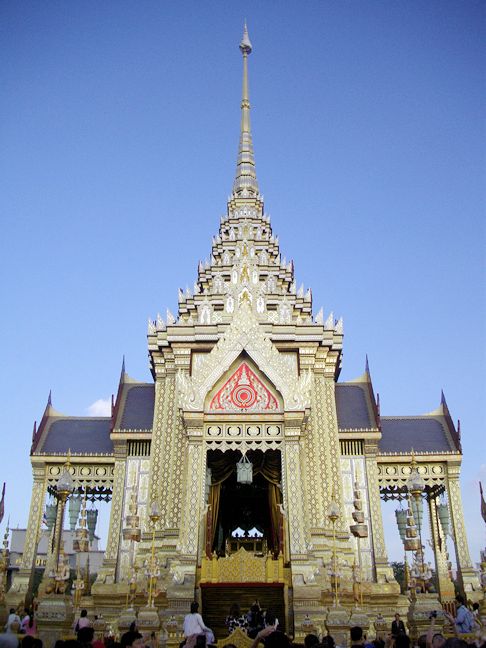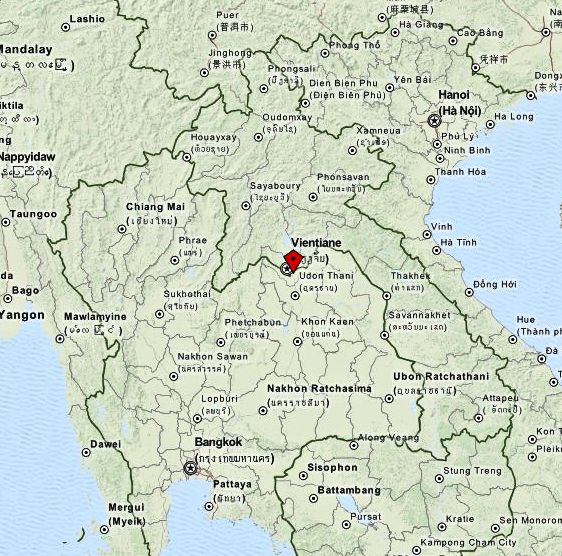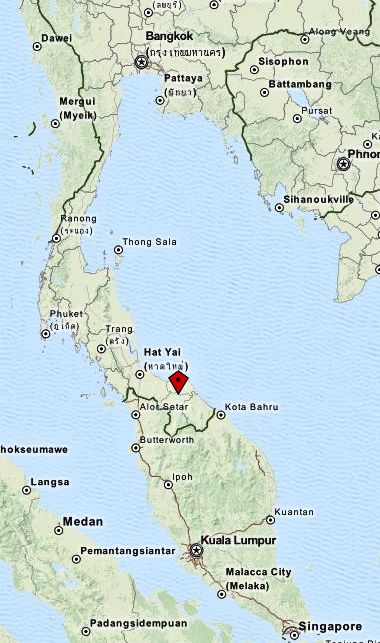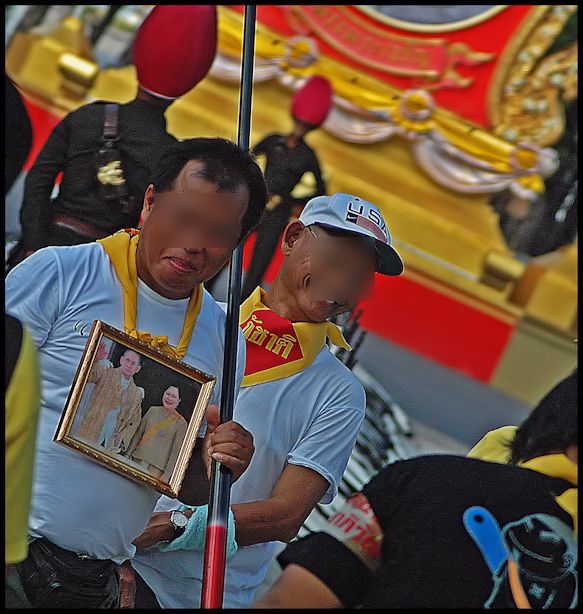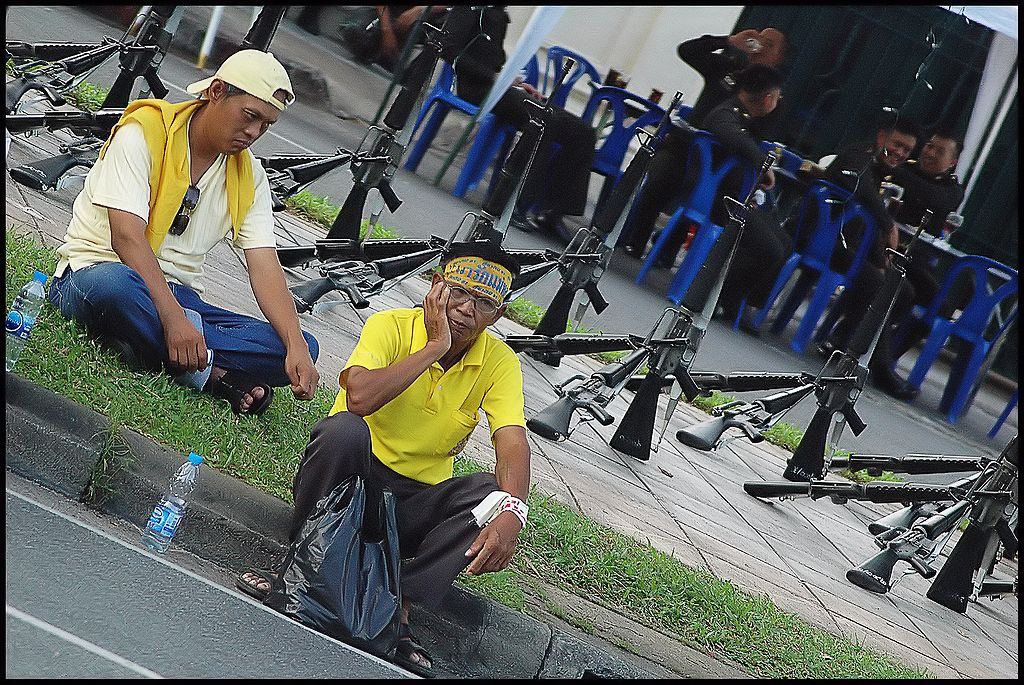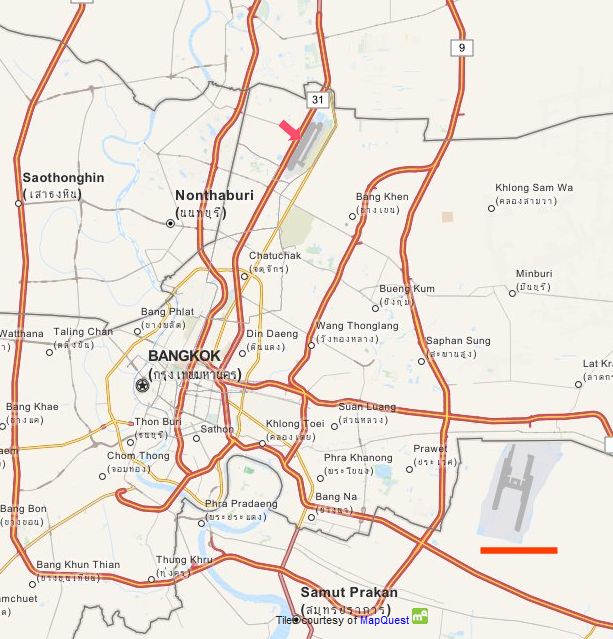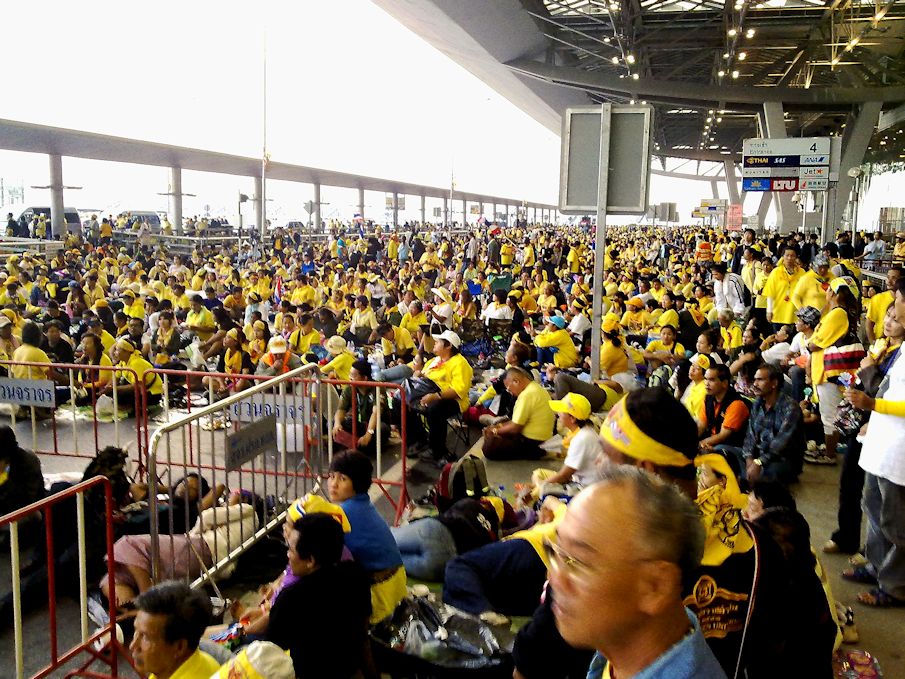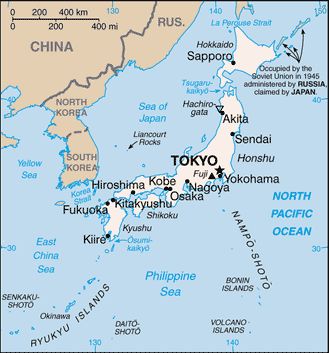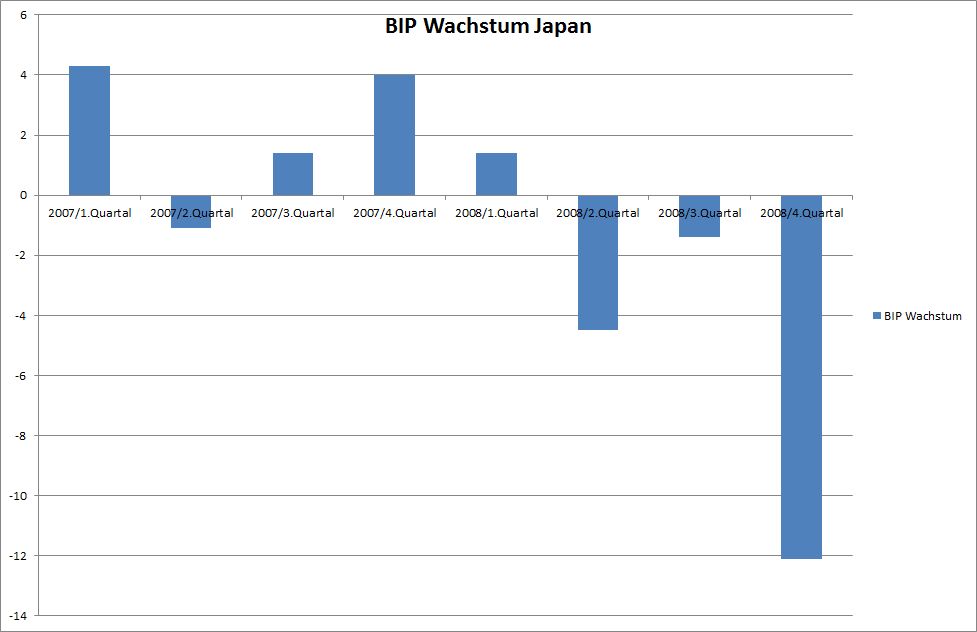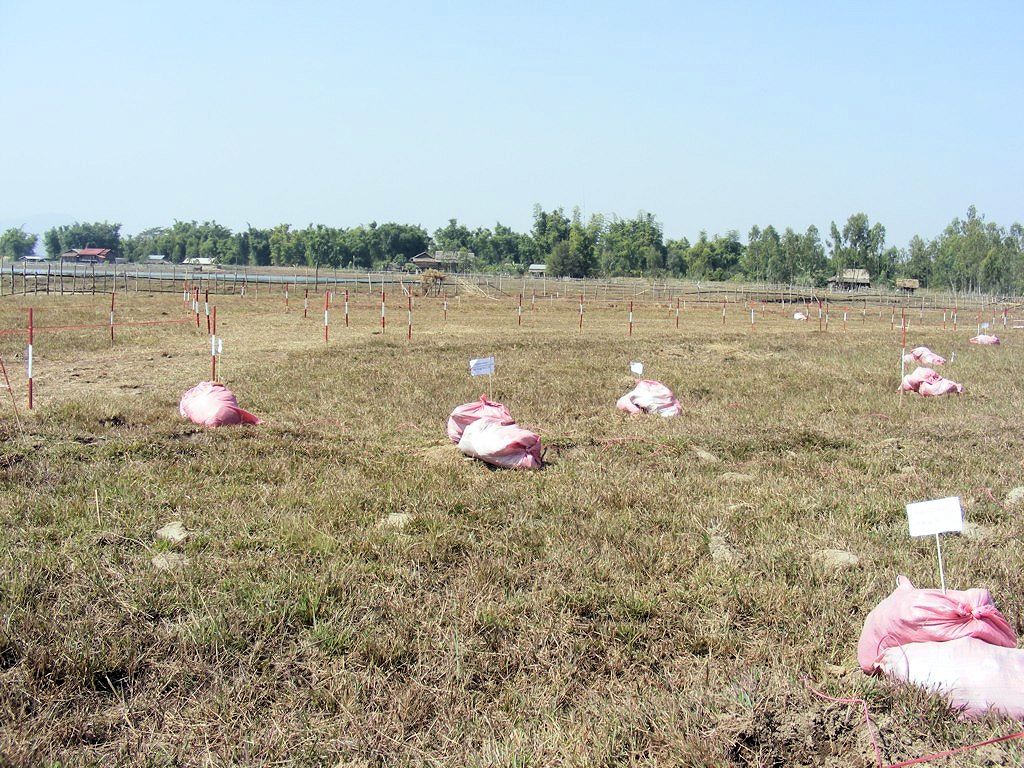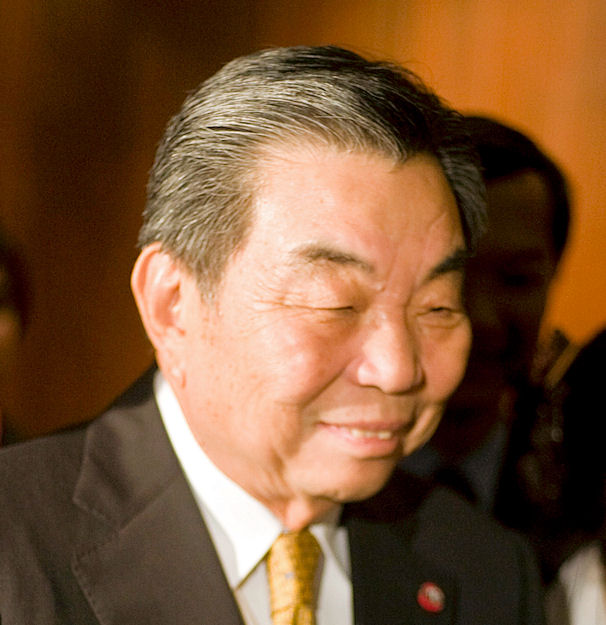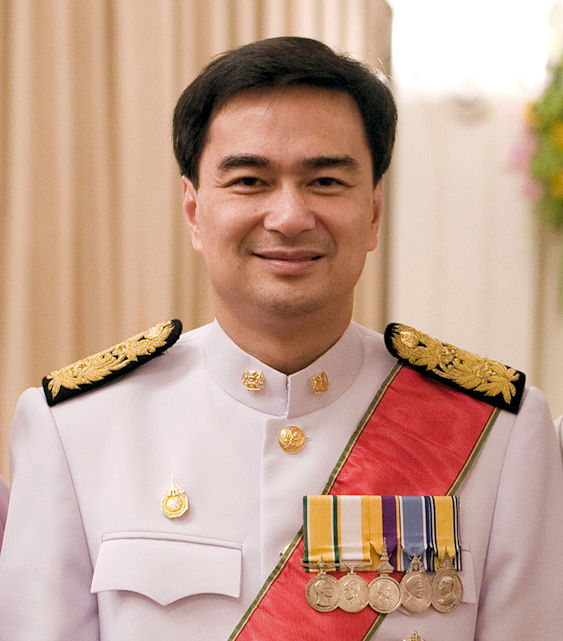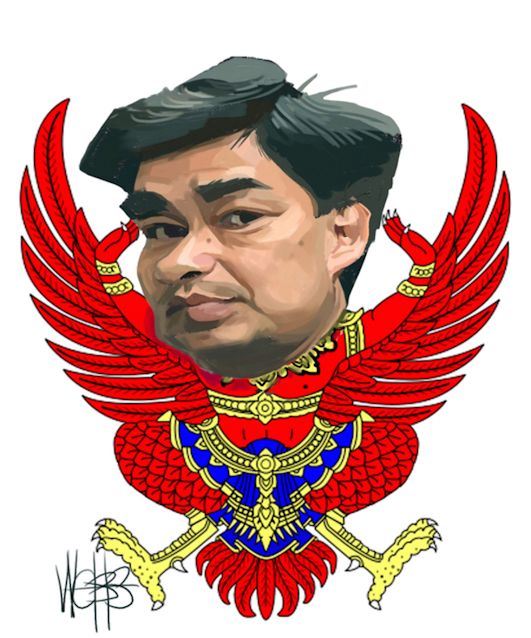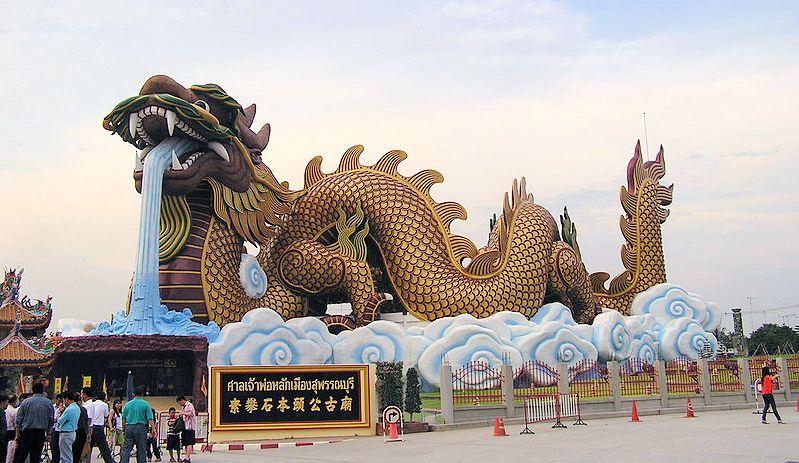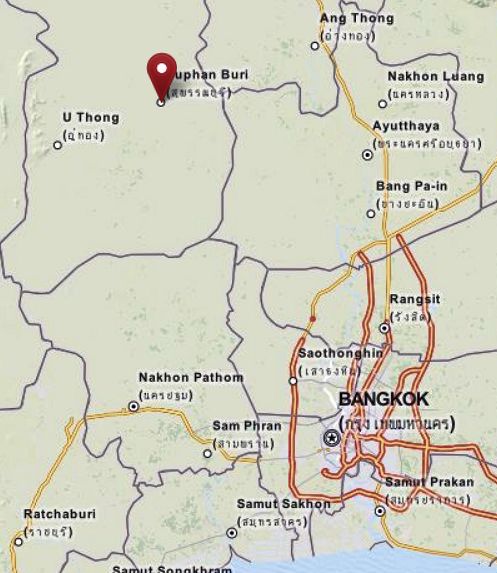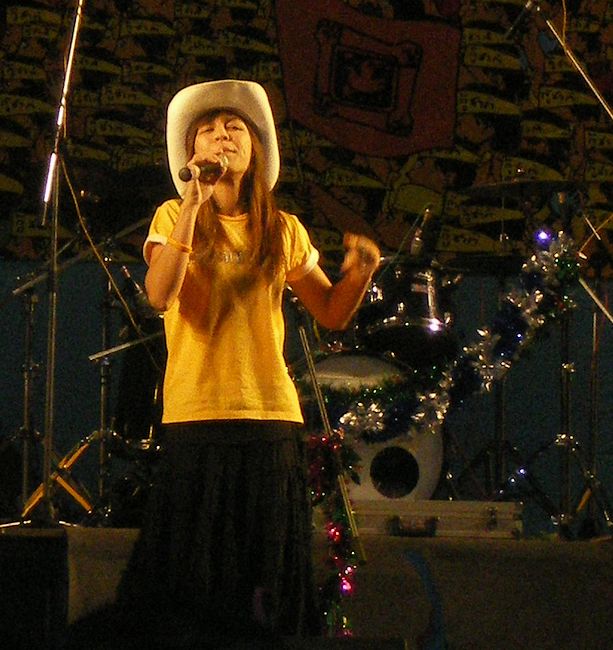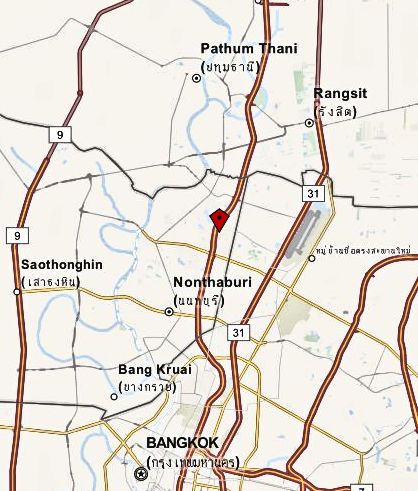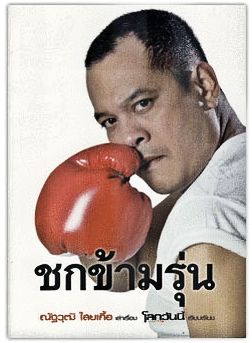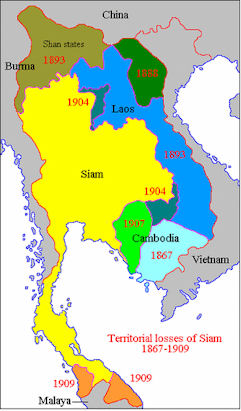
Chronik Thailands
กาลานุกรมสยามประเทศไทย
von
Alois Payer
Chronik 2008 / B. E. 2551
3. Juli bis Dezember
Zitierweise / cite as:
Payer, Alois <1944 - >: Chronik Thailands = กาลานุกรมสยามประเทศไทย. -- Chronik 2008 / B. E. 2551. -- 3. Juli bis Dezember. -- Fassung vom 2017-03-21. -- URL: http://www.payer.de/thailandchronik/chronik2008c.htm
Erstmals publiziert: 2013-04-02
Überarbeitungen: 2017-03-21 [Ergänzungen] ; 2016-08-15 [Ergänzungen] ; 2016-01-19 [Ergänzungen] ; 2016-01-07 [Ergänzungen] ; 2015-01-21 [Ergänzungen] ; 2014-11-25 [Ergänzungen] ; 2014-10-26 [Ergänzungen] ; 2014-02-19 [Ergänzungen] ; 2013-04-25 [Teilung des Jahrgangs] ; 2013-04-21 [Ergänzungen] ; 2013-04-14 [Ergänzungen] ; 2013-04-03 [Ergänzungen]
©opyright: Dieser Text steht der Allgemeinheit zur Verfügung. Eine Verwertung in Publikationen, die über übliche Zitate hinausgeht, bedarf der ausdrücklichen Genehmigung des Herausgebers.
Dieser Text ist Teil der Abteilung
Thailand von
Tüpfli's Global Village Library
ช้างตายทั้งตัวเอาใบบัวปิดไม่มิด
|
Gewidmet meiner lieben Frau Margarete Payer die seit unserem ersten Besuch in Thailand 1974 mit mir die Liebe zu den und die Sorge um die Bewohner Thailands teilt. |
|
Bei thailändischen Statistiken muss man mit allen Fehlerquellen rechnen, die in folgendem Werk beschrieben sind:
Die Statistikdiagramme geben also meistens eher qualitative als korrekte quantitative Beziehungen wieder.
|
2551 / 2008 Juli bis Dezember
2008-07
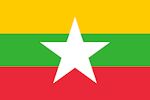
Flüchtlingslager in Thailand, Stand Juli 2008:
Abb.: Flüchtlingslager in Thailand, Juli 2008
[Bildquelle: UNHCR. -- http://www.unhcr.org/453895a34.html. -- Zugriff am 2012-01-09]
2008-07
Die Zensur gibt den Dokumentarfilm Citizen Juling (พลเมืองจูหลิง) zur Aufführung frei. Filmemacher: Ing K (อิ๋ง กาญจนะวณิชย์, 1959 -) und Manit Sriwanichpoom (มานิต ศรีวานิชภูมิ, 1961 - ) in Zusammenarbeit mit dem Politiker Kraisak Choonhavan (ไกรศักดิ์ ชุณหะวัณ, 1947). Der Film handelt von den Problemen des malaiisch-muslimischen Südens.
Abb.: Plakat
[Fair use]
2008-07
Erste Nummer des Thai-Manga Garin's uncanny file (การิน ปริศนาคดีอาถรรพ์).
Abb.: Garin's uncanny file (การิน ปริศนาคดีอาถรรพ์)
[Bildquelle: Wikipedia. -- Fair use]
"Garin's uncanny file (Thai: การิน ปริศนาคดีอาถรรพ์) is a Thai comic series written and illustrated by Aii (อัยย์). It was originally serialized in Thailand by Punica Publishing (สำนักพิมพ์พูนิก้า). Garin's uncanny file phenomenon created within one month of sales released and published in Malaysia as FaIL aNEH GaRIN
SummaryLultima (ลัลทริมา) is a girl with extraordinary ability. She has mysterious things perception. Because of this the evil things keep coming to her. She also can read people's mind. She tried to escape from these all the time. After transfer to the new school, she met a boy name Garin (การิน), who's fond of black magic. Then there's an accident with a student in her class which Lultima can sense it might be because of Garin.
ReceptionGarin's uncanny file have been best seller books both of Thailand and Malaysia. And now have plan to signed a contract to purchase from many country. Also South Korea that be next country."
[Quelle: http://en.wikipedia.org/wiki/Garin%27s_uncanny_file. -- Zugriff am 2012-03-05]
2008-07-02
Das Gesundheitsministerium meldet 587 Fälle von Leptospirose, davon 15 Todesfälle. Die meisten Infektionen treten während der Regenzeit auf. Menschen mit Verletzungen an den Beinen, die durch Flutwasser gehen, unterliegen einem 15fach höherem Infektionsrisiko.
Abb.: Übertragungswege und Symptome von Leptospirose
[Bildquelle: AJ Cann. -- http://www.flickr.com/photos/ajc1/3943463557/. -- Zugriff am 2012-10-25. -- Creative Commons Lizenz (Namensnennung, keine kommerzielle Nutzung, share alike)] ]
"Eine Leptospirose ist eine Infektionskrankheit, die durch bestimmte Krankheitserreger der Gattung Leptospira (aus der Ordnung der Spirochäten) verursacht wird. Es handelt sich dabei um eine meldepflichtige Zoonose, deren natürliche Wirte vor allem Ratten und Mäuse, im Falle der Schweinehüterkrankheit auch Schweine und Rinder sind. Die Übertragung auf den Menschen erfolgt durch Kontakt mit Urin, Blut oder Gewebe infizierter Tiere bzw. verunreinigtem Wasser.
[...]
VerlaufIn etwa 90 % der Fälle verläuft die Leptospirose ähnlich wie eine Grippe. Den klassischen Verlauf findet man vor allem beim Morbus Weil, aber auch andere Leptospiren können einen schweren Verlauf hervorrufen. Im Blut des Wirtes vermehren sich die Leptospiren ein bis zwei Wochen, gelegentlich auch bis zu 26 Tage, bevor sich Symptome entwickeln. Diese bestehen aus Fieber, Schüttelfrost, Kopf- und Gliederschmerzen. Eine Bindehautentzündung sowie Waden- und Schienbeinschmerzen werden häufig beobachtet. Dieses Stadium dauert etwa 3–7 Tage. Daraufhin folgt eine kurze Phase von 2–3 Tagen, in der es dem Patienten etwas besser geht.
Es schließt sich eine zweite, fieberhafte Krankheitsphase an, die bis zu 30 Tage dauert. Dieser Zeitraum ist am ehesten Ausdruck einer Immunreaktion mit zirkulierenden Immunkomplexen, ausgelöst durch die Endothelschädigung. Bei der schweren Verlaufsform, dem Morbus Weil, kann es in dieser Zeit zu Schädigungen der Leber kommen. Beim Canicolafieber, welches mittelschwer verläuft, steht eine Meningitis im Vordergrund, ebenso beim eher gutartig verlaufenden Feldfieber.
KomplikationenSchwerste Verlaufsformen findet man beim Morbus Weil, der mit Leber- und Nierenversagen einhergehen und bis zum Tod führen kann.
Die Bindehautentzündung kann bis zu 4 Wochen andauern."
[Quelle: http://de.wikipedia.org/wiki/Leptospirose. -- Zugriff am 2012-10-25]
2008-07-04

Die Weltbank fördert das AEP Livestock Waste Management Projekt. In einem Pilotprojekt auf Ko Sichang (เกาะสีชัง), Provinz Chonburi (ชลบุรี), soll aus Schweinegülle Elektrizität erzeugt werden.
Abb.: Lage von Ko Sichang (เกาะสีชัง)
[Bildquelle: OpenStreetMap. -- Creative Commons Lizenz (Namensnennung, share alike)]
2008-07-06
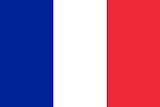
Agence France-Presse (AFP) berichtet: "Alleged brutality by Thai soldiers deepens woes in Muslim south"
2008-07-07
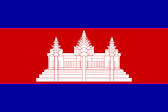
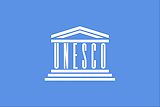
Auf Antrag Kambodschas wird die Dschungelruine Prasat Preah Vihear (ប្រាសាទព្រះវិហារ / ปราสาทพระวิหาร) von der UNESCO zum Weltkulturerbe ernannt. Thailand hatte zunächst den Antrag unterstützt, am 2008-07-08 erklärt das thailändische Verfassungsgericht das diesbezügliche bilaterale Abkommen für verfassungswidrig.
Abb.: Blutiger Streit um ein Weltkulturerbe
[Bildquelle: Crayzhero / Wikimedia. -- Public domain]
2008-07-08

In Tokyo geben ehemalige leitende Mitarbeiter der Nishimatsu Construction Co. (西松建设) vor dem Staatsanwalt zu, über 125 Millionen Bath an thailändische Beamte gezahlt zu haben, um einen Auftrag für einen Tunnel im Jahr 2003 zu erhalten. Solche Zahlungen seien in Thailand notwendig, wenn man einen öffentlichen Auftrag erhalten wolle.
Abb.: Lage von Japan
[Bildquelle: CIA. -- Public domain]
2008-07-11
Protestkonzert der Gruppe Hammer (แฮมเมอร์) für die Gelbhemden (เสื้อเหลือง)
Die Gruppe auf Spotify:
URI: spotify:artist:7L9eWqqrd237R2LYuLIwdz
URL: https://open.spotify.com/artist/7L9eWqqrd237R2LYuLIwdz
Abb.: Protestkonzert der Gruppe Hammer (แฮมเมอร์) für die Gelbhemden (เสื้อเหลือง), 2008-07-11
[Bildquelle: 2T / Wikimedia. -- GNU FDLicense]
2008-07-11
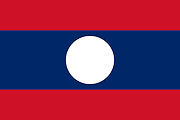
Ca. 400 Hmong (ชาวม้ง) werden aus einem Lager in der Provinz Phetchabun (เพชรบูรณ์) nach Laos abgeschoben.
Abb.: Lage der Provinz Phetchabun (เพชรบูรณ์)
[Bildquelle: OpenStreetMap. -- Creative Commons Lizenz (Namensnennung, share alike)]
2008-07-12
Die Bank for Agriculture and Agricultural Co-operatives (ธนาคารเพื่อการเกษตรและสหกรณ์การเกษตร - ธ.ก.ส.) in Kooperation mit der Kasetsart University (มหาวิทยาลัยเกษตรศาสตร์) will den Gebrauch von organischem Dünger fördern. Durch Verzicht auf industriellen Dünger sollen die Produktions-Kosten - und damit die Verschuldung der Bauern - gesenkt werden.
2008-07-13
Der Gesundheitsminister erklärt, dass mindestens 10 Mio. Thais starkes Übergewicht haben. Ca. 40 Mio. Thais litten unter Bewegungsarmut. Deshalb solle man überall Fitness-Clubs errichten.
Abb.: Übergewichtige Thai, 2009
[Bildquelle: Emilio Labrador. -- http://www.flickr.com/photos/3059349393/3619179237/. -- Zugriff am 2012-10-25. -- Creative Commons Lizenz (Namensnennung)]
2008-07-14
Nha Trang, Vietnam: Bei der Wahl zur Miss Universe erhält die Bewerberin Thailands, Gavintra Photijak (กวินตรา โพธิจักร, aka. Gam - แก้ม, 1986 - ) den Preis für das beste Kostüm (Best National Costume award): sie ist im Stil eines Thai-Boxers (Muay Thai - มวยไทย) gekleidet.
Abb.: Lage von Nha Trang
[Bildquelle: OpenStreetMap. -- Creative Commons Lizenz (Namensnennung, share alike)]
2008-07-14/20
Suzhou ( 蘇州市), China: das thailändische Team Plazma-Z gewinnt in der Kategorie Small Size den World RoboCup (Roboterfußball). Den dritten Platz gewinnt das thailändische Team Skuba. Am RoboCup nehmen 373 Teams aus 35 Ländern teil.
Abb.: RoboCup 2008
[Bildquelle: Northern Bites Bowdoin Robocup. -- http://www.flickr.com/photos/northern_bites/2738794075/in/set-72157606354049289/. -- Zugriff am 2012-10-25. -- Creative Commons Lizenz (Namensnennung, keine kommerzielle Nutzung)]
Abb.: Lage von Suzhou ( 蘇州市)
[Bildquelle: OpenStreetMap. -- Creative Commons Lizenz (Namensnennung, share alike)]
2008-07-17
Im Gegensatz zur Regierung lehnt Armeechef General Anupong Paochinda (อนุพงษ์ เผ่าจินดา, 1949 - ) Verhandlungen mit den Aufständischen Südthailands als inakzeptabel ab.
Abb.: Anupong Paochinda (อนุพงษ์ เผ่าจินดา), 2009
[Bildquelle: The Official Site of The Prime Minister of Thailand Photo by พีรพัฒน์ วิมลรังครัตน์. -- http://www.flickr.com/photos/40561337@N07/4012929441/. -- Zugriff am 2012-10-25. -- Creative Commons Lizenz (Namensnennung)
2008-07-20


Die World Trade Organization (WTO) verbietet die Beschränkungen der USA für den Import von thailändischen Garnelen (shrimps).
Abb.: Zunahme der Garnelen-Farmen, Provinz Trang (ตรัง), 1990 - 2000
[Bildquelle: AMNH Seminars on Science. -- http://www.flickr.com/photos/seminarsonscience/3638778873/. -- Zugriff am 2012-10-25. -- Creative Commons Lizenz (Namensnennung, keine kommerzielle Nutzung, share alike)]
Abb.: Lage der Provinz Trang (ตรัง)
[Bildquelle: OpenStreetMap. -- Creative Commons Lizenz (Namensnennung, share alike)]
2008-07-21
Das Gesundheitsministerium erwägt, die Kompensationszahlungen für junge Ärzte anzuheben. Studierende an staatlichen medizinischen Fakultäten müssen sich verpflichten, nach dem Studiumsabschluss drei Jahre lang in einem staatlichen Krankenhaus zu arbeiten. Von dieser Verpflichtung können sie sich bisher befreien durch eine Kompensationszahlung von 400.000 Bath an die medizinische Hochschule.
2008-07-23

Die deutsche Firma Siemens erhält den Zuschlag zum Bau einer Metallaufbereitungsanlage für Canadoil Plate Ltd. Auftragswert: 100 Mio. Euro. Das Walzwerk soll Metallplatten herstellen für hochwertige Röhren, Druckkörper und Baustahl für die Energie produzierende Industrie.
2008-07-23

Chamlong Srimuang (จำลอง ศรีเมือง, 1935 - ) fordert die Regierung zum Austritt aus der UNESCO auf. Grund: die UNESCO habe Thailands Einwände bezüglich des Status als Weltkulturerbe von Preah Vihear (ប្រាសាទព្រះវិហារ) missachtet.
Abb.: Lage von Preah Vihear (ប្រាសាទព្រះវិហារ)
[Bildquelle: OpenStreetMap. -- Creative Commons Lizenz (Namensnennung, share alike)]
Abb.: Plakat für Chamlong Srimuang (จำลอง ศรีเมือง), 2008
[Bildquelle: Adaptor-Plug. -- http://www.flickr.com/photos/11401580@N03/2928944436/. -- Zugriff am 2012-10-26. -- Creative Commons Lizenz (Namensnennung, keine kommerzielle Nutzung)]
2008-07-24
Das Amt für Grundbesitz hat hunderte von Landbesitzurkunden für die Provinzen Phuket (ภูเก็ต) und Phang Nga (พังงา) für ungültig erklärt, da sie rechtswidrig ausgestellt worden waren.
Abb.: Lage der Provinzen Provinzen Phuket (ภูเก็ต) und Phang Nga (พังงา)
[Bildquelle: CIA. -- Public domain]
2008-07-24
Udon Thani (อุดรธานี): Zusammenstoß zwischen 700 Anhängern von Premierminister Samak Sundaravej und 150 regierungsfeindlichen Demonstranten. Viele Verletzte.
Abb.: Lage von Udon Thani (อุดรธานี)
[Bildquelle: OpenStreetMap. -- Creative Commons Lizenz (Namensnennung, share alike)]
2008-07-25
Patpong (พัฒน์พงศ์), Bangkok: Polizeirazzia gegen gefälschte Markenartikel.
Abb.: Lage von Patpong (พัฒน์พงศ์)
[Bildquelle: OpenStreetMap. -- Creative Commons Lizenz (Namensnennung, share alike)]
2008-07-27
Grundstückpreise in Phuket (ภูเก็ต): Westküste ca. 35 Mio. Baht pro Rai (1600 m²) gestiegen. Im Ostküste: 17 Mio. Baht pro Rai. Wohneigentum im Osten: ca. 130.000 Baht pro m². Preissteigerung für Grundstücke an Westküste: 30 bis 40% pro Jahr.
Abb.: Phuket (ภูเก็ต)
[Bildquelle: OpenStreetMap. -- Creative Commons Lizenz (Namensnennung, share alike)]
2008-07-29
Eröffnung des Bangkok Art and Culture Centre (BACC, หอศิลปวัฒนธรรมแห่งกรุงเทพมหานคร) mit der Ausstellung "Traces of Siamese smile : art + faith + politics + love". Vertreten sind Werke von
- Rirkrit Tiravanija (ฤกษ์ฤทธิ์ ตีระวนิช, 1961 - )
- Surasi Kusolwong (สุรสสีห์ กุศลวงศ์, 1965 - )
- Panya Vijinthanasarn (ปัญญา วิจินธนสาร, 1956 - )
- Thawan Duchanee (ถวัลย์ ดัชนี, 1939 - )
- Pratuang Emjaroen (ประเทือง เอมเจริญ, 1935 - )
- Montien Boonma (มณเฑียร บุญมา, 1953 - 2000)
- Vasan Sitthiket (วสันต์ สิทธิเขตต์, 1957 - )
- Yue Minjun (岳敏君, 1962 - ), China
- Louise Joséphine Bourgeois (1911 - 2010), Frankreich/USA
- Yoshimoto Nara (奈良 美智, 1959 - ), Japan
- Marina Abramović (1946 - ), Jugoslawien
Abb.: Lage des Bangkok Art and Culture Centre (BACC, หอศิลปวัฒนธรรมแห่งกรุงเทพมหานคร)
[Bildquelle: OpenStreetMap. -- Creative Commons Lizenz (Namensnennung, share alike)]
Abb.: Bangkok Art and Culture Centre (BACC, หอศิลปวัฒนธรรมแห่งกรุงเทพมหานคร), 2009
[Bildquelle: A. Arunita / th.Wikipedia. -- GNU FDLicense]
Abb.: Bangkok Art and Culture Centre (BACC, หอศิลปวัฒนธรรมแห่งกรุงเทพมหานคร), 2011
[Bildquelle: Benjamin. -- http://www.flickr.com/photos/ber1/6334671473/. -- Zugriff am 2012-04-06. -- Creative Commons Lizenz (Namensnennung, keine Bearbeitung)]
Abb.: Bangkok Art and Culture Centre (BACC, หอศิลปวัฒนธรรมแห่งกรุงเทพมหานคร), 2011
[Bildquelle: Jack Zalium. -- http://www.flickr.com/photos/kaiban/6297373746/. -- Zugriff am 2012-04-06. -- Creative Commons Lizenz (Namensnennung, keine Bearbeitung)]
Abb.: Ausstellungsstück aus einer dem König gewidmeten Ausstellung, Bangkok Art and Culture Centre (BACC, หอศิลปวัฒนธรรมแห่งกรุงเทพมหานคร), 2011
[Bildquelle: Around the World in unknown Days. -- http://www.flickr.com/photos/65934665@N06/6549728217/. -- Zugriff am 2012-04-06. -- Creative Commons Lizenz (Namensnennung, keine kommerzielle Nutzung, share alike)]
"Das Kunst- und Kulturzentrum Bangkok (Thai: หอศิลปวัฒนธรรมแห่งกรุงเทพมหานคร, Bangkok Art and Culture Centre) ist ein Museum für zeitgenössische Kunst in Bangkok. Es liegt an der Ecke Rama-I.-Straße (ถนนพระรามที่ 1) und Phayathai-Straße (ถนนพญาไท) im Bezirk Pathumwan (ปทุมวัน). Die Initiative zum Bau eines Kunst- und Kulturzentrums stammt von Gouverneur Bhichit Rattakul (พิจิตต รัตตกุล, 1946 - ). Der Bau wurde im Jahr 2000 begonnen, später jedoch wegen Finanzierungsschwierigkeiten und Korruptionsvorwürfen unterbrochen. Ursprünglich sollte die Einrichtung Bangkok Metropolitan Museum of Contemporary Art (Bangkok Stadtmuseum für zeitgenössische Kunst) heißen, doch wurde sie vor Eröffnung mit dem heutigen Namen belegt.
Das Kunst- und Kulturzentrum Bangkok öffnete am 29. Juli 2008 mit der Eröffnungsausstellung „Immer unterwegs mit hungrigem Herzen“ (Always roaming with a hungry heart), auf der Fotos von Prinzessin Maha Chakri Sirindhorn (มหาจักรีสิรินธร, 1955 - ) gezeigt wurden. 2009 fand bis in den November hinein eine Show von mehr als 300 Werken in- und ausländischer Künstler statt ("Traces of Siamese Smile: Art+Faith+Politics+Love").
Das Zentrum ist zu finden unter folgender Adresse: 939 Rama I Road Wongmai, Bangkok 10330"
[Quelle: http://de.wikipedia.org/wiki/Kunst-_und_Kulturzentrum_Bangkok. -- Zugriff am 2012-04-06]
2008-07-31


Jitra Kotchadet (จิตรา คชเดช), Leiterin der Triumph International (Thailand) Labour Union (TITLU), wird entlassen, weil sie in einer Talk Show des Senders NBT (สถานีวิทยุโทรทัศน์แห่งประเทศไทย) ein T-Shirt getragen hatte mir der Aufschrift (in Thai): "Nicht Aufstehen ist kein Verbrechen, anders Denkend ist kein Verbrechen", womit sie gegen die Majestätsbeleidigungs-Prozesse protestierte.
Abb.: Jitra Kotchadet (จิตรา คชเดช)
[Bildquelle: http://thaingo.org/web/category/vdo/page/10/. -- Zugriff am 2012-10-27. -- Fair use]
2008-08 - 2011

Hanns Heinrich Schumacher (1948 - ) ist deutscher Botschafter in Thailand.
2008-08-02
Abb.: "Ordnungskräfte" der Gelbhemden (เสื้อเหลือง), Bangkok, 2008-08-02
[Bildquelle: Mark Micallef / Wikimedia. -- Creative Commons Lizenz (Namenennung, share alike)]
2008-08-02
Partielle Sonnenfinsternis über Thailand
Abb.: Sonnenfinsternis 2008-08-01
[Bildquelle: USGOV-NASA / Wikipedia. -- Public domain]
2008-08-02

Prachatai (ประชาไท): Vorschlag des Anführers der Gelbhemden (เสื้อเหลือง), Sondhi Limthongkul (สนธิ ลิ้มทองกุล, 1947 - ) zur Lösung des Konflikts mit Kambodscha wegen Prasat Preah Vihear (ប្រាសាទព្រះវិហារ):
"Sondhi Limthongkul’s solution to the Preah Vihear dispute Submitted by prachatai on Sat, 02/08/2008 - 00:00
PrachataiOn the night of July 28, while the Preah Vihear [ប្រាសាទព្រះវិហារ] dispute was being negotiated between Thai and Cambodian governments at Cambodia’s Siam Reap [សៀមរាប] and before the 4-point conclusion was reached at 10 pm, Sondhi Limthongkul [สนธิ ลิ้มทองกุล, 1947 - ], leader of the People’s Alliance for Democracy (PAD) [พันธมิตรประชาชนเพื่อประชาธิปไตย; aka. Gelbhemden - เสื้อเหลือง], took to the stage at about 9 pm to address the crowd rallying near Government House [ทำเนียบรัฐบาล] in Bangkok, and proposed his own way of solving the dispute by force.
Sondhi said that Thailand was in the greatest danger. To have a new Foreign Minister would not help, and Thai sovereignty would only further erode. The only way was to oust this government first, and form a new government through ‘whatever means’, or else the dispute over the Preah Vihear temple and Thai-Cambodian border would never be solved.
He proposed a what-to-do list to be taken by the next government, including:
1. The next government must revoke the current Cabinet’s resolution that gives approval to the Thailand-Cambodia Joint Communiqué that supports Cambodia’s bid to list the Preah Vihear temple as a World Heritage site with the UNESCO;
2. A neutral, independent committee must be set up consisting of socially accepted persons to investigate wrongdoing, and then notify the United Nations that Thailand does not accept the UNESCO Committee’s decision to grant the World Heritage status to the Preah Vihear temple at Cambodia’s request, and that Thailand wishes to reopen the ruling by the International Court of Justice in 1962;
3. An official letter must be sent to the UN Secretary-General for Thailand to withdraw from UNESCO, and cancel all recognition that the UNESCO has ever granted to Thai archaeological sites;
4. The Cambodian Ambassador to Thailand must be summoned to be informed that Thailand has never accepted the French map to which Cambodia has referred;
5. A special delegation must be set up, including the (new) Prime Minister, to visit countries which are members of the UN Security Council to explain to them, maybe behind doors, and ask them to choose between Thai or Cambodian friendship;
World-famous public relations firms should be hired to bring up the story of French bullying of Thailand through the media worldwide, and a website should be created called ‘www.realfactsofkhaophraviharn.com’ , filled with the correct information;
Academics in the field of geography and experts on satellite photography should be invited to a seminar in Bangkok, or Hong Kong, or New York, or Sydney, hosted by Thailand, to insist that watershed lines are universally accepted as border demarcation lines, and to prove that, if the watershed line is used, together with satellite photos, Preah Vihear is on Thai soil;
A meeting should be called of Thai ambassadors from all over the world to assign them to explain Thailand’s stand and the facts regarding the case to the media in each country, and point out that the dispute is a consequence of French colonialism, and set a 30-day time frame for the ambassadors to accomplish the task, in pain of immediate removal;
6. Thai investors in Cambodia must be informed that Thailand has no policy to promote investments there because the dispute is likely to erupt in the future, and advise them to withdraw, or forgo Thai government help;
Thai people doing business along the border must be told to be prepared for border closures in case the conflict escalates;
7. A commission must be set up to invite Cambodia to bilateral negotiations. If the dispute cannot be settled, Thailand would, temporarily adhering to the ICJ’s [International Court of Justice] ruling, mobilize Thai troops, push Cambodians back from Thai territory, and formally inform Cambodia that, apart from the Preah Vihear temple, the surroundings belong to Thailand, and Thailand would pay any price to protect its sovereignty, even at the cost of war.
“We would close all 40 Thai-Cambodian border checkpoints, and ban all flights to Phnom Penh [ភ្នំពេញ] and Siam Reap from Bangkok; 70% of flights to the two destinations are from Bangkok.
And then we would order the Defense Ministry to build a naval base at Koh Kut [เกาะกูด], deploy two battleships there, together with patrol ships, build a runway for F-16 aircraft, abolish the committee which oversees demarcation of overlapping sea areas, and officially declare our own marine map.
Abb.: Lage von Koh Kut [เกาะกูด]
[Bildquelle: OpenStreetMap. -- Creative Commons Lizenz (Namensnennung, share alike)]
Abb.: General Dynamics (now Lockheed Martin) F-16 Fighting Falcon der Royal Thai Airforce (กองทัพอากาศไทย), 2010
[Bildquelle: New Zealand Defence Force. -- http://www.flickr.com/photos/nzdefenceforce/7445595130/. -- Zugriff am 2015-01-21. -- Creative Commons Lizenz (Namensnennung)]Cambodia would be hopping mad, but we would not bother because Cambodia would not have the nerve to fight us. They can make noises and threats because our own people are traitors. But if they see that Thai soldiers have a firm stand, the (new) Thai government has a firm stand, and the Thai people are ready to sacrifice their lives for sovereignty, they will back off. Cambodia can do nothing but to count on Thailand. If they want to count on Vietnam, let them do so, but problems would surely arise between the real Cambodians and the Vietnamese in future.
China openly makes friends with everybody, but furtively China knows that, between Thailand and Cambodia, it prefers Thailand.
When we declare all overlapping areas ours, Cambodia will surely protest. But we will not argue. We’ll send our battleships to seize any islands and islets we spot, or anchor our battleships in the overlapping sea territory.
Until the UN sets up a committee to mediate the dispute over sea areas between Thailand and Cambodia, we would sit at the table, and would not be an underdog like we are today, but would hold the upper hand. At that time western companies and countries who look for sources of energy know that the new Thai government is not a traitor, so they will take the Thai side.
After we resign from UNESCO, we would officially notify the 7 member countries of the World Heritage Committee that we would not allow them to enter our country to restore the Preah Vihear temple. They would have to fly helicopters from Cambodia to reach the temple. We would not even allow them to come out to use toilets on Thai soil.
This is the only thing for us to do, and we can do it, believe me.
To negotiate with a rogue country like Cambodia cannot be done with our weaknesses and as long as we still have those traitors. We have to bring about unity of the nation on this issue of Preah Vihear temple and Thai sovereignty, and then we will take this ‘Strength of the Land’ to talk with Cambodia.
This is urgent. I believe that when we implement this, the worst-case scenario would be a reversion to 1962 when Cambodia could take only the temple, but nothing else.
But what is certain, whether an agreement can be reached or not, is that the new government must prohibit Thai gamblers from entering casinos in Poi Pet [ក្រុងប៉ោយប៉ែត], because the casino owners who are Thai have to share half of their profits with Hun Sen [ហ៊ុន សែន, 1952 - ] [Cambodia’s Prime Minister].
Remember my words. The Thai Foreign Minister Tej Bunnag [เตช บุนนาค, 1943 - ] will never be able to solve the dispute, because the policy of this government is to betray the country.”"
[Quelle: http://www.prachatai.com/english/node/732. -- Zugriff am 2015-01-21. -- Fair use]
2008-08-02

Einige Tausend PAD-Mitglieder (พันธมิตรประชาชนเพื่อประชาธิปไตย; aka. Gelbhemden - เสื้อเหลือง) vollziehen Rituale gegen die schwarze Magie von Kambodschanern.
Gestern ist die Frau des kambodschanischen Ministerpräsidenten Hun Sen, Bun Rany, zu einer Feierlichkeit in den Preah Vihear Ruinen (ប្រាសាទព្រះវិហារ) gepilgert, um dort mit fast 1000 Personen, darunter hochrangigen Offiziellen, an Ritualen teilzunehmen. Diese Rituale gelten als besonders gefährlich, da gestern eine partielle Sonnenfinsternis war.
2008-08-03

Bewaffneter Zwischenfall in der Nähe von Prasat Preah Vihear (ប្រាសាទព្រះវិហារ) aufgrund einer Provokation durch PAD-Mitglieder (พันธมิตรประชาชนเพื่อประชาธิปไตย; aka. Gelbhemden - เสื้อเหลือง). Ein kambodschanischer Soldat wird getötet.
2008-08-04
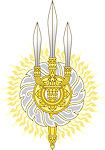
Phisek Sanitthangkun, aus Chiang Mai (เชียงใหม่), wird wegen des Vorwurfs der Majestätsbeleidigung vor die "Crime Suppression Division" (กองบังคับการปราบปราม) der Royal Thai Police (ตำรวจแห่งชาติ) geladen. Ihm wird vorgeworfen, dass er im Internetforum www.pantip.com abfällige Bemerkungen über Bücher von Prinzessin Sirindhorn (มหาจักรีสิรินธร, 1955 - ) gemacht habe. Die Anzeige kommt von Monthani Tantisuk (มณฑานี ตันติสุข), einer Autorin und Übersetzerin, die mit Phisek am 12. November 2007 im Internetforum über die Bücher der Prinzessin gestritten hatte.
2008-08-06

1800 Gewerkschaftler ziehen vor die deutsche Botschaft in Bangkok und übergeben einen offenen Brief an die Bundesregierung "Unfaire Arbeitspraktiken von Deutschlands Multis in Thailand". Es geht um die beiden deutschen Firmen Triumph International und Linde.
Wortlaut des offenen Briefs:
"Während Deutschland bekannt ist, als eines der führenden Länder für Demokratie, und eines der Länder, die Frieden und sozialen Dialog propagieren, bedauern wir Ihnen mitteilen zu müssen, dass die Arbeitgeberpraktiken der deutschen Multis, speziell von Triumph und Linde, weit von akzeptablen Standards entfernt sind. Nicht nur, dass wir enttäuscht über gebrochene Versprechen, von so großen und reichen multinationalen Konzernen sind, die beide ihre Zentrale in München haben, haben. So haben auch die unfairen Arbeitgeberpraktiken und die Nichtanerkennung der Rechte der Gewerkschaften großes Leid über tausende von Arbeitern in Thailand gebracht ..
Deshalb wenden wir uns an Sie als Staatsoberhaupt, damit sie die CEOs der zwei multinationalen Firmen auffordern, ihre Politik zu überdenken, die unfairen Arbeitgeberpraktiken zu korrigieren und einen sozialen Dialog mit den Gewerkschaften einzuleiten, der auf Demokratie und Transparenz beruht."[Übersetzung: http://www.schoenes-thailand.de/startseite/wirtschaft/2525-demonstration-vor-deutscher-botschaft-wo-sind-deutsche-gewerkschafter. -- Zugriff am 2012-10-27]
Abb.: Lage der deutschen Botschaft Bangkok
[Bildquelle: OpenStreetMap. -- Creative Commons Lizenz (Namensnennung, share alike)]
2008-08-07

Zur Feier "175 Jahre Beziehungen USA-Thailand" besucht US-Präsident George W. Bush Thailand. Er besucht auch unter der Führung des katholischen Priesters Father Joseph (Joe) H. Maier, C.Ss. R. (1939 -) der Khlong Toei Slum (คลองเตย).
Abb.: Lage von Khlong Toei (คลองเตย)
[Bildquelle: OpenStreetMap. -- Creative Commons Lizenz (Namensnennung, share alike)]
Abb.: George W. Bush
[Bildquelle: DonkeyHotey. -- http://www.flickr.com/photos/donkeyhotey/4396156214/. -- Zugriff am 2012-01-04. -- Creative Commons Lizenz (Namensnennung, share alike)]
2008-08-08 - 2008-08-24
Abb.: Lage von Beijing ( 北京, China)
[Bildquelle: OpenStreetMap. -- Creative Commons Lizenz (Namensnennung, share alike)]Olympische Sommerspiele in Beijing ( 北京, China).
Abb.: Ministerpräsident Wen Jiabao mit der olympischen Flamme / von Murray Webb (1947 - ), 2008"Caricature of Chinese Premier, Wen Jiabao, running with an Olympic torch across a background of a map of Europe. Shown on the map are British protesters and policemen and a Chinese policeman threatening a Tibetan monk with a truncheon. Refers to the wave of protests against the Chinese treatment of Tibet in the run up to the Olympic Games to be held in Beijing. There is a play on the words 'Torch' and 'Torture' in the title."
[Quelle von Bild und Text: Wen Jiabao. 'Torch ure' 8 April, 2008. Webb, Murray, 1947- :[Digital caricatures published from 29 July 2005 onwards (2006, 2007, 2008). Includes a selection of digital caricatures published from 2002 and up to July 2005.]. Ref: DCDL-0006154. Alexander Turnbull Library, Wellington, New Zealand. http://natlib.govt.nz/records/22564864. -- Zugriff am 2013-03-09. -- "You can copy this item for personal use, share it, and post it on a blog or website. It cannot be used commercially without permission"]
Medaillen für Thailand:
Gold
- Prapawadee Jaroenrattanatarakoon (ประภาวดี เจริญรัตนธารากูล, 1984 - ), Gewichtheben Frauen Klasse bis 58 kg
- Somjit Jongjohor (สมจิตร จงจอหอ, 1975 - ), Boxen Männer Fliegengewicht
Silber
- Buttree Puedpong (บุตรี เผือดผ่อง, 1990 - ), Taekwondo Frauen Klasse unter 49 kg
- Manus Boonjumnong (มนัส บุญจำนงค์, 1980 - ), Boxen Männer Halbweltergewicht
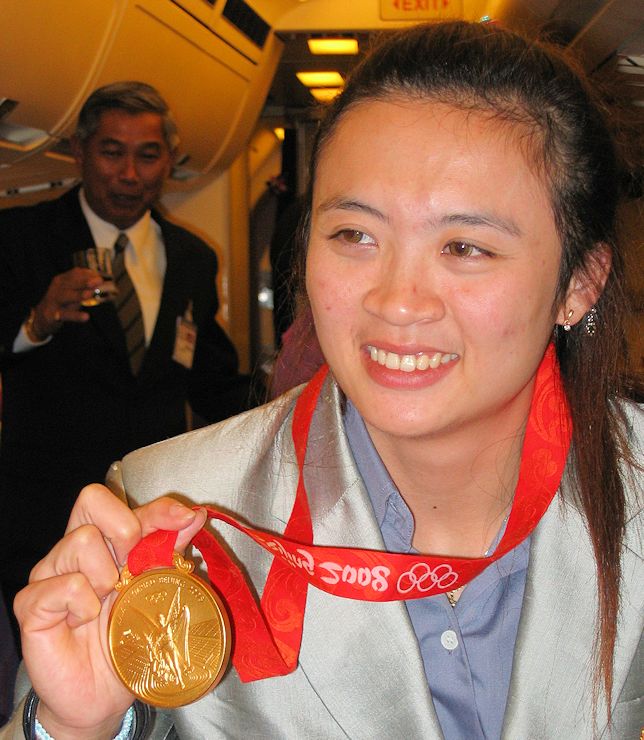
Abb.: Prapawadee Jaroenrattanatarakoon (ประภาวดี
เจริญรัตนธารากูล), 2008-08
[Bildquelle: Thai Amateur Weightlifting Association / Wikipedia. --
Creative Commons
Lizenz (Namensnennung, share alike)]
2008-08-09

Provinz Ang Thong (อ่างทอง): Auf einem Demonstrationsbauernhof lässt das Landwirtschaftministerium unter dem Patronat der Königin erstmals seit 47 Jahren ein Ritual für die Reisgöttin Mae Pho Sop (แม่โพสพ) durchführen.
Abb.: Lage der lässt Provinz Ang Thong (อ่างทอง)
[Bildquelle: OpenStreetMap. -- Creative Commons Lizenz (Namensnennung, share alike)]
"Mae Phosop (Thai: แม่โพสพ) is the Siamese rice goddess.[1] Background
Ritual offerings (Cha-laew) are made to propitiate the Rice Goddess during the different steps of rice production. Villagers believe that Goddess Mae Po-sop ensures everyone has enough to eat.[2]
The iconographic representation of Mae Po Sop is of a beautiful woman wearing full jewelry and a red dress. She is in the sitting or standing position holding a harvested rice sheaf on her right shoulder. The iconography of this goddess is based in the Hindu goddess Sri Lakshmi (लक्ष्मी / พระลักษมี), but its origins are local and more ancient[3].
In modern Thailand, paying homage to Pō-sop by rice farmers had been declining in recent times, but Queen Sirikit (สมเด็จพระนางเจ้าสิริกิติ์ พระบรมราชินีนาถ, 1932 - ) gave royal patronage to this ancient custom of Thai folklore in August 2008.[4]"
[Quelle: http://en.wikipedia.org/wiki/Phosop. -- Zugriff am 2012-10-27]
2008-08-09
Tod des Schauspielers, Luk Thung (ลูกทุ่ง) Sängers und Sexsymbols Yotrak Sakachai (ยอดรัก สลักใจ, 1956 - 2008). Sein Tod führt zu einem neuen Interesse an altem Luk Thung (เพลงลูกทุ่ง)
Künstlerlink auf Spotify:
URI:
spotify:artist:3oB7pOiT8djGHBja3zrtQt
URL:
https://open.spotify.com/artist/3oB7pOiT8djGHBja3zrtQt
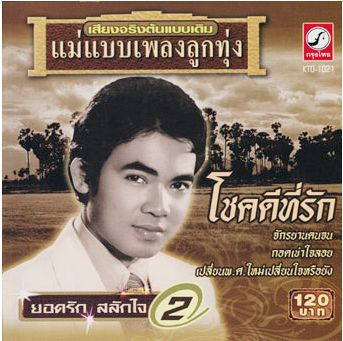
Abb.:
CD-Titel
[Fair use]
2008-08-10
Trang (ตรัง): Protestkonzert für die Gelbhemden (เสื้อเหลือง) von Chatchai Sukkawadi (ชัชชัย สุขขาวดี) a.k.a. Rang Rockestra (หรั่ง ร็อคเคสตร้า).
Künstlerlink auf Spotify:
URI: spotify:artist:0u0yjsdRQ9Y6hWAdgaHyDJ
URL: https://open.spotify.com/artist/0u0yjsdRQ9Y6hWAdgaHyDJ
Abb.: Protestkonzert für die Gelbhemden (เสื้อเหลือง) von Chatchai Sukkawadi (ชัชชัย สุขขาวดี, 1982 - ) a.k.a. Rang Rockestra (หรั่ง ร็อคเคสตร้า), Trang (ตรัง), 2008-08-10
[Bildquelle: 2T / Wikimedia. -- GNU FDLicense]
Abb.: Lage von Trang (ตรัง)
[Bildquelle: OpenStreetMap. -- Creative Commons Lizenz (Namensnennung, share alike)]
2008-08-11
Thaksin Shinawatra (ทักษิณ ชินวัตร) flieht vor der Strafverfolgung nach Großbritannien. Er glaubt nicht an eine unabhängige Rechtssprechung in Thailand.
Abb.: Lage von Großbritannien
[Bildquelle: OpenStreetMap. -- Creative Commons Lizenz (Namensnennung, share alike)]
2008-08-19
Marsch der Gelbhemden (เสื้อเหลือง) zur britischen Botschaft, um die Auslieferung von Thaksin Shinawatra (ทักษิณ ชินวัตร, 1949 - ) zu fordern
Abb.: Marsch der Gelbhemden (เสื้อเหลือง) zur britischen Botschaft, Bangkok, 2008-08-19
[Bildquelle: Adaptor-Plug. -- http://www.flickr.com/photos/11401580@N03/2776576135/. -- Zugriff am 2012-10-18. -- Creative Commons Lizenz (Namensnennung, keine kommerzielle Nutzung)]
Abb.: Gelbhemden (เสื้อเหลือง): mit dem Kommunisten (!) Che Guevara (1928 - 1967) gegen Thaksin Shinawatra (ทักษิณ ชินวัตร, 1949 - ), Bangkok, 2008-08-19
[Bildquelle: Adaptor-Plug. -- http://www.flickr.com/photos/11401580@N03/2776576151/. -- Zugriff am 2012-10-18. -- Creative Commons Lizenz (Namensnennung, keine kommerzielle Nutzung)]
Abb.: Lage der britischen Botschaft
[Bildquelle: OpenStreetMap. -- Creative Commons Lizenz (Namensnennung, share alike)]
2008-08-20
Bangkok: Protestkonzert für die Gelbhemden (เสื้อเหลือง) durch die Gruppe Zu Zu (ซูซู)
Die Gruppe auf Spotify:
URI: spotify:artist:1xzYmd4FF2tBVcxWuDFIH7
URL: https://open.spotify.com/artist/1xzYmd4FF2tBVcxWuDFIH7
Abb.: Protestkonzert für die Gelbhemden (เสื้อเหลือง) durch die Gruppe Zu Zu (ซูซู), Bangkok, 2009-08-20
[Bildquelle: 2T / Wikimedia. -- GNU FDLicense]
2008-08-20

Der ehemalige Rockstar Gary Glitter (1944 - ) versucht vergeblich, auf Transit im Suvannabhummi Airport der Abschiebung durch Vietnam nach Großbritannien zu entgehen. Er war wegen des sexuellen Missbrauchs minderjähriger Mädchen verurteilt worden.
Künstlerlink auf Spotify:
URI: spotify:artist:61zv3hX7l838ZyhaDyAx8S
URL: https://open.spotify.com/artist/61zv3hX7l838ZyhaDyAx8S
Abb.: Gary Glitter, 1974
[BIldquelle: AVRO / Wikimedia. -- Creative Commons Lizenz (Namensnennung, share alike)]
"Im Januar 2006 wurde Glitter angeklagt, Unzucht mit zwei Mädchen im Alter von zehn und elf Jahren begangen zu haben. Die Akten dieses Verfahrens belegen, dass nach Zahlung von je 2000 US-Dollar an die Eltern der Anklagepunkt von Sex mit Minderjährigen auf unsittliche Berührung herabgestuft wurde. Ein vietnamesisches Gericht verurteilte ihn am 3. März 2006 nach zweitägiger, nichtöffentlicher Verhandlung zu drei Jahren Haft und anschließender Abschiebung. Glitter selbst hatte seine Unschuld beteuert und das Verfahren als eine Verschwörung bezeichnet. Später wurde seine Haftstrafe um drei Monate reduziert." [Quelle: http://de.wikipedia.org/wiki/Gary_Glitter. -- Zugriff am 2012-10-27]
"Glitter was released from Thu Duc prison in southern Binh Thuan Province on 19 August 2008. He was escorted under police guard to Tan Son Nhat Airport in Ho Chi Minh City and put on board a flight to London via Bangkok. At Bangkok he claimed that he had tinnitus and a heart condition, and refused to board the flight to London despite the efforts of British police sent to escort him, although they had no jurisdiction to take action. He was refused entry to Thailand and threatened with deportation to the UK.[46][47][48] On the evening of 20 August, he took a flight to Hong Kong, where he requested medical treatment saying he was suffering a heart attack. The Hong Kong authorities also refused to admit him and he returned to Thailand the next day.[49] At least 19 countries, including Cuba, Cambodia, and the Philippines, announced that they would refuse to admit Glitter, and on 21 August the Thai authorities stated that he had agreed to return to the UK.[50] He arrived back in the UK at Heathrow Airport at 7:10 am on 22 August 2008, where he was met by British police officers.[51]
On his return to the United Kingdom, Glitter was added to the Sex Offenders Register for life, and stated an intention to appeal against this decision; on 16 January 2009 it was announced that he had abandoned this move.[52]"
[Quelle: http://en.wikipedia.org/wiki/Gary_Glitter#Vietnam_underage_sex_conviction. -- Zugriff am 2012-10-27]
2008-08-21

Haftbefehl gegen Chucheep Cheewasut (ชูชีพ ชีว
สุทธิ์, aka. Cheep Chuchai) wegen Majestätsbeleidigung. Chucheep habe in seiner kommunalen Radiosendung "Legend of Feudalism" im Juni und Juli zahlreiche verschleierte Beleidigungen der Monarchie begangen. Chucheep ist vermutlich nach China geflüchtet.
2008-08-22

Abb.: Das Königspaar, 2008-08-22
[Bildquelle: boonkumnoun. -- http://www.flickr.com/photos/7385747@N03/2787195604/. -- Zugriff am 2011-12-01. -- Creative Commons Lizenz (Namensnennung)]
2008-08-22

Laut Forbes ist der thailändische König der reichste Monarch der Welt. Das geschätzte Vermögen: US$ 35 Milliarden.
Die Liste der reichsten Monarchen:
- König Bhumibol Adulyadej (ภูมิพลอดุลยเดช, 1927 - 2016 ) (Thailand)
- Scheich Khalifa bin Zayed bin Sultan Al Nahyan ( خليفة بن زايد بن سلطان آل نهيان; 1948 - ) (Vereinigte Arabische Emirate)
- König Abdullah bin Abdulaziz Al Saud (عبد الله بن عبد العزيز آل سعود, 1924 - ) (Saudiarabien)
- Sultan Hassanal Bolkiah Mu'izzadin Waddaulah (1946 - ) (Brunei)
- Scheich Mohammed bin Rashid Al Maktoum (1949 - ) ( محمد بن راشد آل مكتوم) (Dubai)
- Prinz Johannes (Hans) Adam Ferdinand Alois Josef Maria Marko d'Aviano Pius von und zu Liechtenstein (1945 - ) (Liechtenstein)
- Scheich Hamad bin Khalifa Al Thani ( الشيخ حمد بن خليفة آل ثاني, 1952 - ) (Qatar)
- König Mohammed Ben Al-Hassan (محمد السادس بن الحسن, 1963 - ) (Marokko)
- Prinz Albert Alexandre Louis Pierre Grimaldi (1958 -) (Monaco)
- Sultan Qaboos bin Said Al Said (قابوس بن سعيد آل سعيد , 1940 - ) (Oman)
- Prinz Karim al-Hussaini (کریم آقاخان , Agha Khan IV)
- Königin Elizabeth II Alexandra Mary (Vereinigtes Königreich)
- Emir Sabah IV Al-Ahmad Al-Jaber Al-Sabah (1929 - ) (صباح الأحمد الجابر الصباح ) (Kuwait)
- Königin Beatrix Wilhelmina Armgard (1938 - ) (Niederlande)
- König Mswati III. Makhosetive (1968 - ) (Swaziland)
2008-08-22

Das Außenministerium bezeichnet einen Bericht der US-Zeitschrift Forbes für "inaccurate", in dem König Bhumibol als reichster Monarch der Welt mit einem geschätzten Vermögen von $35 Milliarden bezeichnet wird. Der Bericht vermenge das Privatvermögen des Königs mit dem staatlichen Crown Property Bureau (สำนักงานทรัพย์สินส่วนพระมหากษัตริย์). Das Außenministerium dementierte auch, dass der König den Putsch im September 2006 unterstützt habe.
2008-08-23
In Thailand wird die Standardzeit Thailand Standard Time (TST, เวลามาตรฐานประเทศไทย - วมท; seit 1955-01-01: UTC+07:00:00) normiert.
Die TST wird durch das Hydrographische Amt der Marine festgelegt und ist landesweit verbindlich. Zuwiderhandlungen werden mit 100.000 bis 500.000 Baht bestraft.
2008-08-26
100.000 Demonstranten der People's Alliance for Democracy (PAD, พันธมิตรประชาชนเพื่อประชาธิปไตย) aus ganz Thailand demonstrieren vor dem Government House (ทำเนียบรัฐบาล) in Bangkok, stürmen und besetzen es.
Abb.: Lage des Government House (ทำเนียบรัฐบาล)
[Bildquelle: OpenStreetMap. -- Creative Commons Lizenz (Namensnennung, share alike)]
Abb.: Plakatwand, Bangkok, 2008-08-26
[Bildquelle: Craig Martell. -- http://www.flickr.com/photos/29327584@N00/2803767116. -- Zugriff am 2012-10-17. -- Creative Commons Lizenz (Namensnennung, share alike)]
Abb.: PAD-Demonstranten, Bangkok, 2008-08-26
[Bildquelle: Craig Martell. -- http://www.flickr.com/photos/29327584@N00/2803735510. -- Zugriff am 2012-01-12. -- Creative Commons Lizenz (Namensnennung, share alike)]
Abb.: "Revolution by citicent [!]. Welove [!] the King, Thailand. Thailand not for sell ..!", Bangkok, 2008-08-26
[Bildquelle: Adaptor-Plug. -- http://www.flickr.com/photos/11401580@N03/2799909078/. -- Zugriff am 2012-10-18. -- Creative Commons Lizenz (Namensnennung, keine kommerzielle Nutzung)]
Abb.: Besetzung des Government House (ทำเนียบรัฐบาล), 2008-08-27
[Bildquelle: Craig Martell. -- http://www.flickr.com/photos/29327584@N00/2803735510. -- Zugriff am 2012-01-12. -- Creative Commons Lizenz (Namensnennung, keine kommerzielle Nutzung, share alike)]
2008-08-29

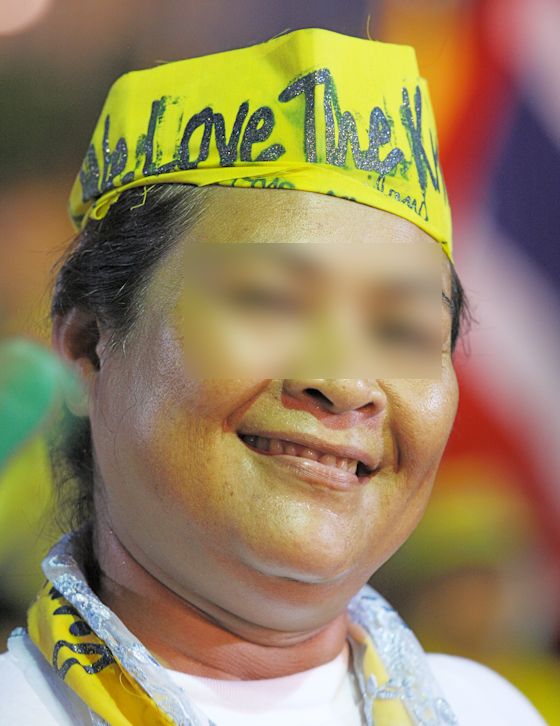
Abb.: Gelbhemd (เสื้อเหลือง):
"We love the King", 2008-08-29
[Bildquelle: Danc222 / Wikimedia. -- GNU FDLIcense]
2008-08-27


Bericht von US-Botschafter Eric G. John an das State Department in Washington DC:
"SUBJECT: KING BHUMIBOL WARNS OF RUIN IN THE ABSENCE OF
UNITY, BUT IS ANYONE LISTENING?[...]
1. (C) On August 21, 81-year-old Thai King Bhumibol
carefully dipped his feet into Thailand's boiling political
waters, warning the Thai people that, among other things,
"without cooperation, the country may actually fall to ruin."
The comments, delivered during an audience with civil
servants and broadcast on all the evening TV news shows, came
just four days after some 20,000 "red-shirt" sympathizers of
former Prime Minister Thaksin Shinawatra [ทักษิณ
ชินวัตร, 1949 - ] had assembled across
from the Grand Palace [พระบรมมหาราชวัง]
in a show of support for a signature
gathering petition campaign seeking royal amnesty for Thaksin
(REF A). The King's comments were widely interpreted as an
admonishment to the redshirts to curtail anti-government
activities, though the actual word usage closely parallels
his only other two politically-related messages in the past
three years, in April 2006 and December 2007. Throughout his
60 plus years on the throne, King Bhumibol has assiduously
steered clear of an overtly political role and delivered only
the occasional politically-related speech, making this recent
foray all the more noteworthy.[...] A MESSAGE FOR THE REDSHIRTS, OR THE NATION?4. (SBU) King Bhumibol's August 21 "the country may fall into ruin" line was embedded in comments about the need for cooperation to civil servants presenting him with an international patent for his rain-making technology. The King linked the importance of cooperation to the country's developmental efforts, stating in part: "the country will take a step towards development if there is cooperation among people and government officials with neither side trying to impose themselves upon the other." The King went on to say: "I assure you that those who are knowledgeable and determined will bring true prosperity to the country if they work together. Without their cooperation, the country may fall into ruin. So everyone must help and with good determination the country will make progress and not fall into ruin." 5. (C) With the King's appeal to "work together" in order to avoid allowing the country to "fall into ruin," the Thai media quickly connected the dots and characterized the speech as an attempt to convince the redshirt movement to stop its damaging protests. Human Rights Watch Consultant Sunai Phasuk [สุณัย ผาสุข] agreed, telling us August 26 that he also viewed it as the King's last ditch effort to initiate a political reconciliation dialogue.
A RELATIVELY RARE FORAY INTO POLITICAL ISSUES 6. (C) Such pronouncements are relatively rare, particularly in the last decade. The speech represented the King's first political comments since December 2007, when he used very similar phraseology during his annual birthday speech calling for unity to avoid national ruin. Since 2001, he has only rarely tackled political issues in the public domain, generally during his annual birthday message. In 2001, his "double standards" speech was interpreted as criticism of the high-handed approach of then-PM Thaksin Shinawatra; in 2003, his "accountability" speech demanded a review of the more than 1000 murders of Thai citizens during Thaksin's War on Drugs; in 2005, his "criticize me" speech rejected an interpretation of lese majeste which prevented any critical commentary about the monarch or monarchy; in April 2006, his "do your duty" address to judges was interpreted as a charge to annul the April 2006 election; and in late 2008, two trusted proxies gave public comments that were intended to tell the People's Alliance for Democracy [พันธมิตรประชาชนเพื่อประชาธิปไตย] to cease their protests/occupation of Bangkok's airports. With the exception of the April 2006 speech, his generally thoughtful advice has been widely ignored. DOUBLE STANDARDS (2001) - IGNORED 7. (C) Consider his December 4, 2001, birthday speech, for instance, delivered before local dignitaries including then PM Thaksin. The King ominously warned of the perils of mixing "ego and double standards," stating that "those who have double standards will keep stumbling because one leg tends to get in the way of the other." The speech appeared to be at least in part a warning shot fired in Thaksin's direction as he consolidated executive power and bullied domestic opponents, yet nothing changed in subsequent months. Revealingly, when outgoing U.S. Ambassador Richard Hecklinger [1943 - ] complimented the King on his speech during a farewell audience two weeks later, the King demurred, comparing himself to the proverbial Buddhist abbot giving a well-intentioned but largely ignored Sunday sermon at the village wat. All the villagers think the admonitions apply to everyone but themselves; once they file out of the wat, he said, nothing changes. "I feel like that abbot," he told the Ambassador.
DO YOUR DUTY (2006) - HEEDED UNITY (2007-9) - NOT YET 10. (C) During his December 4, 2007 birthday address (on the occasion of his 80th birthday), the King issued an appeal for national unity, warning that without unity, the nation would face disaster. The King said: "People have complained that Thailand is in trouble, so we must be careful. Foreign analysts have also made dire predictions, so we must be united. If not, the ship will sink." Despite his speech, Thailand's political and social divide continued, though elections later that month returned an elected government to office shortly thereafter. 11. (C) Most recently, in late October 2008, the King directed two of his proxies to carry his water for him, Sumet Tantivejakul [สุเมธ ตัน
13. (C) For better or for worse, throughout his 62 year reign, King Bhumibol has traditionally tried to keep his powder dry when it comes to politics. His decision to avoid offering a public commentary on the September 2006 coup or the airport seizures in November 2008 underscores this reality, as much as both his supporters and his detractors try to spin a larger role with more power and influence for him. The fact that the King has decided to issue another appeal for unity right now speaks to the sense of urgency he may feel in his twilight, with his mobility and even ability to speak coherently increasingly limited. If recent history is any indication, it seems unlikely this most recent commentary will prove to have much lasting impact on Thailand's political and social divide. JOHN" [Quelle: http://wikileaks.org/cable/2009/08/09BANGKOK2167.html. -- Zugriff am 2013-02-20] |
2008-09

Die australische "Christian singer, songwriter, artist, humanitarian and environmental activist" Kelly Newton-Wordsworth (เคลลี่ นิวตัน) tritt bei einer Gelbhemden-Demonstration beim Government House mit dem Lied
Long live the King of Thailand
unter tosendem Applaus der Gelbhemden-Anhänger auf.
Der Song auf Spotify:
URI: spotify:track:5ELxVtOixsh7FOes6wZS7e
URL: https://open.spotify.com/track/5ELxVtOixsh7FOes6wZS7e
Abb.: CD-Hülle
"In 2007 Kelly moved to be based in Bangkok, and wrote 'Long live the King of Thailand', along with many other songs about her experiences and love for the people of Thailand. She is the only foreigner in the history of Thailand to write and perform a song for His Majesty, and then to perform at his 80th birthday celebrations. She received a personal gift of thanks from King Bhumipol. She recorded 'Long live the King of Thailand', put it on CD and Hello magazine sold out over 100,000 copies of the song in their magazine in a day." [Quelle: http://www.kellynewtonwordsworth.com/#!bio. -- Zugriff am 2016-01-17]
Lyrics: "Ever since I saw the face.. of this man.
The King of Thailand, The King of Siam.
I felt in love with his soul loves this land.
It's in his eyes, it's in his heart, it's in his hands.
He is the husband, the father and the king.
A great photographer, musician so many things.
The way he lives his life is something to be hold.
His grace, his wisdom, an example to the world.Long live The King of Thailand.
Long live The King of Siam.
Long live The King of Thailand.
Long live The King of Siam.And in the time when the rain came flooding down.
He saved the city with the building of the dam.
In time of conflicts, he has always been there.
To stop the fighting just like the father who really cares.Long live The King of Thailand.
Long live The King of Siam.
Long live The King of Thailand.
Long live The King of Siam.I'm watching wonder at the things he understands.
His love for his people, his love for this land.
His working a great culture, he is one of a kind.
His vision for the future way ahead of the time.Long live The King of Thailand.
Long live The King of Siam.
Long live The King of Thailand.
Long live The King of Siam.Long live The King.
Long live The King of Siam.
Long live The King.
Long live The King of Thailand.
Long live The King."[Quelle: https://www.youtube.com/watch?v=G7YQGRnv_eU. -- Zugriff am 2016-01-17. -- Fair use]
2008-09
Australier schenken dem Elephant Refuge & Education Center (EREC, ศูนย์ศึกษาและช่วยเหลือช้าง) in Tha Yang (ท่ายาง), Provinz Phetchaburi (เพชรบุรี), 40.000 m² Land, damit die Elefanten einen artgemäßen Lebensraum haben. Das EREC "gives refuge to domesticated elephants refuge and a sustainable existence to elephants forced to work on the streets as begging tools and tourist attractions, that have been roaming the streets of Bangkok and other cities."
Abb.: Lage von Tha Yang (ท่ายาง)
[Bildquelle: OpenStreetMap. -- Creative Commons Lizenz (Namensnennung, share alike)]
2008-09-02
Thaksin Shinawatra verkauft seine Anteile am Fußballklub Manchester City an ein Investmentunternehmen aus dem Scheichtum Abu Dhabi ( أبو ظبي) für ca. 185 Millionen Euro."
2008-09-02
Blutige Zusammenstöße zwischen Demonstranten der People's Alliance for Democracy (PAD, พันธมิตรประชาชนเพื่อประชาธิปไตย) und der United Front for Democracy against Dictatorship (UDD, แนวร่วมประชาธิปไตยต่อต้านเผด็จการแห่งชาติ; นปช.). Mindestens ein Toter (Narongsak Krobtaisong - ณรงค์ศักดิ์ กรอบไธสง, 55, von einem PAD-Mob totgeschlagen), Dutzende von Verletzten. Ministerpräsident Samak erklärt Notstandsrecht und befiehlt der Armee, das Government House (ทำเนียบรัฐบาล) von PAD-Demonstranten zu räumen.
2008-09-02

Das Ministerium für Information und Kommunikation (ICT) hat 1200 Webseiten entdeckt, die gegen den Computer Crime Act (unter der Militärregierung erlassen) verstoßen. Von diesen beleidigen 344 die Monarchie. Das Ministerium befiehlt den Internetprovidern, diese Webseiten umgehend zu sperren. Gerichtsverfahren werden eingeleitet.
Das Gericht ordnet an, ca. 400 Webseiten, davon 344 mit Majestätsbeleidigung, zu sperren. Zwei der Webseiten werden wegen Verletzung der Religion, sieben wegen Obszönität verboten.
2008-09-09
Das Verfassungsgericht (ศาลรัฐธรรมนูญ) setzt Ministerpräsident Samak ab, da er entgegen der Verfassung in zwei Koch-Shows im kommerziellen Fernsehen aufgetreten ist. Er habe damit gegen Artikel 267 der Verfassung verstoßen, der Ministern verbietet, Zahlungen von privaten Firmen anzunehmen. Samak hatte die Show "Tasting and Grumbling" sieben Jahre lang geleitet bevor er ins Amt kam und danach noch zweimal. Nachfolger von Samak wird der Schwager von Thaksin Shinawatra, Somchai Wongsawat (สมชาย วงศ์สวัสดิ์ , 1947 - ).
Abb.: Anti-Samak-Poster, Government House (ทำเนียบรัฐบาล), 2008-08-30
[Bildquelle: Adaptor-Plug. -- http://www.flickr.com/photos/11401580@N03/2815764935/. -- Zugriff am 2012-01-12. -- Creative Commons Lizenz (Namensnennung, keine kommerzielle Nutzung)]
"The Senate President lodged a complaint with the Constitutional Court of Thailand (ConCourt, ศาลรัฐธรรมนูญ) on 2 June 2008, and the Election Commission of Thailand (ECT, คณะกรรมการการเลือกตั้ง) submitted a similar complaint 29 July 2008. The complaints requested the ConCourt to decide whether the premiership of Samak Sundaravej (สมัคร สุนทรเวช) is terminated upon Section 91, Section 182 Paragraph One (7) and Section 267 of the Constitution of the Kingdom of Thailand (2007, รัฐธรรมนูญแห่งราชอาณาจักรไทย
พุทธศักราช 2550).On 9 September 2008, 15.30 hours, the ConCourt with Justice Chat Chonlaworn sitting as the President rendered its decision as follows:
1. The essence of the first complaint (Senators' Complaint) could be summarised as follows: as Sundaravej was a holder of the political position as a Prime Minister, he was under the subject of Section 267 of the Constitution of the Kingdom of Thailand (2007) prohibiting the Prime Minister and Ministers from having any position in a partnership, a company or an organisation carrying out business with a view to sharing profits or incomes or being an employee of any person. However, Sundaravej, who acknowledged the purpose of such Section so well, still worked for the Face Media Co., Ltd. as emcee of two cookery shows, Chim Pai Bon Pai (ชิมไปบ่นไป, Tasting and Grumbling) and Yok Khayong Hok Mong Chao (ยกโขยงหกโมงเช้า, All Set at 6 am), and ceased from such works just when the ECT received a complaint concerning the case. Therefore the Senators exercised their right under Section 91 requesting the President of the Senate to submit their complaint to the ConCourt to make a decision as said.
2. The essence of the second complaint (ECT's Complaint) could be summarised as follows: On 17 April 2008, Senator Ruangkrai Leekijwattana lodged with the ECT a complaint that Sundaravej, pending his premiership, worked for Face Media Co., Ltd. which was a private company having commercial purpose. This was in breach of Section 267 of the Constitution of the Kingdom of Thailand (2007) and led to the termination of his premiership as of the date the said prohibited act was performed. The ECT has appointed an inquisitorial panel to look into the case and discovered that it was a prima facie case, so it unanimously resolved to forward the case to the ConCourt to make a decision as said.
3. Sundaravej, after having received a quo warranto, represented to the accusation through submitting the letters dated 30 June, 14 and 25 August 2008 to the ConCourt, stated that:
- 3.1) he received no remuneration for being the emcee of both cookery TV programmes, but only 5,000 Baht as travelling costs.
- 3.2) he held no interests, shares or positions in the Face Media Co., Ltd. as well as received no salaries or other benefits from the said company.
- 3.3) as being the emcee of both programmes, he has been invited, not employed. This meant he was not an employee under the definition prescribed in the Labour Protection Act, BE 2541 (1998) and the Announcement of the Ministry of Interior Re: Labour Protection (No. 111).
- 3.4) as he has been seen on the said programmes after having assumed the premiership, those shows were pre-recorded for months and he has already ceased from being the emcee prior to having been in office.
4. The Constitutional Court considered that:
- 4.1) The spirit of this Constitution is to prevent against the conflict of interest which may cause the condition of misconduct—the condition compelled to choose between self-interest and public interest—to be occurred. Should a holder of the position offered by the public be mindful on his own interest beyond the public interest, he could conduct an abuse of his power. Therefore, the accomplishment of the spirit of the Constitution is not only to construct the term "employee" through the definition under the Civil and Commercial Code, the law on labour protection or the law on taxation, as each law contains different spirit and purposes of enforcement; as well as the said laws are at the lower class than the Constitution. The term "employee" under the Constitution holds broader meaning than that of any other laws, and should be interpreted in a general path. For which the Official Dictionary of Thai Words by the Royal Institute (ราชบัณฑิตยสถาน), 1999 Version defined the term "employee" that "a person who works for any job; a person who agrees to work for other person, irrespective of how he is called."
- 4.2) Sundaravej gave an interview in the Sakul Thai Magazine vol 47 (Tuesday 23 October 2001) pp 37 that he was monthly paid 80,000 Baht for being the emcee of the said programmes. And pursuant to the letter Sundaravej replied to the Face Media Co., Ltd. on 25 December 2007 that he will do this work [being the emcee] without receiving anything as usual, this kind of letter has never been made by Sundaravej prior to being enquired by the ECT. As well as the affirmation of Sundaravej that he had received only the travelling costs from the Company was in contrary to the witnesses' testimonies and to the taxation evidences showing that what Sundaravej previously received was the payments for working, not only the travelling costs as he represented.
- 4.3) As Sundaravej defended himself that the programmes aired after he was in office and were pre-recorded months before he came in; however, in one of the said programmes Sundaravej stated that: "...Came again those people who wanted to find a person to replace Mr Samak as boisterously appeared on the news. Yes, that group, the group which delivered an ultimatum to Mr Samak to resign. They newly discovered that the programme 'Tasting and Grumbling' was in breach of law. Because, as I assumed the premiership...and you know, they said that it [the Constitution] told that I was unable to be a temporary employee, permanent employee...But, I have to fill my words into your ears that after having been in the premiership for three months, I am engaging in such work still. Because I have got some counsels from the top legal advisers that..." This was a defence contrary per se.
- 4.4) These were the clear traces of guilt. According to the conclusion of fact, it could be concluded that Sundaravej was an employee to the said Company. Moreover, three Constitutional judges deemed that Sundaravej portrait and the picture of rose apple mocking Sundaravej’s nose using as a logo of the "Tasting and Grumbling" programme as well the status of being an emcee and the use of the name "Tasting and Grumbling", a popular quote of Sundaravej, were the acts of engaging in a joint affair with a commercial purpose which were in breach of Section 267 of the Constitution. And another six judges deemed that it was not necessary to further decide as to what position Sundaravej held in the said Company, as he was manifestly breached the law.
5. Therefore, the ConCourt, by the unanimous resolution, held that Sundaravej has performed the acts in breach of Section 267 of the Constitution of the Kingdom of Thailand (2007) which individually led to the termination of his premiership in accordance with Section 182 Paragraph One (7) of which, and called forth the vacating from office of the entire Council of Ministers under Section 180 Paragraph One (1). However, as the premiership has individually been terminated, all Ministers other than Sundaravej could remain in office as a caretaker government and continuing their functions until the new Council of Ministers is sworn in."
[Quelle: http://en.wikipedia.org/wiki/Samak_Sundaravej#Court_decision. -- Zugriff am 2012-01-12]
2008-09-15


Der Streik bei Triumph International (Thailand) wird nach 46 Tagen beendet.
Abb.: Lage von Bang Phli (บางพลี)
[Bildquelle: OpenStreetMap. -- Creative Commons Lizenz (Namensnennung, share alike)]
"Nach 46 Tagen Arbeitsniederlegung, beendeten Verhandlungen zwischen Body Fashion (Thailand) Co. Ltd., einem Produzenten von Damenunterwäsche und Bademode, ansässig in Bang Phli [บางพลี] Industrial Estate, und der Triumph International (Thailand) Gewerkschaft den Streit, indem sich beide Parteien verpflichteten, die Entscheidung des Arbeitsgerichtes (in einem Berufungsverfahren) anzuerkennen. Der Arbeitgeber wird keinen Einspruch gegen die Petition einlegen, die Ms. Jitra Kotchadet [จิตรา คชเดช] bei Gericht eingereicht hatte, um das Verfahren neu aufzurollen.
Es wird am 23. September darüber entschieden werden, ob das Gericht den Fall zur Wiederaufnahme annehmen wird. ....
Die Firma wird auch ein tägliches Gehalt von 363 Baht (ca. 7 Euro), vom 13. September an bezahlen, bis zu dem Tag, an dem das Gericht darüber entscheidet, das Verfahren wieder aufzurollen, und das ursprüngliche Urteil zu verwerfen.
Die Firma hat bestätigt, keine Disziplinarmassnahmen zu verhängen, die auf den Regeln der Firma oder den gesetzlichen Bestimmungen basierten, um die Arbeitsverträge der Arbeiter, die in die Arbeitsniederlegung verwickelt waren, zu beenden. Die Firma ist bereit, vom 13. September an, das normale Gehalt in Höhe von 5.200 Baht (ca. 104 Euro) monatlich, für Arbeiter, die an der Arbeitsniederlegung teilgenommen hatten, zu zahlen.
Entsprechend der Vereinbarung, werden Arbeiter, die keine Näherinnen sind, insbesondere die Zuschneider, Lagerarbeiter, Verpackungsmitarbeiter ..... am 15. September wieder zur Arbeit erscheinen. Die Näherinnen werden spätestens am 26. September zurück erwartet.
Ms. Jitra sagte, dass die Gewerkschaft ihre 46-tägige Arbeitsniederlegung noch an diesem Abend beenden würden, und alle ab dem 15. September wieder zur Arbeit erscheinen würden. Sie sagte, dass die Arbeitsniederlegung, zur Verteidigung der Gewerkschaft ein Sieg gewesen wäre. Keiner der Arbeiter hätte gezögert zu erklären, dass, was auch immer passieren würde, man bereit wäre, die Gewerkschaft zu verteidigen. Auch wenn die Arbeiter auf Grund der ökonomischen Zwänge nicht das gesteckte Ziel erreicht hätten, wären sie doch gestärkt durch diese Erfahrung und wüssten, wie sie sich vorbereiten müssten, um für zukünftigen Situationen bereit zu sein.
Quelle: Prachatai"[Quelle: http://www.schoenes-thailand.de/startseite/wirtschaft/2810-46-tage-arbeitskampf-bei-triumph-beendet. -- Zugriff am 2012-10-27]
2008-09-18 - 2008-12-02
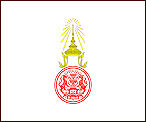
Somchai Wongsawat (สมชาย วงศ์สวัสดิ์, 1947 - ) ist Ministerpräsident (นายกรัฐมนตรีแห่งราชอาณาจักรไทย - Prime Minister)
Abb.: สมชาย วงศ์สวัสดิ์ - Somchai Wongsawat / von Murray Webb (1947 - ), 2008
[Bildquelle: Somchai Wongsawat. 5 November, 2008.. Webb, Murray, 1947- :[Digital caricatures published from 29 July 2005 onwards (2006, 2007, 2008). Includes a selection of digital caricatures published from 2002 and up to July 2005.]. Ref: DCDL-0007995. Alexander Turnbull Library, Wellington, New Zealand. http://natlib.govt.nz/records/22435580. -- "You can copy this item for personal use, share it, and post it on a blog or website. It cannot be used commercially without permission"]
"Somchai Wongsawat (Thai: สมชาย วงศ์สวัสดิ์, Aussprache: [sǒmʨʰaːj woŋsàwát]; * 31. August 1947 in der Provinz Nakhon Si Thammarat, Süd-Thailand) war vom 17. September 2008 bis zum 2. Dezember 2008 Premierminister von Thailand. Somchai Wongsawat ist verheiratet mit Yaowapha Wongsawat (Thai: เยาวภา วงศ์สวัสดิ์), einer Schwester von Thaksin Shinawatra.
Leben und Karriere
JuristIm Jahr 1970 schloss Somchai Wongsawat sein Studium an der Thammasat-Universität in Bangkok mit einem Bachelor of Laws ab. Im Jahr 1973 wurde er Rechtsanwalt. Im Jahre 1975 wurde er zum Richter ernannt. Im Jahr 1986 ernannte man Somchai zum Vorsitzenden Richter der thailändischen Provinz Phangnga. Nach verschiedenen Stationen als Richter, dann Vorsitzender Richter an verschiedenen Provinzgerichten ist er erst Richter, schließlich im Jahr 1997 dann Vorsitzender Richter eines Berufungsgerichtes geworden. [1]
Politische Karriere1999 bis 2006 war er Staatssekretär im Thailändischen Justizministerium, von März bis September 2006 im Arbeitsministerium. Im Jahr 2002 erwarb er den Master in öffentlicher Verwaltung am Thailändischen Nationalen Institut für wirtschaftliche Entwicklung. Seit 2007 ist Somchai stellvertretender Vorsitzender der Phak Palang Prachachon (PPP, etwa: „Volksmachtpartei“) und Mitglied des Parlaments.
Im Februar 2008 wurde Somchai Erziehungsminister und stellvertretender Premierminister im Kabinett von Samak Sundaravej. In letzterer Eigenschaft wurde er Anfang September 2008 zunächst kommissarischer Premier, nachdem Samak durch ein Urteil des Verfassungsgerichts des Amtes enthoben wurde. Am 17. September wurde Somchai vom thailändischen Parlament zum neuen Premierminister gewählt.[2] Am 2. Dezember 2008 ordnete das Verfassungsgericht jedoch wegen Wahlbetrugs die Auflösung der regierenden Partei Phak Palang Prachachon an und untersagte Somchai und weiteren führenden PPP-Politikern eine politische Tätigkeit in den kommenden fünf Jahren.
Einzelnachweise
- ↑ http://www.moe.go.th/English/admin_MOE/somchai.pdf
- ↑ Kurier: Thailand: Somchai neuer Premier vom 17. September 2008."
[Quelle: http://de.wikipedia.org/wiki/Somchai_Wongsawat. -- Zugriff am 2011-10-06]
2008-09-18 - 2008-12-02
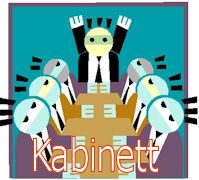
62. Kabinett: Somchai (สมชาย)
2008-09-18 - 2008-11-12
TV Channel 3 (สถานีวิทยุโทรทัศน์ไทยทีวีสีช่อง 3 อ.ส.ม.ท.) sendet die 15 Folgen des Lakorn (ละคร - Soap Opera) Sapai Look Tung (สะใภ้ลูกทุ่ง).
Abb.: Plakat
[Bildquelle: Wikipedia. -- Fair use]
"Sapai Look Tung (Thai:สะใภ้ลูกทุ่ง - which means Country Daughter-in-Law) is a Thai Romance Comedy Lakorn, produced by Channel 3, a famous Thai television channel. The lakorn starring by Mart Krissada ("มาร์ท" กฤษฎา พรเวโรจน์, 1977 - ) and Janie Tienposuwan (เจนี่ เทียนโพธิ์สุวรรณ, 1981 - ) as the leading roles as well as notable supporting cast includes: Ace Worrarit Waijeiranai, Vicky Sunisa Jett (วิกกี้ สุนิสา เจทท์, 1981 - ), and “Job” Nithi Samutkojorn ("จ็อบ" นิธิ สมุทรโคจร, 1974 - )[1]. Summary
It begins with Artee, being on a date with one of his women, and on his way to the restroom, he sees Mui in the women's restroom. He's so captivated by her beauty that he pretends to bump into her, so that he can get her number. He goes back to his table, while Mui realizes that he has her phone number. So she interrupts his date to expose him for the player that he is. Their paths cross again when Mui's co-worker invites her along on her blind date. The co-worker's blind date turns out to be Artee's friend. When they arrive, Mui's co-worker has left the table, leaving Mui to sit alone. Artee's friend mistakes Mui for his blind date, he has Artee go check her out, and both Mui and Artee are shocked to see each other...Artee insults her while the two friends who are each other's true blind dates meet and insult each other too...so it's all a great mix-up. [2]
ReceptionSapai Look Tung was thai lakorn about this true soulmates that hates each other at first and they pretend to get marry so that jeny can get revenge for her older sister but she never told anyone about that. they kept doing that until one day they found out that they reallyty love each other. pre'ek misunderstood thhat nang'ek and her friend doctor( her olders sister's secret crusher) was secretely dating and raped her because they were arguing and he got mad at her. oh my gosh do you know how sad that was that when he beg her for forgiveness and she poor water on his head and then walked away from him."
[Quelle: http://en.wikipedia.org/wiki/Sapai_Look_Tung. -- Zugriff am 2012-03-06]
2008-09-23
Beim Bangkok Film Festival darf der japanische Film "Children of the Dark" (『闇の子供たち』) von Junji Sakamoto (阪本 順治, 1957 - ) nicht gezeigt werden. Der Film handelt von Kinderprostitution und Organhandel in Thailand. Er beruht auf einem Roman von Yan Sok-il (양석일 / 梁石日, 1936 - ).
Abb.: DVD-Titel
[Fair use]
2008-09-24

Tarō Asō (麻生 太郎, 1940 - ) wird Ministerpräsident Japans.
Abb.: Tarō Asō (麻生 太郎), 2009
[Bildquelle: World Economic Forum swiss-image.ch / Photo by Sebastian Derungs. -- http://www.flickr.com/photos/15237218@N00/3488069509/. -- Zugriff am 2012-01-20. -- Creative Commons Lizenz (Namensnennung, share alike)]
2008-09-26
Zentralgericht für Jugend und Familie verurteilt eine Frau wegen Ehebruch zur Zahlung von 2 Mio. Baht + 7% Zinsen an die Frau eines Mannes, mit dem sie ein sexuelles Verhältnis hatte.
2008-09-27
Der Journalist Jaruek Rangcharoen (จารึก รังเจริญ, 46) wird in der Provinz Suphanburi (สุพรรณบุรี) mit mehreren Kopfschüssen ermordet. Er hatte in Matichon (มติชน) über Korruption in der örtlichen Verwaltung berichtet.
Abb.: Lage der Provinz Suphanburi (สุพรรณบุรี)
[Bildquelle: OpenStreetMap. -- Creative Commons Lizenz (Namensnennung, share alike)]
2008-09-29
Abb.: "Royal Thai Police's truck on Luk Luang road near Krung Kasem canal. This truck brought policemen to attack the PAD protesters in the Thai Government House at gate 7 on Friday Sep 29, and was left in the area."
[Bildquelle: 2T / Wikimedia. -- GNU FDLicense]
2008-10-01
Abb.: Nawarat Pongpaiboon (เนาวรัตน์ พงษ์ไพบูลย์, 1940 - ) spielt Flöte und liest Gedichte bei einer Gelbhemden-Party (เสื้อเหลือง), Leadership School (โรงเรียนผู้นำ), Kanchanaburi (กาญจนบุรี), 2008-10-01
[Bildquelle: 2T / Wikimedia. -- GNU FDLicense]
Abb.: Lage von Kanchanaburi (กาญจนบุรี)
[Bildquelle: OpenStreetMap. -- Creative Commons Lizenz (Namensnennung, share alike)]
2008-10-01
Es erscheint das Video-game ProjectONE (โปรเจควัน - später: Asura - อสุรา). Es wurde von der thailändischen Firma Debuz entwickelt.
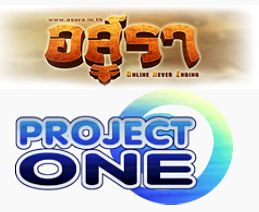
Abb.: ®Logos
[Bildquelle: Wikipedia]
2008-10-03

Phu Ma Khua (ภูมะเขือ): Bewaffneter Zwischenfall mit Kambodscha wegen Prasat Preah Vihear (ប្រាសាទព្រះវិហារ). Zwei Thai Ranger werden verletzt. Der kambodschanische Ministerpräsident Hun Sen (ហ៊ុន សែន, 1951 - ):
"Thai troops must stop trespassing on Cambodian land; the contested territory is now a life-and-death battle zone." [Zitat: Pavin Chachavalpongpun [ปวิน ชัชวาลพงศ์พันธ์]: From marketplace back to battlefield. -- In: "Good coup" gone bad : Thailand's political developments since Thaksin's downfall / ed by Pavin Chachavalpongpun [ปวิน ชัชวาลพงศ์พันธ์]. -- Singapore : Institute of Southeast Asian Studies, 2014. -- 290 S. ; 23 cm. -- ISBN 9789814459600. -- Konferenzband zu: Five years after the military coup : Thailand's political developments since Thaksin's downfall. -- Singapore 2011-09-19. -- S. 261]
2008-10-03

Ein Rettungspaket für die amerikanischen Banken kann die Finanzkrise nicht stoppen.
2008-10-04 - 2008-11-07
BBTV Channel 7 (สถานีโทรทัศน์สีกองทัพบกช่อง 7) sendet die 15 Folgen des Lakorn (ละคร - Soap Opera) Poot Mae Nam Khong (ภูตแม่น้ำโขง).
Abb.: Screenshot
[Bildquelle: Wikipedia. -- Fair use]
"Poot Mae Nam Khong (Thai: ภูตแม่น้ำโขง, RTGS: Phut Mae Nam Khong, literally The Spirit of Mekong River ) is a Thai Horror Superstition Lakorn, remade from 1990 lakorn of the same name. The lakorn starring by Weir Sukollawat ("เวียร์" ศุกลวัฒน์ คณารศ, 1985 - ) and Jui Warattaya ("จุ๋ย" วรัทยา นิลคูหา, 1983 - ) as the Main roles and Morakot Aimee Kittisara (มรกต เอมมี่ กิตติสาระ, 1984 - ) as the ghost. Summary
Every River have its own soul as likes the revenge never dies.
A Girl, Bunpaun, found a sofly enormous egg at the bank of Mekong river which then, she ate and turned her into an evil, haunted human, possessed by the queen (or The mother) of Mekong river who had a long lost revenge for centuries and now, began to get it back from her love enemy.After the possession, Bunpaun, disappeared from the Island and came back with the dreadful spirit in side which unlocked the way for the evil queen to started killed the local young girls one by one in order create her power. No exorcist got rid of her, no technology destroyed her, only the true love of Bunpaun and Dr.Ake was the ones to break to her revengeful heart......
ReceptionPoot Mae Nam Khong received well result from the viewer despite of disappoting in guess. The Lakorn became one of Rating hits for Ch7 during October 6–12 refer to its Second week of airing, The lakorn received 13 rating from 6.73 million people watching ranked number #3 behind another 2 lakorn starring by Pancakes.[1]
Now, The Lakorn ranked one of Ch7’s hit makers for the second half of the year along with Silamanee (ศิลามณี) and Muay Inter. It reported that after the lakorn, the main actress,Jui Warattaya, become popular again after absent from screen for long time.[2]"
[Quelle: http://en.wikipedia.org/wiki/Poot_Mae_Nam_Khong. -- Zugriff am 2012-02-06]
2008-10-05

Wahl des Gouverneurs von Bangkok (ผู้ว่าราชการกรุงเทพมหานคร). Mit 46% der abgegebenen Stimmen wird wiedergewählt: Apirak Kosayodhin (อภิรักษ์ โกษะโยธิน, 1961 - ), Kandidat der Democrat Party (พรรคประชาธิปัตย์).
Abb.: Apirak Kosayodhin (อภิรักษ์ โกษะโยธิน) im Wahlkampf
[Bildquelle: Nogia123 / Wikipedia. -- GNU FDLicense]
2008-10-06/10
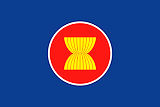
Beim ASEAN-Ministertreffen in Hanoi erhält Bangkok den Green and Clean Land Award. Begründet wird die Auszeichnung damit, dass Bangkok über ausreichende Ressourcen des Umweltmanagements verfügt, und vor allem weil es in Bangkok viele Grünflächen gibt.
2008-10-07
Die Polizei versucht, die Umgebung des Government House (ทำเนียบรัฐบาล) und des Parlaments (อาคารรัฐสภาไทย) von PAD-Demonstranten zu räumen. Die Demonstranten werden von Medien-Mogul Sonthi Limthongkul (สนธิ ลิ้มทองกุล / 林明達) und Moral-Pächter Chamlong Srimuang (จำลอง ศรีเมือง / 盧金河) angeführt. Ergebnis: 2 Tote, 300 Verletzte.
Abb.: Lage des Parlaments (อาคารรัฐสภาไทย)
[Bildquelle: OpenStreetMap. -- Creative Commons Lizenz (Namensnennung, share alike)]
Abb.: PAD-"Ordnungskräfte" vor dem Parlament, 2008-10-07
[Bildquelle: Adaptor-Plug. -- http://www.flickr.com/photos/11401580@N03/2925666477/. -- Zugriff am 2012-01-12. -- Creative Commons Lizenz (Namensnennung, keine kommerzielle Nutzung)]
Abb.: Karikatur der Gelbhemden (เสื้อเหลือง) auf Thaksin Shinawatra (ทักษิณ ชินวัตร, 1949 - ), Bangkok, 2008-10-07
[Bildquelle: Adaptor-Plug. --http://www.flickr.com/photos/11401580@N03/2924250648/. -- Zugriff am 2012-10-18. -- Creative Commons Lizenz (Namensnennung, keine kommerzielle Nutzung)]
Abb.: Nach der Demonstration, 2008-10-07
"The water bottles in the street are empties after they have been flung at the exploding tear gas cannisters in an attempt to douse the gas. And also used by people to watch their faces, eyes and exposed arms from burns."
[Bildquelle: Adaptor-Plug. -- http://www.flickr.com/photos/11401580@N03/2920928495/. -- Zugriff am 2012-10-18. -- Creative Commons Lizenz (Namensnennung, keine kommerzielle Nutzung)]

Eine der Toten ist Angkhana Radapanyawut (อังคณา ระดับปัญญาวุฒิ, geb. 1980). An ihrer 2008-10-13 folgenden Kremation nehmen Königin Sirikit (สมเด็จพระนางเจ้าสิริกิติ์ พระบรมราชินีนาถ) und Prinzessin Chulabhorn (จุฬาภรณวลัยลักษณ์) teil. Dies wird als Unterstützung der Königin für die People's Alliance for Democracy (PAD, พันธมิตรประชาชนเพื่อประชาธิปไตย) gedeutet. Später werden viele Rothemden (เสื้อแดง) diesen Tag วันตาสว่างแห่งชาติ = "National Awakening Day" (wörtl. Tag der hellen Augen der Nation) nennen
ตาสว่าง = "helle Augen, desillusioniert" ist bei den Rothemden (เสื้อแดง) der Ausdruck dafür, dass die Augen aufgegangen sind über die wahre Rolle der Monarchie.
Abb.: Königin Sirikit (สมเด็จพระนางเจ้าสิริกิติ์ พระบรมราชินีนาถ) und Prinzessin Chulabhorn (จุฬาภรณวลัยลักษณ์) bei der Kremation von Angkhana Radapanyawut (อังคณา ระดับปัญญาวุฒิ)
[Bildquelle: th.Wikipedia. -- Fair use]Laut einem Reuters-Bericht von Chalathip Thirasoonthrakul sagt die Königin zum Vater der Getöteten, Jinda Radapanyawut (จินดา ระดับปัญญาวุฒิ):
""Her Majesty said my daughter was a good woman since she had helped the nation and preserved the monarchy," Jinda told reporters after a brief audience at the end of the Buddhist cremation. Tears streaked down his face as he spoke." [Quelle: http://in.reuters.com/article/2008/10/13/idINIndia-35930920081013. -- Zugriff am 2014-10-26. -- Fair use]

Bericht darüber des US-Charge d'Affaires, a.i. James F. Entwistle an das State Departement in Washington DC:
"3. (C) Queen Sirikit [สมเด็จพระนางเจ้าสิริกิติ์ พระบรมราชินีนาถ] publicly signaled strong support for the PAD [พันธมิตรประชาชนเพื่อประชาธิปไตย] on October 13, when she took the extraordinary step of presiding over the cremation ceremony of commoner Angkhana Radappanyawut [อังคณา ระดับปัญญาวุฒิ, geb. 1980], with Princess Chulabhorn [จุฬาภรณวลัยลักษณ์], Supreme Commander Songkitti Jakkabat [ทรงกิตติ จักกาบาตร์;, 1950 - ], Army Commander Anupong Paojinda [อนุพงษ์ เผ่าจินดา, 1949 - ], Privy Councilors, PAD leaders and opposition Democrat Party leaders in attendance. Angkhana was one of two anti-government protestors killed on October 7; the Queen almost never attends funerals of commoners unless they have rendered extraordinary services to the monarchy. Media outlets quoted Angkhana's father claiming that the Queen had told him his late daughter had supported the Thai nation and the monarchy."
[Quelle: http://wikileaks.org/cable/2008/10/08BANGKOK3080.html. -- Zugriff am 2013-02-17]
2008-10-09


Prinzessin Sirindhorn [มหาจักรีสิรินธร, 1955 - ] erklärt in Wallingford, Connecticut (USA), dass die PAD nur in ihrem eigenen Namen spricht, nicht in dem der Monarchie:
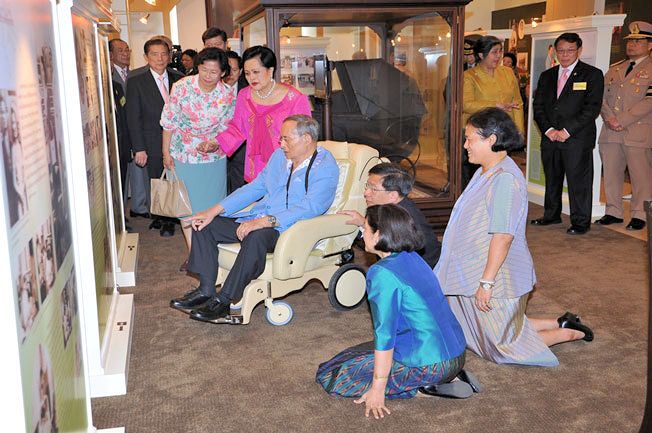
Abb.: König,
Königin und Prinzessin Sirindhorn (kniend)
[Bildquelle:
http://www.sirindhorn.net/index.en.php?Res=1&width=1920&Height=1080. --
Zugriff am 2013-02-10. -- Fair use]
"Associated Press
October 9, 2008WALLINGFORD, Conn. – The princess of Thailand said Thursday that she does not believe protests in her home country are being staged to benefit the monarchy.
Princess Maha Chakri Sirindhorn talked about the importance of public service Thursday at the Choate Rosemary Hall prep school in Wallingford. She later headed to the University of Pennsylvania for a U.S.-Thailand education discussion.
Her visit came amid the worst political violence in Thailand in more than a decade. Thousands of protesters have camped at the main government office complex to demand electoral changes and an end to corruption in Thai politics.
[...]
The princess was asked at a press conference following her talk whether she agreed with protesters who say they are acting on behalf of the monarchy.
“I don’t think so,” she replied. “They do things for themselves.”
Asked why the king has not spoken out, she said, “I don’t know because I haven’t asked him.”
[...]
“There are a lot of political problems,” the princess said. “I told my friends, colleagues just to do what is their duty.”"
[Quelle: http://seasian.wordpress.com/2008/10/21/hrh-princess-sirindhorn-comments-on-thai-politics/. -- Zugriff am 2013-02-20. -- Fair use]
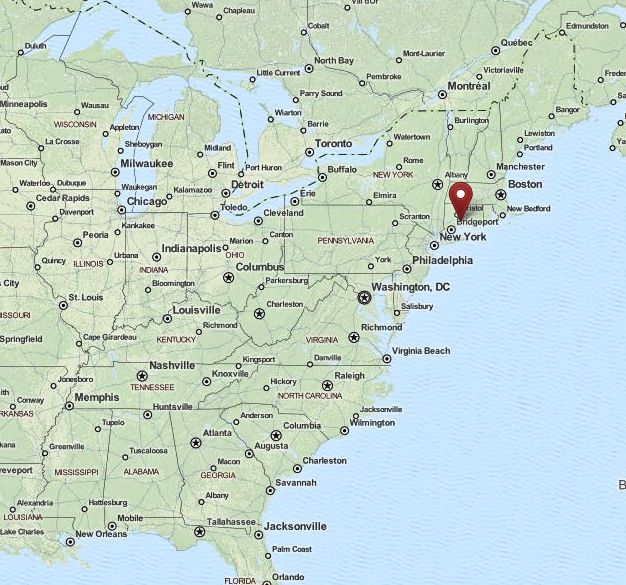
Abb.: Lage von
Wallingford, Conn.
[Bildquelle: OpenStreetMap. --
Creative
Commons Lizenz (Namensnennung, share alike)]
2008-10-11

NZZ: Frivole Proteststimmung in Bangkok : Komödienhafte Festnahme und Freilassung von PAD-Anführern.
"Die Anführer der PAD sind frivol und selbstbewusst geworden. Neun von ihnen haben sich am Freitagmorgen auf einem Polizeiposten in der Nähe ihres Hauptquartiers den Behörden gestellt. Sie sind sogleich gegen Kautionen von je 100 000 Baht (rund 3400 Franken) oder Garantieerklärungen von Senatoren auf freien Fuß gesetzt worden. Die komödienhafte Szene zeigt, wie hier anscheinend nach Belieben mit Gewalt und Verbrüderung gespielt wird. Sympathisanten der PAD gibt es offenbar überall, in der Justiz, im Militär, im Umfeld des Königs und sogar in der Regierung. Keine Verfolgung wegen Hochverrats
Die Aktion der PAD-Anführer, die zumindest für eine Aufweichung der Fronten zu sorgen scheint, steht im Zusammenhang mit einem Gerichtsurteil. Am Donnerstag hatte ein Appellationsgericht nämlich den schweren Vorwurf des Hochverrats und zwei weitere Anklagepunkte gegen die PAD-Köpfe weggewischt. Genau in dem Sinne notabene, wie es die neun, die sich am Freitag stellten, gefordert hatten. Diese hatten nämlich erklärt, sie würden sich den Behörden stellen und den leichteren Anklagen ins Auge sehen, wenn die schwerwiegenden Vorwürfe fallengelassen würden.
Ein weiteres Zeichen der «Entspannung»: Die beiden PAD-Veteranen, die vor einer Woche festgenommen wurden, nämlich Chamlong Srimuang (จำลอง ศรีเมือง, 1935 - ) und Chaiwat Sinsuwong (ไชยวัฒน์ สินสุวงศ์, 1949 - ), sind ebenfalls wieder auf freiem Fuss. Wie Volkshelden werden sie nun in dem zum Rebellionshauptquartier umfunktionierten Regierungsgebäude gefeiert. In Siegerpose zeigte der 73-jährige Chamlong, ein Ex- General und ehemaliger Bürgermeister von Bangkok, der jetzt einen asketischen Lebensstil predigt, seine Gefängniskleider."
[Quelle: NZZ Internationale Ausgabe. -- 2008-10-11. -- S. 4. -- Fair use]
Abb.: Chamlong Srimuang (จำลอง ศรีเมือง), 2008
[Bildquelle: Adptor-Plug. -- http://www.flickr.com/photos/11401580@N03/2595492568/. -- Zugriff am 2012-11-09. -- Creative Commons Lizenz (Namensnennung, keine kommerzielle Nutzung)]
Abb.: Chaiwat Sinsuwong (ไชยวัฒน์ สินสุวงศ์), 2008
[Bildquelle: 2T / th.Wikipedia. -- GNU FDLicense]
2008-10-12
"Grandpa" Yen Kaewmanee (ปู่ เย็น แก้วมณี, geb. 1900), der alte Mann des Petchaburi River (แม่น้ำเพชรบุรี), stirbt im Alter von 108 Jahren in seinem Boot. Er wird als jemand gefeiert, der nach der Genügsamkeitstheorie des Königs lebte.
Abb.: Lage von (เพชรบุรี)
[Bildquelle: OpenStreetMap. -- Creative Commons Lizenz (Namensnennung, share alike)]
Abb.: "Grandpa" Yen Kaewmanee (ปู่ เย็น แก้วมณี)
[Bildquelle: th.Wikipedia. -- Fair use]
"Yen Kaewmanee or Pu Yen (Grandpa Yen), Thai: ปู่เย็น was a famous centenarian who lived to an age of 108. The Thai-muslim man was known for his self-sufficient and economical way of living. His lifestyle embodied King Bhumibol Adulyadej's philosophy on self-sufficiency. The elderly man made his living fishing from the Phetchaburi River (แม่น้ำเพชรบุรี) in Phetchaburi, Thailand. He sold the fish to locals at inexpensive prices in exchange for other necessities. For many years until his death, he refused offers of free food, preferring to live in his small boat. Biography
In 1993, Pu Yen's wife passed away. That's when he decided to save on rent by living in a small houseboat in Phetchaburi River. He lived on one small fish each day. If there were extra fish caught, he would sell them at inexpensive prices to locals.
In 2004, Pu Yen became famous when a documentary “Khon Kon Khon” (คนค้นฅน) was made about his life and nationally televised. In addition, he was officially recognized by Queen Sirikit (สมเด็จพระนางเจ้าสิริกิติ์ พระบรมราชินีนาถ) and given a covered fiberglass boat on his 105th birthday.
Visitors who talked to him said that although he received many guests, he was always welcoming and cheerful to them. He maintained a positive attitude towards life and was a role model of self-sufficiency to many Thais.
Although Pu Yen lived in relative peace, he suffered a setback when thieves stole $2,060 in cash from his small boat.
Before his death, he lived a quiet life on his boat under the Lumyai (Longan) Bridge (สะพานลำใย) in Phetchaburi city. The place where he used to live is marked by a small landing with a small light bulb suspended from a tree.
After his death on October 12, 2008 from natural causes, he was buried in a local Phetchaburi mosque and the boat was donated to a local museum in the province.
Impact
Pu Yen's life and death highlighted the plight of many elderly people in Thailand without adequate medical care and attention. Following his death, Thailand's Health Minister Chalerm Yubamrung issued orders for special check-up facilities for the elderly which would shorten the waiting time for receiving health care. Also, the Health Department chief Narongsak Ankhasuwapala has suggested that a club for the elderly be made available in every tambon. Currently, there are over 4,000 registered centenarians in Thailand.
QuotationsPu Yen's view on self-sufficiency:
"Look at the shellfish…with no hands and no feet Yet they manage to survive… What about…people with hands and feet If they can’t survive…shouldn’t they be ashamed of the shellfish?""If there is food, then I eat…if there isn’t any, then I don’t I don’t ask for food from anybody else… It’s hard to find people who die from hunger… If they are not sick or unwell."His view on selling and buying:
"Don’t sell things at high prices…then the customers will have an easier time I sell things cheaply. Go ahead and take them. Buy enough so you will have a full pot of curry (food)."His view on charities:
"I can eat free food…but I’d rather not I don’t want to bother anybody…no thanks…I’d be too ashamed Vendors buy and sell things… They need to cook. They need to clean."His view on death:
"Life is like a bridge. There is up and there is down. There is high and there is low. In the end…there is death."[Quelle: http://en.wikipedia.org/wiki/Pu_Yen. -- Zugriff am 2012-01-12]
2008-10-13

Der SPIEGEL: "Revolution der Mittelklasse" : Der Machtkampf zwischen Regierung und Oppositionellen wird immer gewalttätiger und spaltet die Gesellschaft. Die Rebellen hoffen auf einen Militärputsch und das Ende der Demokratie.
"Eigentlich, so erwarten es Sondhis (สนธิ ลิ้มทองกุล / 林明達, 1947 - )Anhänger, könnte damit auch die ungeliebte Herrschaft der armen Leute aus dem Norden beendet und die alte Ordnung wiederhergestellt werden. Denn was derzeit auf den Straßen Bangkoks ausgetragen wird, ist auch ein Klassenkampf zwischen der alten Elite aus der Hauptstadt und den unterprivilegierten Massen aus dem Nordosten Thailands. Jenen armen Reisbauern und Tagelöhnern verdankte die Regierung nämlich ihre Mehrheit bei den letzten Wahlen. Thaksin Shinawatra (ทักษิณ ชินวัตร, 1949 - ), einst ein schillernder Telekom-Milliardär aus Chiang Mai, hatte diese Menschen für sich und seine Partei "Thai Rak Thai" (พรรคไทยรักไทย, Thais lieben Thais) gewonnen, indem er ihnen eine günstige Krankenversicherung versprach, Stipendien, Straßen und Schulen - und seine Versprechen sogar einlöste. Damals kippte die Macht im Land, die Demokratie machte es möglich. Plötzlich herrschte nicht mehr Bangkoks Oberschicht, sondern ein Emporkömmling, der auch noch der chinesischen Minderheit angehört."
[Quelle: Der Spiegel. -- 2008-10-13. -- S. 126. -- Fair use]
2008-10-14

Botschafter (Berufsdiplomat!) Kasit Piromya (กษิต ภิรมย์, 1944 - ) attackiert in einem Fernsehinterview den kambodschanischen Ministerpräsidenten Hun Sen (ហ៊ុន សែន, 1952 - ) als verrückt, Sklaven von Thaksin Shinawatra (ทักษิณ ชินวัตร, 1949 - ) und Gangster Südostasiens.
Abb.: Kasit Piromya (กษิต ภิรมย์), 2009
[Bildquelle:
"Kasit Piromya (Thai: กษิต ภิรมย์, RTGS: Kasit Phirom, Aussprache: [kàsìt pʰírom]) (* 15. Dezember 1944 in Thonburi (ธนบุรี), Bangkok) ist ein thailändischer Diplomat und Politiker (Demokratische Partei - พรรค ประชาธิปัตย์). Von 2008 bis 2011 war er Außenminister des Landes.BiografieStudien und diplomatische Laufbahn Nach dem Besuch des Christian College in Bangkok und des St. Joseph's College in Darjiling (দার্জিলিং, Indien) studierte er zunächst Rechtswissenschaften an der Chulalongkorn-Universität (จุฬาลงกรณ์มหาวิทยาลัย). Anschließend absolvierte er ein Postgraduiertenstudium an der School of Foreign Service der Georgetown University, das er 1968 mit einem Bachelor of Science (B.Sc.) in Internationalen Angelegenheiten abschloss. 1971 erwarb er darüber hinaus ein Diplom in Internationalen Beziehungen sowie ein Master of Science (M.Sc.) in Sozialwissenschaften am Institut für Soziale Studien in Den Haag.
1968 trat er in den Diplomatischen Dienst ein und wurde zunächst Dritter Sekretär in der Hauptabteilung für Internationale Organisationen im Außenministerium, ehe er 1969 als Dritter Sekretär in der Abteilung für Nachrichtenanalyse der Hauptabteilung für Information tätig wurde. 1972 folgte sein Wechsel als Dritter Sekretär in die Abteilung für die SEATO der Hauptabteilung für Internationale Organisationen.
Kasit Piromya fand 1975 Verwendung zunächst als Dritter und danach als Zweiter Sekretär an der Botschaft in Belgien sowie bei der Europäischen Union in Brüssel. 1979 kehrte er ins Außenministerium zurück und war zunächst Zweiter Sekretär in der Abteilung für Internationale Wirtschaftsfragen in der Hauptabteilung für Wirtschaftsfragen. Noch im gleichen Jahr wurde er jedoch Erster Sekretär im Büro des Generaldirektors der Hauptabteilung für Wirtschaftsfragen. 1981 erfolgte seine Ernennung zum Direktor der Handels- und Industrieabteilung in der Hauptabteilung für die ASEAN und danach 1983 zum Direktor der Abteilung Wirtschaftsinformation in der Hauptabteilung für Wirtschaftsfragen. Bereits ein Jahr darauf wurde er 1984 Direktor der Abteilung für Politik und Planung im Büro des Ständigen Sekretärs des Außenministeriums und ein weiteres Jahr später 1985 Stellvertretender Generaldirektor der Hauptabteilung für Wirtschaftsfragen.
Botschafter und Ernennung zum Außenminister1988 wurde er im Rang eines Botschafter dem Büro des Ständigen Sekretär beigeordnet und war dort zuständig für Europäische Angelegenheiten. Noch im gleichen Jahr wurde er Generaldirektor der Hauptabteilung für Internationale Organisationen und behielt dieses Amt bis 1991. Während dieser Zeit war er 1990 auch Absolvent der Hochschule für nationale Verteidigung (วิทยาลัยป้องกันราชอาณาจักร).
Zwischen 1991 und Dezember 1993 war er Botschafter in der Sowjetunion beziehungsweise nachfolgend in der Russischen Föderation und der Gemeinschaft Unabhängiger Staaten (GUS). Zugleich war er als Botschafter in der Mongolei akkreditiert. Im Januar 1994 erfolgte seine Ernennung zum Botschafter in Indonesien. Als solcher war er zeitgleich bis Dezember 1996 in Papua-Neuguinea akkreditiert.
Im Januar 1997 erfolgte seine Berufung zum Botschafter in der Bundesrepublik Deutschland. In diesem Amt war er bis 2001 tätig. Anschließend war er zunächst für kurze Zeit als Botschafter dem Büro des ständigen Staatssekretärs des Außenministeriums sowie zugleich dem Staatssekretariatsbüro des Premierministers zugeordnet. Außerdem war er während dieser Zeit Berater in diplomatischen Fragen in den Staatssekretariatsbüros des Handelsministers sowie des Ministers für Landwirtschaft und Kooperativen.
Nach Beendigung dieser Tätigkeit war er zwischen 2001 und 2004 Botschafter in Japan.[1] Danach erfolgte seine Akkreditierung als Botschafter in den USA.
Am 20. Dezember 2008 ernannte ihn König Bhumibol Adulyadej zum Außenminister im Kabinett des neuen Premierministers Abhisit Vejjajiva (อภิสิทธิ์ เวชชาชีวะ, 1964 - ). Damit gehörte dem neuen Kabinett ein hochrangiger Diplomat an, der die Flughafenblockade ausdrücklich gut geheißen und die Aktionen der oppositionellen Volksallianz für Demokratie (PAD, พันธมิตรประชาชนเพื่อประชาธิปไตย) unterstützt hatte.[2][3][4] Seine Einschätzung der Flughafenblockade als „Lots of Fun“ löste allerdings eine internationale Welle der Entrüstung aus.[5]
Im August 2011 wurde die Regierung Abhisit in der Folge der Parlamentswahl 2011 durch die Regierung von Yingluck Shinawatra (ยิ่งลักษณ์ ชินวัตร , 1967 - ) abgelöst."
[Quelle: http://de.wikipedia.org/wiki/Kasit_Piromya. -- Zugriff am 2015-01-21]
2008-10-17

Suchart Nakbangsai (สุชาติ นาคบางไทร, aka. Warawut Thanangkorn - วราวุธ ฐานังกรณ์, 1958 - ) wird wegen Majestätsbeleidigung verhaftet. Grund ist eine Rede bei einer Demonstration am Sanam Luang (สนามหลวง).
2008-10-17
Bangkok Post: Pride of the Northeast / von Kanokporn Chanasongkram [กนกพร ชนะสงคราม] zitiert den Sänger und Komödianten Sompong "Eed" Kunaprathom [สมพงษ์ "อี๊ด" คุนาประถม, 1978 - ], Leader von Ponglang Sa-on [โปงลางสะออน]:
"Were hard working for sure. In the past, people may have looked down on us. Today, when riding on a bus in Bangkok I can speak with my Isan [อีสาน] accent and hold my head up high. Luk Isan [ลูกอีสาน] (Northeasterners), whether artists or Olympic athletes have proven themselves with many success stories to be proud of." [Zitiert in: Mitchell, James Leonhard: Luk Thung : the culture and politics of Thailand's most popular music. -- Chiang Mai : Silkworm, 2015. --208 S. : Ill ; 21 cm. -- ISBN 978-616-215-106-4. -- S. 7]
2008-10-17

NZZ: Stumme Gewalt ohne Ende im Süden Thailands : die drei muslimischen Provinzen kommen nicht zur Ruhe.
"Dass im Süden Thailands etwas faul ist, merkt' man am Grenzverkehr über den kleinen Fluss Golok. Thailändische Studenten strömen zu jeder Tageszeit in Ruderbooten und ohne Formalitäten ins gegenüberliegende Städtchen Rantau Panjang, denn Malaysia ist sicher, prosperiert und hat die besseren Schulen, in denen erst noch in der Muttersprache Bahasa Melayu unterrichtet wird. In den südlichen Provinzen, die erst 1909 in das (damals als Siam bezeichnete) Königreich integriert wurden, herrschen dagegen Unterentwicklung, Terror und Angst. Von den 1,9 Millionen Bewohnern sind über 80 Prozent muslimischen Glaubens, die sich - je nach Zugehörigkeitsgefühl - malaiische Muslime oder Thai-Muslime nennen. Dass im Süden Ausnahmezustand herrscht, merkt man am Bahnhof in Sungai Kolok, wo der Expresszug kurz vor Mittag zu seiner 22-stündigen Fahrt nach Bangkok ansetzt. Auf dem Perron wimmelt es von Soldaten, die sich alsbald auf alle zwölf Waggons verteilen. An deren Oberschenkeln sind je zwei abgespitzte Ersatzmagazine befestigt. Selbst der Schaffner, dessen Blick, Haltung und eng geschnittene Uniform ihn sofort als Autoritätsperson ausweisen, hat eine Pistole umgehängt. Auf seinen Kontrollgängen, bei denen er sich resolut Gehör verschafft, wird er von zwei Soldaten begleitet."
[Quelle: NZZ Internationale Ausgabe. -- 2008-10-17. -- S. 6. -- Fair use]
Abb.: Lage von Su-ngai Golok (สุไหงโก-ลก)
[Bildquelle: OpenStreetMap. -- Creative Commons Lizenz (Namensnennung, share alike)]
2008-10-19
Abb.: Handklappern zum Verkauf an Gelbhemden (เสื้อเหลือง): sie sollen den Applaus verstärken, Bangkok, 2008-10-19
[Bildquelle: Adaptor-Plug. -- http://www.flickr.com/photos/11401580@N03/2951351845/. -- Zugriff am 2012-10-18. -- Creative Commons Lizenz (Namensnennung, keine kommerzielle Nutzung)]
2008-10-20
Demonstration der Gelbhemden (เสื้อเหลือง)
Abb.: Demonstration der Gelbhemden (เสื้อเหลือง), Bangkok, 2008-10-20
[Bildquelle: Adaptor-Plug. -- http://www.flickr.com/photos/11401580@N03/2957154223/. -- Zugriff am 2012-10-18. -- Creative Commons Lizenz (Namensnennung, keine kommerzielle Nutzung)]
2008-10-21
Das Oberste Gericht verurteilt den ehemaligen Ministerpräsidenten Thaksin Shinawatra (ทักษิณ ชินวัตร) in Abwesenheit zu zwei Jahren Haft wegen des Ratchadaphisek-Landkaufs (รัชดาภิเษก), da er seine Macht dazu missbraucht habe, dass seine Frau Potjaman (พจมาน ณ ป้อมเพชร) das Land zu einem Spottpreis kaufen konnte.
Abb.: Potjaman Na Pombejra (พจมาน ณ ป้อมเพชร, 1956 - )
[Bildquelle: th.Wikipedia. -- Fair use]
"In January 2007, the Financial Institutions Development Fund (FIDF) complied with the Assets Examination Committee (คณะกรรมการตรวจสอบการกระทำที่ก่อให้เกิดความเสียหายแก่รัฐ) request to file a charge against Thaksin and his wife over their purchase of four 772 million baht plots of land from the FIDF in 2003. The charge was based on alleged violation of Section 100 of the National Counter Corruption Act, which specifies that government officials and their spouses are prohibited from entering into or having interests in contracts made with state agencies under their authorisation. However, Section 4 of the Act indicates that persons committing malfeasance must be direct supervisors of the damaged party - in this case, the FIDF. At the time, Bank of Thailand (ธนาคารแห่งประเทศไทย) Governor Pridiyathorn Devakula (ปรีดิยาธร เทวกุล) directly supervised the FIDF, not Thaksin. Section 29 of the Bank of Thailand Act of 1942 stated that the Prime Minister did not have jurisdiction to oversee the FIDF, because those managing the fund had sole authority for policies, control, oversight and regulations governing the agency. Pridiyathorn's testimony to the court occurred in secret - Thaksin's legal team was not allowed in the room. The FIDF later noted that the land was sold to the Shinawatras at a price greater than its appraised value. The case went to the Supreme Court 10 July 2007. Verdict
On 21 October 2008, the Supreme Court of Thailand's Criminal Division for Holders of Political Positions delivered a verdict on the Ratchadaphisek Land purchasing case, ruling that:
As Thaksin and wife defended themselves that the FIDF was not an administrative agency or state enterprise, and Thaksin, as the Prime Minister, had no powers and duties to supervise, scrutinise or monitor the Fund, resulting that the land purchasing case was not a conflict of interest.
The Court: By unanimous resolution, holding that the Fund was the administrative agency under Section 100, Subsection (1), of the National Counter Corruption Organic Act, BE 2542 (1997). By 6:3, holding that Thaksin was a de facto supervisor of the Fund. By 7:2, holding that Potjaman was not a holder of political position or public authority prohibited under Section 122 of the Organic Act. And by unanimous resolution, holding that the purchased land and all other proprieties gained in this case could not be seized under Section 33, Subsection 1 and Subsection 2 of the Criminal Code.
Therefore, Thaksin was found guilty of abusing his power to help his wife purchasing the land at a knock-down price, being sentenced to two years in imprisonment. All accusations against Potjaman in the case shall lapse together with the arrest warrant whereof. However, as Thaksin was dwelling aboard, the arrest warrant was issued to bring him back to the domestic punishment.
Soon after the verdict was handed down, Thaksin gave a telephone interview to Reuters, stating he had expected the imprisonment term. He was quoted as remarking that "I have been informed of the result. I had long anticipated that it would turn out this way," and adding that the case was politically motivated."
[Quelle: http://en.wikipedia.org/wiki/Potjaman_Shinawatra#Ratchadaphisek_land_purchase_controversy. -- Zugriff am 2012-01-13]
2008-10-21
Abb.: 19 m² Reisfeld, das die Gelbhemden (เสื้อเหลือง) vor dem Government House gepflanzt haben, 2008-10-21
[Bildquelle: 2T / Wikimedia. -- GNU FDLicense]
2008-10-21
Protestkonzert für die Gelbhemden (เสื้อเหลือง) von Saeng Thammada (แสงธรรมดา กิตติเสถียรพร, 1951 - ) vor dem Government House (ทำเนียบรัฐบาล), Bangkok
Abb.: Protestkonzert für die Gelbhemden (เสื้อเหลือง) von Saeng Thammada (แสงธรรมดา กิตติเสถียรพร, 1951 - ) vor dem Government House (ทำเนียบรัฐบาล), Bangkok, 2008-10-21
[Bildquelle: 2T / Wikimedia. -- GNU FDLicense]
Abb.: Lage des Government House (ทำเนียบรัฐบาล)
[Bildquelle: OpenStreetMap. -- Creative Commons Lizenz (Namensnennung, share alike)]
2008-10-22


Bericht des US-Botschafters Eric G. John an das State Department in Washington DC:
|
"THAKSIN ON PARTY POLITICS, MONARCHY 8. (C) Shortly after the October 21 meeting with Somchai [Somchai Wongsawat - สมชาย วงศ์สวัสดิ์, 1947 - ], former Prime Minister Thaksin [ทักษิณ ชินวัตร, 1949 - ] phoned the Ambassador. (Ref A reported Thaksin's reaction to his conviction.) In a rambling but spirited exposition of his views, Thaksin recalled how his Thai Rak Thai [พรรคไทยรักไทย] party had won the 2005 election in a landslide, only to be evicted by the 2006 coup d'etat. Thaksin affirmed that he remained popular and said "my party" (now the People's Power Party [พรรคพลังประชาชน], but presumably he also referred to any subsequent incarnation) would continue to win elections by a significant margin. 9. (C) Thaksin said he had sent a message to Army Commander Anupong Paojinda [อนุพงษ์ เผ่าจินดา, 1949 - ] that the Army should not seize power. Thaksin said he could guarantee that a coup in current circumstances would not resemble General Sonthi Boonyaratglin's [สนธิ บุญยรัตกลิน, 1946 - ] 2006 coup -- it would not be peaceful, and Anupong would regret it, Thaksin said.
[Bildquelle: Einbandtitel] 10. (C) Thaksin told the Ambassador that Anupong did not want to launch a coup, but Queen Sirikit [สิริกิติ์] was pressing him to do so. Thaksin also asserted that Anupong knew that King Bhumibol did not favor a coup. Thaksin highlighted that, at the same time when the Queen presided over the funeral of a PAD [People's Alliance for Democracy - พันธมิตรประชาชนเพื่อประชาธิปไตย] protestor, the King granted an audience to PM Somchai, sending a more positive public message than the Queen's. Thaksin added that he had been on the verge of releasing a letter in response to his conviction, but his staff had discouraged him from doing so, saying his tone would have been too angry and negative toward the monarchy. Thaksin said one item on his agenda (and presumably in his draft letter) was the need to remove lese majeste provisions from the criminal code; Thailand could not rightfully claim to be democratic so long as there remained a threat of prosecution for lese majeste. 11. (C) The Ambassador advised that violence by any side in the current political climate would be severely damaging, and urged Thaksin to do what he could to prevent it. The Ambassador also reiterated U.S. opposition to a coup, but noted that we were equally committed to a peaceful, legal resolution of the political standoff. Threats of violence by either side would be counterproductive. JOHN" [Quelle: http://wikileaks.org/cable/2008/10/08BANGKOK3191.html. -- Zugriff am 2013-02-20] |
2008-10-23
Premiere des Films Queens of Langkasuka (ปืนใหญ่จอมสลัด) von Nonzee Nimibutr (นนทรีย์ นิมิบุตร, 1962 - )
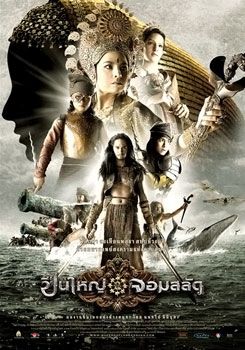
Abb.:
Plakat
[Bildquelle: Wikipedia. -- Fair use]
|
"Queens of Langkasuka (Thai: ปืนใหญ่จอมสลัด, Puen yai jom salad) is a 2008 Thai historical fantasy adventure film directed by Nonzee Nimibutr (นนทรีย์ นิมิบุตร, 1962 - ), and written by two-time S.E.A. Write Award winner Win Lyovarin (วินทร์ เลียววาริณ, 1956 - ). Known as "Pirates Of Langkasuka" in the UK[1] and as "Legend of the Tsunami Warrior" in the US. PlotQueen Hijau (راتو هيجاو) (รายาฮีเจา, 1584 - 1616) (The Green Queen) of Pattani (كراجأن ڤتاني) faces overthrow by the rebel Prince Rawai, who is allied with pirate captain Black Raven. The pirates attempt to capture some giant cannon invented by Dutchman Janis Bree and Chinese inventor Lim Kium (ลิ่มเคี่ยม), but the Dutch ship carrying the cannon blows up and the cannons sink into the sea. Meanwhile, an orphan sea gypsy boy named Pari (ปารี) is raised in a fishing village, which is constantly under attack by Black Raven's raiding parties. The boy, gifted in the magical art of Du Lum, is taken by his uncle Anjar (อันยา)to learn more of the magical ways of the ocean from White Ray, but the sage refuses to teach the boy. Nonetheless, Pari is soon communicating with the marine life. He grows into manhood and becomes a fighter against Black Raven's pirates. Black Raven, also a practitioner in the Du Lum ocean magical arts, has been trying to raise the cannons from the depths of the sea. Queen Hijau wants her own large cannons and seeks the inventor Lim Kium, who has been living in the sea gypsy fishing village. She sends away her sisters, Princess Ungu (องค์หญิงอูงู) (The Purple Princess) and Princess Biru (องค์หญิงบิรู) (The Blue Princess). They will be under the protection of the queen's loyal commander, the fierce silat exponent Lord Jarang. At the fishing village, Lord Jarang comes under attack. Pari aids Jarang in fighting off the pirates, and Jarang makes his escape. In the confusion, Princess Ungu is believed to have been killed, but she has actually been rescued by Pari and taken to White Ray's remote island. There, a romance develops between Ungu and Pari, but neither are able to commit. Ungu is due to marry the Prince of Pahang (ڨهڠ), an important ally of Langkasuka (อาณาจักรลังกาสุกะ). And Pari is still tortured by the death of his childhood sweetheart at the hands of Black Raven's men. In a cave on the island, Pari encounters Black Ray, an evil, unstable alter ego of White Ray, and Pari begins to learn more about Du Lum and the conflict between the black and white sides of the practice. Eventually, all the forces - the rebel prince, the pirates, the ocean sorcerers, the queen and the princesses - will battle for the big cannon. Cast
Queens of Langkasuka, which went into production in 2005, was at first called Queens of Pattani, but the name was changed to avoid political connections to the South Thailand insurgency and Pattani separatism, and to tie the story in with the legend of Langkasuka. [...] Derivative worksThe screenplay for Queens of Langasuka was adapted by Win Lyovarin (วินทร์ เลียววาริณ, 1956 - ) into the novel Bunga Pari (Thai: บุหงาปารี), also released in 2008." [Quelle: http://en.wikipedia.org/wiki/Queens_of_Langkasuka. -- Zugriff am 2013-03-27] |
2008-10-24
Europa-Asien-Gipfel (Asia-Europe-Meeting, ASEM) in Beijing (China). Die 43 Teilnehmerstaaten formulieren als Ziel eine schärfere Kontrolle und größere Transparenz der Finanzmärkte.
Abb.: Lage von Beijing (北京)
[Bildquelle: CIA. -- Public domain]
2008-10-27

Sondhi Limthongkul [สนธิ
ลิ้มทองกุล/林明達,
1947 - ], Agitator der
Gelbhemden (เสื้อเหลือง),
weist die Aufforderung von Sumet Tantivejkul [สุเมธ ตัน
| "Sumet Tantivejkul [สุเมธ ตัน Sondhi on Monday criticised Sumet, who called for national unity to avoid a repeat of bloody events in the Thai political history. Sondhi said the country was now split between the righteous and the unrighteous. "Instead of siding with the righteous, he preached unity," Sondhi said." [Quelle: http://www.nationmultimedia.com/home/Sumet-declined-to-respond-to-Sonthi-s-criticism-30087041.html. -- Zugriff am 2013-02-20. -- Fair use] |
2008-10-27
Vertreter von 260 Anti-Alkohol-Gruppen demonstrieren vor der Stock Exchange of Thailand (SET, ตลาดหลักทรัพย์แห่งประเทศไทย) gegen die Aufnahme von ThaiBev (ไทยเบฟ) in den Börsenhandel. ThaiBev ist die größte Alkoholindustrie Thailands.
Abb.: ®Logo
[Bildquelle: Wikipedia. -- Fair use]
Abb.: Lage der Stock Exchange of Thailand (SET, ตลาดหลักทรัพย์แห่งประเทศไทย)
[Bildquelle: OpenStreetMap. -- Creative Commons Lizenz (Namensnennung, share alike)]
2008-10-28
Wegen sinkender Mineralölpreise werden die Bustarife in Bangkok gesenkt: normale Busse um 1,50 Baht, klimatisierte Busse um 1 Baht.
Abb.: 1,50 Baht billiger
[Bildquelle: nist16dh. -- http://www.flickr.com/photos/53801255@N07/5384305230/. -- Zugriff am 2012-10-27. -- Creative Commons Lizenz (Namensnennung, share alike)]
2008-10-28
Premiere des Films The Coffin (โลงต่อตาย) von Ekachai Uekrongtham (เอกชัย เอื้อครองธรรม / 吕翼谋[)
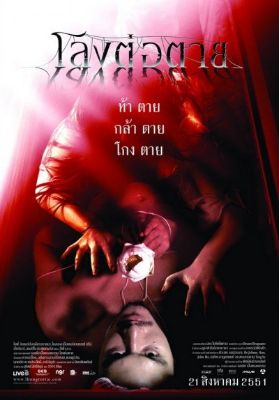
Abb.:
Plakat
[Bildquelle: Wikipedia. -- Fair use]
|
"The Coffin is a 2008 horror film starring Ananda Everingham (ອນນັດາ ເອເວອຣິ່ງແຮນ / อนันดา เอเวอริ่งแฮม, 1982 - ) and Karen Mok (莫文蔚, 1970 - ). PlotA young man, and several years later, a woman, undergo a Thai ritual of lying in a coffin, which is supposed to ensure long life and banish bad luck. The ritual is also seen as a solution to fatal genetic diseases and diseases like cancer. The man, Chris, wakes and is brought to the hospital where doctors say he suffers from hallucinations. It turns out that the hallucinations are paranormal visits by his ex-girlfriend, who dies, along with her child, just when his wife is cured. The woman on the other hand is rid of her lung cancer, however is haunted by her boyfriend, Jack, whom she was supposed to marry. The woman consults an expert in the paranormal, and later Chris, to try to solve her supernatural difficulties." [Quelle: http://en.wikipedia.org/wiki/The_Coffin. -- Zugriff am 2013-04-20] |
2008-10-29
Die Gelbhemden (เสื้อเหลือง) teilen mit, dass sie für die Opfer vom 7. Oktober 35 Mio. Spenden bekommen habe. Die Familien der Getöteten sollen 5,5 Mio. Baht bekommen, der Rest gehe an die Verwundeten.
2008-11-01
Ex-Ministerpräsident Thaksin hält per Telefon im Rajamangala Stadium (ราชมังคลากีฬาสถาน) vor 90.000 Anhängern eine Rede. Er sagt, dass ihn niemand zurück nach Thailand bringen könne außer die "königliche Gnade" oder die "Macht des Volkes". Es hätten ihm viele Länder die "Ehrenbürgerschaft" angeboten: "das hat mich ein wenig traurig gemacht, weil ich so viele Dinge für andere Länder in der Welt machen könnte, aber nicht für mein eigenes". Der Verkauf von Manchester City habe ihm so viel Gewinn gebracht, dass er seine Familie gut unterstützen könne.
Abb.: Lage des Rajamangala Stadium (ราชมังคลากีฬาสถาน)
[Bildquelle: OpenStreetMap. -- Creative Commons Lizenz (Namensnennung, share alike)]
Abb.: Rajamangala Stadion (ราชมังคลากีฬาสถาน), 2009
[Bildquelle: Pittaya Sroilong. -- http://www.flickr.com/photos/pittaya/3747579455/. -- Zugriff am 2012-10-27. -- Creative Commons Lizenz (Namensnennung)]
2008-11-03 - 2008-11-05
2008 ISSF World Cup Final (rifle and pistol) in Bangkok. Frau Thanyalak Chotphibunsin (ธัญลักษณ์ โชติพิบูลศิลป์, 1990 - ) wird 12. in Women's 10 metre air rifle, Frau Tanyaporn Prucksakorn (ธันยพร พฤกษากร) wird 10. in Women's 25 metre pistol und 8. in Women's 10 metre air pistol
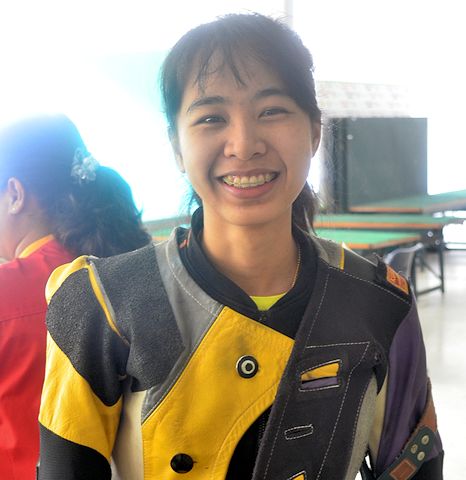
Abb.:
Thanyalak Chotphibunsin (ธัญลักษณ์
โชติพิบูลศิลป์), 2013
[Bildquelle: B20180
/ Wikipedia. --
Creative
Commons Lizenz (Namensnennung, share alike)]
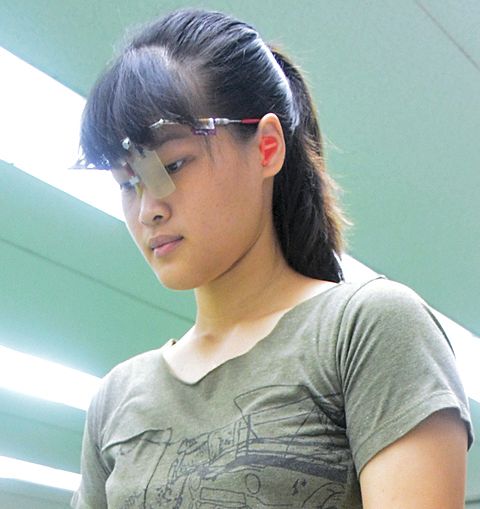
Abb.:
Tanyaporn Prucksakorn (ธันยพร
พฤกษากร), 2013
[Bildquelle: B20180
/ Wikipedia. --
Creative
Commons Lizenz (Namensnennung, share alike)]
2008-11-04

Barack Hussein Obama II (1961 - ) wird zum US-Präsidenten gewählt.
Abb.: USA
[Bildquelle: CIA. -- Public domain]
Abb.: Barack Hussein Obama II
[Bildquelle: DonkeyHotey. -- http://www.flickr.com/photos/donkeyhotey/5337333337/. -- Zugriff am 2012-01-05. -- Creative Commons Lizenz (Namensnennung, share alike)]
Abb.: First Lady Michelle LaVaughn Robinson Obama (1964 - )
[Bildquelle: DonkeyHotey. -- http://www.flickr.com/photos/donkeyhotey/5374430598/. -- Zugriff am 2012-01-05. -- Creative Commons Lizenz (Namensnennung, share alike)]
Abb.: George W. Bush wird gestürzt / von Murray Webb (1947 - ), 2009
[Bildquelle: George Bush. 20 January 2009.. Webb, Murray, 1947- :[Digital caricatures published from 29 July 2005 onwards (2006, 2007, 2008). Includes a selection of digital caricatures published from 2002 and up to July 2005.]. Ref: DCDL-0010122. Alexander Turnbull Library, Wellington, New Zealand. http://natlib.govt.nz/records/23248529. -- Zugriff am 2013-03-07. -- "You can copy this item for personal use, share it, and post it on a blog or website. It cannot be used commercially without permission"]
2008-11-04
Amphoe Sukhirin (สุคิริน), Provinz Narathiwat (นราธิวาส): drei auf Motorräder montierte Bomben explodieren: 1 Toter, 71 Verletzte.
Abb.: Lage von Amphoe Sukhirin (สุคิริน)
[Bildquelle: OpenStreetMap. -- Creative Commons Lizenz (Namensnennung, share alike)]
2008-11-04
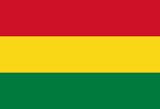
Boliviens Präsident Evo Morales (1959 - ) zeichnet Ex-Ministerpräsident Thaksin mit dem Orden "Simon Bolivar" aus. Thaksin bekommt den Preis für seine Hilfe gegenüber der armen Bevölkerung und der Verbesserung der Lebensbedingungen in den wenig entwickelten Provinzen. "Auch war es Herrn Shinawatra möglich das Darlehen, des Internationalen Währungsfonds (IWF), zu tilgen."
Abb.: Lage von Bolivien (ประเทศโบลิเวีย)
[Bildquelle: CIA. -- Public domain]
Abb.: Evo Morales / von Murray Webb (1947 - ), 2008
[Bildquelle: Evo Morales. 27 September, 2008. Webb, Murray, 1947- :[Digital caricatures published from 29 July 2005 onwards (2006, 2007, 2008). Includes a selection of digital caricatures published from 2002 and up to July 2005.]. Ref: DCDL-0007700. Alexander Turnbull Library, Wellington, New Zealand. http://natlib.govt.nz/records/22679919. -- Zugriff am 2013-03-07. -- "You can copy this item for personal use, share it, and post it on a blog or website. It cannot be used commercially without permission"]
2008-11-04


Bericht des US-Botschafters Eric G. John an das State Departement in Washington DC:
| "THAILAND POLARIZED, LOOKING FORWARD
3. (C) The battle lines in Thailand's political environment are clearly drawn, even if there are multiple actors in play. However, reductionist arguments that the crisis is about "the King vs. Thaksin" are overly simplified; neither camp controls all who claim allegiance to each, and key secondary figures in both camps have differing agendas. While all countries have their unique dynamics--Thailand's revolves around the institution of monarchy--Thailand nevertheless is experiencing a version of a scenario that has played out in other East Asian countries: economic growth outstripping the pace of democratic institutional maturation, and new groups challenging the prerogatives of old elites. 4. (C) Although both sides in this polarized society have independent-minded and middle-class participants, former Prime Minister Thaksin Shinawatra [ทักษิณ ชินวัตร, 1949 - ] provides direction and, we assume with confidence, financing for his allies, relying on a loyal electorate in the northeast and north of Thailand which benefited from his populist policies from 2001-06. The Thaksin machine faces off against a mix of royalists, Bangkok middle class, and southerners, with Queen Sirikit [สิริกิติ์] having emerged as their champion, as King Bhumibol largely fades from an active role. The two sides are competing for influence and appear to believe, or fear, that the other will use the political power it has to marginalize (if not eliminate) the opposing side. They are positioning themselves for what key actors on both sides freely admit to us in private will be Thailand's moment of truth--royal succession after the King passes away." [Quelle: http://wikileaks.org/cable/2008/11/08BANGKOK3289.html. -- Zugriff am 2013-02-18] |
2008-11-06
Laut einer Studie der Personalberatungsgesellschaft Robert Walters sind 31% der Thais bereit, täglich ein bis zwei Stunden zur Arbeit zu fahren, 15% sind zu noch längeren Anfahrtszeiten bereit.
2008-11-06


Bericht des US-Botschafters Eric G. John an das State Departement in Washington DC:
SUBJECT: PALACE INSIDER TELLS AMBASSADOR OF THE KING'S OPPOSITION TO A COUP AND TO PAD PROTESTS
[...]
PALACE-PAD RELATIONS
3. (C) Ambassador met privately at the Residence on November 4 with Piya Malakul[ ปีย์ มาลากุล ณ อยุธยา, 1937 - ], a close advisor to Queen Sirikit who in the past has also served as a confidant of the King. Piya remarked that he regretted the Queen's October 13 appearance at the funeral of a PAD [พันธมิตรประชาชนเพื่อประชาธิปไตย] supporter (ref D). He claimed the Queen had been emotionally affected when she learned that one victim of the October 7 violence was a young lady about to be married, and that she had told her father she was going to the protest to defend the monarchy. Initially, the Queen had wanted to send Princess Chulabhorn [จุฬาภรณวลัยลักษณ์, 1957 - ] to the funeral. It was only at the request of Chulabhorn and Chulabhorn's companion, Chaichon Locharernkul [ชัยชน โลว์เจริญกุล], that the Queen decided to go herself. Piya said there was no intention for the Queen to involve either herself or the monarchy in political matters, but, unfortunately, some members of the public could interpret the funeral appearance differently. Piya said the Queen later reached out to seriously injured police officers in an attempt to show her neutrality, but this signal went largely unnoticed.
4. (C) Piya remarked that King Bhumibol was highly irritated by PAD's occupation of Government House [ทำเนียบรัฐบาล] and other disruptions caused by the anti-government group, but the King was unsure how best to ensure PAD would vacate the compound. Piya said the King had instructed two of his loyalists to convey his desire that PAD leave Government House. (One of these messengers was well-known associate of the King Disathorn Watcharothai [ดิสธร วัชโรทัย], who said publicly on October 29 that Thais who love the King should "go home"; see ref A.) Piya considered PAD co-leader Sondhi Limthongkul [สนธิ ลิ้มทองกุล, 1947 - ] to be obstinate, however, saying Sondhi had become obsessed with his own sense of mission. By contrast, Piya thought that PAD co-leader Chamlong Srimuang [จำลอง ศรีเมือง, 1935 - ] was reasonable and willing to compromise.
[...]
KING TO ANUPONG: NO COUP
6. (C) Piya predicted that the current turmoil would not result in a military coup. He said that the King, speaking with Army Commander Anupong Paojinda [อนุพงษ์ เผ่าจินดา, 1949 - ], had referred to the 2006 coup and made a statement to the effect that there should be no further coups.
POLITICIZATION OF THE MONARCHY
7. (C) We also met on November 5 with Chutinant Bhirombhakdee [จุตินันท์ ภิรมย์ภักดี]] (strictly protect), the well-connected scion of a wealthy family with close palace ties. Chutinant had a leading role in the Constitution Drafting Assembly established by the leaders of the 2006 coup; his wife, Piyapas [ปิยาภัสร์, 1962 - ], has the royal title of "Mom Luang" [หม่อมหลวง]and works closely with the Queen. Chutinant agreed that the Queen's appearance at the October 13 funeral had highly negative ramifications, saying that even politically neutral Thais felt she had inappropriately brought the monarchy into politics. He also acknowledged increasing semi-public criticism of the monarchy, focused on the Queen (septel). Chutinant stated with confidence that the King had sought to deter the Queen from attending the funeral by questioning the wisdom of that plan, but had stopped short of forbidding her to do so.
8. (C) Chutinant discussed former Prime Minister Thaksin's statement in his November 1 address to supporters (ref B) that either "royal mercy or the people's power" could allow his return to Thailand. Chutinant said this juxtaposition, which he viewed as highly strategic, had the predictable effect of energizing Thaksin's opponents in the royalist camp. This reaction allowed Thaksin to demonstrate publicly that many palace figures were aligned against him, thereby eroding the prestige that the palace derived from its status as an institution above politics. (Separately, after Thaksin's remarks, a member of Thaksin's legal team told us that the sentence in question was part of a "very refined product" and that she had heard this sentence "four or five times" in Thaksin's rehearsal of the speech.)"
[Quelle: http://www.cablegatesearch.net/cable.php?id=08BANGKOK3317. -- Zugriff am 2013-02-16]
2008-11-08 - 2008-12-29
BBTV Channel 7 sendet die 17 Folgen des Lakorn (ละคร - Soap Opera) Silamanee (ศิลามณี).
Abb.: Plakat
[Bildquelle: Wikipedia. -- Fair use]
"Silamanee (Thai:ศิลามณี – means The Precious Stone) is a Thai costume drama Lakorn, remade from a 1994 lakorn of the same name[1] which originally was based on a novel.[2] The lakorn stars Suvanant Kongying (สุวนันท์ คงยิ่ง, 1978 - ) and Paul Pattarapon ("พอล" ภัทรพล ศิลปาจารย์ 1978 - ) in the main roles. Summary
The love test of a royal princess and a proud man.[3]
The "Silamanee" is a sacred thing, which belongs to the republic of Chiangrath (เชียงรัฐ). It's the marriage gift that the ruler will use. It traditionally was passed down.
In The Republic of Chiangrath, the north of Thailand, a little princess Seangfarng (แสนฝาง) was abandoned by her mother aim the big argument for her nationalism. With only the caring from her father, The King of Chiangrath, Seangfarng was left Chiangrath with the trip to Bangkok for the need of study as well as began to know her own mum, who now has a new family. Her commitment had made to her mom that Seangfarng never ever see her mom again.
10 years later, Seangfarng, the beauty of Chiangrath, now become a beautiful high school girl with another identity, Ngam Sanluang, so as to hide her real identity from her mom who is now trying to seek her. Unfortunately her father's death gave her a news about Chiangrath's most precious thing called "Silamanee" which now isn't in Chiangrath, illustrated her father old promise with his closest friend, Khun Ruj in order to find a best betrothed for his daughter who to be Khun Ruj's eldest son including his giving "Silamanee" set to commence their agreement. However, Silamanee can return to Chiangrath if the arrangement faces problems. Nothing is more important to Ngam or Seangfarng than to bring back the "Silamanee". Ngam comes back to Bangkok and receives the address of her betroth's house. Her plan is just only take back what rightfully belongs to her country. With the help of her friend and who also have a crush on her, Chalee, the youngest son of Rachasena. Ngam, now, can easily visit the house and meet Parote whom she realized is the second son of the family but it clearly reminds her of her accidental encounters with Parote several times before and she knows him well in spite of his not recognizing her as she now is Ngam Saenluang.
Parote is working in Thailand politics but also studying. He is the first son of family in truth. He finds Ngam's behavior is just that of a regular girl with a sassy manner. He knows nothing about the Princess’ identity. He also blames her with a quiet argue word and makes his hating appear to Ngam. However, One day, he arrives at a silk shop which sells silks from Chiang Rai, which belongs to a beautiful shopkeeper named Mae Liang who truly is Seangfarng but with more womanly behaviour and now charming Parote. This is her second plan to transform into three identity person which ones can be the best way to deceives Parote into the trip for return back their Silamanee which Khun Ying Samerjai Rachasena is a little too obsessed with as well as it belonging to her without any evidence shows that it is the Chiangrath's thing. At her birthday party, Khun Ying Samerjai Rachasena thought she was safe to show the "Silamanee" so she wears it, but Ngam realized and tells the legend of "Silamanee". However, Khun Ying Samerjai simply says she is crazy and telling fairytales.
However, Ngam's plan to deceive Parote is dying. Instead, he is truly in love with her and knows the true identity of Silamanee, belonging to Chiangrath for long time ago. He wanted to marry Nagam as he already know her Princess Identity but it's too late that both of them are begin engaging to another betroths. Fortunately, their betroths know SeangFarng and Parote's true love and bravely cancel their wedding plan. With the help of Chalee, who now married Ngam's stepsister Si, Parote's adoptive brother and his girlfriend, Ngam's cousin's family, Ngam's main servant and her own mother whom she now knows truly loves her and tried to help her every problem, Parote Rachasena and Ngam Sanluang married in Chiangrath and starts their happiness. However, Khun Ying Samerjai is becoming more psycho of her too much demand on Silamanee and her too much hateful for SeangFarng which returns the new lovers to Bangkok. Khun Ying Samerjai knows Searng Farng gratefulness and agree for her son's wedding with returning Silamanee" for Ngam.
The soap opera ends with their happy reunion on the peaceful country of Chiangrath for the new lovers, Ngam Sanluang and Parote Rachasena as King and Queen of Chiangrath.
ReceptionSilamanee received extremely positive from the viewer despite of becoming the remake film. With just one episode, “Silamanee (Precious Stone)” is a hit among Thai viewers.[4] In its Second week of airing, the lakorn received 11–12 rating from the millions viewer ranked number #2 behind another longer airing lakorn for the week in Thailand.[5] Silamanee Finally received a hit as rating of 16 in its last episode ranked number one for just only one final day between three day release lakorn.[6] Silamanee also become the one of all lakorn to be translated and subbed in, English by the fans. However, the subbing project still incomplete as well as the lakorn[7] still showing on television. Not only Thailand, Silamanee made a well selling in Cambodia which sold out just for a morning for the first two episode coming on VCD[8] and plans to release into DVD and VCD in America. Until now, the lakorn considered the highest rate lakorn of remake genre.
Characters
- Suvanant Kongying (Kob) ("กบ" สุวนันท์ คงยิ่ง, 1978 - ) as Princess Saengfarng/Ngam Saenluang/Mae Liang (เจ้าหญิงแสงฝาง, งาม แสนหลวง, แม่เลี้ยง). The princess of Chiangrath. The only daughter of King Saenluang. Sweet and beautiful as the traditional Lanna style, but at the same time she has a splendid gracefulness and pride within her. Including beauty and brains. Actually, deep within she is lonely and wanting love from her mother that she had never received. She has a duty of taking care of Chiangrath Province and to find the Silamanee, the national treasure gem stone, back to the country. Because of this responsibility, she must go undercover as Ngam Saenluang. A student in the Political Science that no one knows of her background. They only know that she comes from the north. And another face of her is young beautiful Mae Liang that has a silk business in Bangkok and the Northern Provinces. The tougher duty is for her to prove true love with the guy that she is betrothed to. By her having to prove it with dignity and love.
Pattarapon Sinlapajan (Paul) ("พอล" ภัทรพล ศิลปาจารย์ 1978 - ) as Parote Rachasena (ภรต ราชเสนา). A good looking man that have everything including an old blueblood (hi-so) family, with his father as a General, he has a diploma in diplomatics. He works in the Foreign Affairs Commission between countries. Has a friendly personality, very outgoing. A charming man, intelligent, has leadership skills, loves his siblings. Princess Saengfarng tests him in many ways without him knowing it.
- Pulpat Attapanyapol (พูลภัทร อัตถปัญญาพล, 1988 - ) as Chalee Rachasena (ชาลี ราชเสนา). A young artist, an Art student. Very moody. Worships and praises love more than anything. Hates the idea of looking down on people. Even though he comes from a rich family, he likes the ordinary life. He spends his life differently from his older brother, Parote. Chalee falls in love with Ngam at first sight. He immediately knows that Ngam has something more than it seems. The love that he gives to Ngam is true love that is pure.
Premsinee Rattanasopha (Cream) ("ครีม" เปรมสินี รัตนโสภา, 1981 - ) as Sasi (ศศิ) Buranayothin. The precious daughter of General Jomnarong. The stepdaughter of Madam Athiti. She is radiant, cheerful, and optimistic. At the same time, she gives the most important, to love.
- Noppol Pitaklopanich (Glom) (นพพล พิทักษ์โล่พานิช (กลม), 1980 - ) as Jao Saibordee (เจ้าสายบดี). Princess Saengfarng’s cousin. He is a Chiangrath native. Good-looking, nice/friendly. His manners are proper as a member of the royal family that rules the country of Chiangrath. He loves Princess Saengfarng, but he can be no more than an older brother to her, as they are closely related. Jao Saibordee knows how Saengfarng feels and whom she actually loves. He is the one to point out the way for her to decrease her pride in order to find the true wanting of her heart.
- Jaturawit Kochanuam (Uthen) ("อุเทน" พันตำรวจโท จตุรวิทย์ คชน่วม, 1976 - ) as Lieutenant Colonel Atisak. A young soldier with a good future ahead of him. He is fun and amusing. Parote’s friend. One of the guys that is associated with Mae Liang (another character of Princess Seangfarng when she is undercover, the owner of a fabric company). He is the one that convinces Parote to meet Mae Liang.
Casting
Sompope Benjatikul (สมภพ เบญจาธิกุล, 1945 - ) as King Saenluang Na Chiangrath (เจ้าแสนหลวง). The Great King of Chiangrath as well as the perfect father of Searngfarng who begin looked after her alone without the wife. He finally died by his old illness and just gave a letter about silamanee to his only daughter.
Papassara Teychapaiboon (ปภัสรา เตชะไพบูลย์, 1969) as Madam Athiti Buranayothin (คุณหญิงอทิติ). A wife of General Jomnarong Buranayothin and the mother of Searng Farng which abandoned her for long times but then tried to found her. However, she always abused by Searng/Ngam but she still began loved by her again in the conclusion.
- Thapakorn Dissayanant (ฐาปกรณ์ ดิษยนันท์) as General Jomnarong Buranayothin (พลเอกจอมณรงค์).
- Pairoj Jaisingh (ไพโรจน์ ใจสิงห์, 1943 - ) as Praya Petcharayoot Rachasena/Luang Rathchanurak (เจ้าคุณพระยาเพชรายุทธ).
- Sitiporn Niyom (สิทธิพร นิยม, 1974 - ) as Prince Gawin of Rathshaan (เจ้าชายกาวิล).
Apiradee Pawaputanont (อภิรดี ภวภูตานนท์, 1965 - ) as Madam Samerjai Rachasena (คุณหญิงเสมอใจ).
During the planning of the lakorn, a number of actresses had reportedly been under consideration for the role of Searng Fang. The 2004 Thailand Supermodel Contest winner, Khemanit Jamikorn (ชญานิษฐ์ จามิกรณ์, 1988 - ), was approached to take the role but had passed on it with some appearance problems[9][10] While Ann Thongprasom (แอน ทองประสม, 1976 - ), Pachrapa Chaichua (พัชราภา ไชยเชื้อ, 1978 - ) and Woranut Wongsawan (วรนุช ภิรมย์ภักดี, 1980 - ) were considered as well, in the end Suvanant Kongying was cast as Searng Fang. The reunion with Paul Pattarapon after their first meet in Sapai Tornado (สะใภ้ทอร์นาโด).
After losing the Searng Fang role, Khemanit Jamikorn was suggested by the director to play a minor role in the lakorn and unsurely that she appeared in. However, until now, she was truly absent in the lakorn.
Silamanee (ศิลามณี, Jewellery)The remake Silamanee received the different style toward the original. The necklace in the old version contains a large bold circle with three droplet shape emeralds dangling down while the new one, has two rectangle, two square, and one droplet shape emerald dangling down. However, both prefer a green appearance colour. Unlike another lakorn brought the not so expensive jewellery in working of the lakorn, The Silamanee illustrated as the original according rak dara reporting during the opening ceremony. With the agreement with the director. A Thai famous jeweller, Kun Chuchai had designed the Necklace with using the version from the Victorian Period, which was in his collection. Silamanee is worth over 100 million Bath, approximately around 3.4 million USD. The necklace had once belonged to the Romanov Family, which believed is the last royal bloodline of Russia.[11][12][13]
Chiangrath (เชียงรัฐ)Chiangrath country is truly a make up country for working the drama. However, the culture and tradition, which appeared on lakorn, found out the basing of Chiang Mai (เชียงใหม่) city within the celebration of Loy Krathong festival (ลอยกระทง) showed out according to the scene of The King Launched Khom Fai (โคมไฟ), a Kind of balloon in the festival. It clearly illustrated Chiangrath is a northest country at Thailand While Chiang Mai is the largest and most culturally significant city in northern Thailand. Meanwhile, Chiangrath is more relating to Lanna (ᩃ᩶ᩣ᩠ᨶᨶᩣ), an ancient kingdom in the north of Thailand around the city of Chiang Mai."
[Quelle: http://en.wikipedia.org/wiki/Silamanee. -- Zugriff am 2012-03-07]
2008-11-09
Pattaya (พัทยา) leidet unter der politischen Krise: eine Transvestitenshow, die sonst täglich mit 2000 Zuschauern rechen kann, hat nur noch 1000 Zuschauer.
Abb.: Lage von Pattaya (พัทยา)
[Bildquelle: OpenStreetMap. -- Creative Commons Lizenz (Namensnennung, share alike)]
Abb.: Transvestitenshow in Pattaya, 2007
[Bildquelle: Sergey. -- http://www.flickr.com/photos/zhaffsky/351451365/. -- Zugriff am 2012-10-27. -- Creative Commons Lizenz (Namensnennung, share alike)]
2009-11-10
The Nation berichtet über die magischen Vorkehrungen, die Sondhi Limthongkul (สนธิ ลิ้มทองกุล / 林明達, 1947 - ) und seine Anhänger treffen, um böse Geister und Verwünschungen, die auf der Nation und wichtigen Denkmälern liegen, zu beseitigen. Z.B. werden bei der Reiterstatue König Chulalongkorns (พระบรมรูปทรงม้า) sechs Nägel entfernt, die angeblich ein Hexagramm bilden, das die guten Wirkungen der Statue verhindert. An die Stelle der Nägel wurden als Vorsichtmaßnahme Damenbinden (ผ้าอนามัย) mit dem Menstruationsblut einer Frau gesteckt.
Abb.: Lage der Reiterstatue König Chulalongkorns (พระบรมรูปทรงม้า)
[Bildquelle: OpenStreetMap. -- Creative Commons Lizenz (Namensnennung, share alike)]
Abb.: Dank Sondhi Limthongkul (สนธิ ลิ้มทองกุล / 林明達) und einer menstruierenden Frau wieder wundermächtig: Reiterstatue von Rama V. (พระบรมรูปทรงม้า), Royal Plaza (ลานพระราชวังดุสิต), Bangkok, 2009
[Bildquelle: Ian Fuller. -- http://www.flickr.com/photos/ianfuller/3175914913/. -- Zugriff am 2012-10-28. -- Creative Commons Lizenz (Namensnennung, share alike)]
Abb.: Magisch höchst wirksam!
[Bildquelle: JSK / Wikimedia. -- Public domain]
2008-11-12
Apirak Kosayodhin (อภิรักษ์ โกษะโยธิน, 1961 - ), der Gouverneur von Bangkok, muss wegen Korruption zurücktreten.
Abb.: Apirak Kosayodhin (อภิรักษ์ โกษะโยธิน), 2008
[Bildquelle: Looknarm / Wikipedia. -- Creative Commons Lizenz (Namensnennung, share alike)]
"Apirak Kosayodhin (Thai: อภิรักษ์ โกษะโยธิน / 阿披叻, born March 30, 1961) is a former Thai business executive and former governor of Bangkok. In the gubernatorial elections on August 29, 2004 he won with 40% of the votes. He was re-elected on October 6, 2008, in the gubernatorial elections with 45% of the vote, but he resigned a month later after being indicted on charges of corruption. Born in Nonthaburi (นนทบุรี) in a Thai Chinese family,[1][2] he studied at Triam Udom Suksa School (รงเรียนเตรียมอุดมศึกษา) and Chiang Mai University (มหาวิทยาลัยเชียงใหม่), where he received a Bachelor Degree in Food Science and Technology in 1983. Beginning his professional career at the Thai branch of Pizza Hut, he worked at several companies as manager and director. 2002–2004 he was among other posts CEO of TA Orange (currently known as True Move) and member of the Board of Directors of the Stock Exchange of Thailand (ตลาดหลักทรัพย์แห่งประเทศไทย).
Governor of BangkokIn 2004 the Democratic Party (พรรคประชาธิปัตย์) nominated him as their candidate for the Bangkok governor election, which he won gaining 40% of all votes. Paveena Hongsakul (ปวีณาหงสกุล, 1949 - ), an independent candidate with the unofficial support of the ruling Thai Rak Thai party (พรรคไทยรักไทย), came in second-place with 16% of the vote.
Critics have noted the lack of tangible impact Apirak had in his role as city governor.[3] Some policies, for instance "smart" traffic signs and bus stops flopped and his Bus Rapid Transit (BRT, รถโดยสารประจำทางด่วนพิเศษในเขตกรุงเทพมหานครและปริมณฑล) project has yet to come into service. However, he was lauded for being able to push the extension of BTS Skytrain (รถไฟฟ้าบีทีเอส) routes, which are currently under construction. Another notable project Apirak was successful in implementing is the Bangkok Art and Culture Centre (หอศิลปวัฒนธรรมแห่งกรุงเทพมหานคร) at Pathumwan (ปทุมวัน) intersection which opened in 2008.
After two years in office, poll respondents gave him high marks for diligence and dedication to work. But he received his lowest marks for seeing projects through to completion. His traffic and transport initiatives also received flunking marks. Overall, 57% of Bangkokians felt he had met expectations.[4]
Apirak's so-called smart taxi stops were met with derision. The 150 stops that were in operation by October 2005 looked like bus stops. If people were waiting, a red light became visible to nearby cabs. If no taxis passed by, would-be passengers could press a button and a call centre would direct cabs to the stand. A BMA study found the stops had a success rate of only 38.6%. Although 189,549 smart taxis had been hailed, the study showed that only 73,168 stopped to pick up passengers. Many stops stood empty and unused.[5] However, Apirak's smart traffic signs have been a mild success, giving motorists more information about traffic conditions ahead and is mild relief from the stress of driving in the city.
The military junta's Assets Examination Committee (AEC) did not charge Apirak over the controversial purchase of fire-fighting equipment for the city. Sithichok Rawdkrutha, an AEC member, lodged a complaint with AEC Chairman Nam Yimyaem (นาม ยิ้มแย้ม, 1936 - ) over the decision and noted that he suspected Apirak of dereliction of duty or malfeasance for giving the nod to the purchase, for which he allegedly received 500 million baht in kickbacks.[6] Apirak has protested his innocence by pointing to the fact that the deal was originally signed by the former Bangkok governor Samak Sundaravej (สมัคร สุนทรเวช, 1935 - 2009). Apirak claims to have been forced by the ex-governor's agreement to continue the project.
Re-electionDespite the hanging allegations Apirak won re-election on the October 5, 2008 with 45% of the vote or 991,018 of the votes cast.
Resignation
- Further information: Bangkok gubernatorial election, 2008
On the November 11, 2008 the National Counter Corruption Commission announced that Apirak was indicted together with other officials including former Governor and Prime Minister Samak.[7] On the 13 Apirak announced in front of television cameras his resignation saying: "Like the Democrat Party, I support a move that will perpetuate politics-for-people," he continued "I have complete confidence in my innocence. I am ready to see my case go through the judicial system. I am confident that I will receive justice in the end,". Abhisit Vejjajiva (อภิสิทธิ์ เวชชาชีวะ, 1964 - ), Leader of the Democrat, party was quoted saying: "Apirak's decision set a standard many people want to see in Thai politics. It's praiseworthy and he deserves moral support from society,"[8] His resignation immediately set out a by-election for the next governor. Currently he is a close adviser to PM Abhisit Vejjajiva."
[Quelle: http://en.wikipedia.org/wiki/Apirak_Kosayodhin. -- Zugriff am 2012-10-28]
2008-11-12


Bericht des US-Botschafters Eric G. John an das State Departement in Washington DC
"SUBJECT: QUESTIONING THE UNQUESTIONABLE? UPTICK IN ONLINE ANGER AT ROYALS AS THAI ARMY, POLICE ADDRESS LESE MAJESTE [...]
ROYAL BEHAVIOR TO BLAME FOR SURGE IN CRITICISM?
3. (C) After Queen Sirikit [สิริกิติ์, 1932 - 9 presided over the October 13 funeral of a People's Alliance for Democracy (PAD) [พันธมิตรประชาชนเพื่อประชาธิปไตย)] protestor killed during an October 7 clash with police (ref B), public criticism of the Queen increased notably. Thanapol Eawsakul [ธนาพล อิ๋วสกุล], editor of left-wing Same Sky Magazine [ฟ้าเดียวกัน], told us that critical online comments posted to his website spiked, and overall traffic to his site increased from 10,000 hits per day to 30,000 hits.
Bildquelle: http://www.sarakadee.com/web/modules.php?name=Sections&op=viewarticle&artid=622. -- Zugriff am 2013-02-18. -- Fair use]s 4. (C) Thanapol, who has been charged with lese majeste for material previously published in Same Sky (ref E), told us he spent much of his time cleansing his website of content that could lead to further lese majeste accusations, such as: nude photos of the Crown Prince's consort, including video clips of an infamous birthday party (ref C); multiple postings ranting about the Crown Prince's lewd sexual behavior; photos (that Thanapol suspected to be digitally edited) of the Queen wearing what appears to be a famous stolen Saudi blue diamond; and multiple links to other sites with purported evidence linking the royal family to the stolen Saudi jewelry (ref F). To his surprise, people even posted comments speculating about King Bhumibol's involvement in his brother's death, some going as far as to suggest that Bhumibol shot then-King Ananda. Posters also drew upon Forbes magazine's recent report claiming the King's assets topped $35 billion, decrying the monarchy's wealth as a result of generations of extortion, and calling the upcoming royal funeral of the King's elder sister as a waste of taxpayer money.
Abb.: Thanapol Eawsakul [ธนาพล อิ๋วสกุล]
[5. (C) BBC reporter Jonathan Head (protect), subject of an ongoing lese majeste investigation (ref D), spoke with us on November 3 from the northeastern province of Udon Thani [อุดรธานี], where he said people raged publicly against the Queen in a manner he had never witnessed before. "The Queen ripped up the rule book when she attended the (PAD) funeral," he said, adding that he remained uncertain how to incorporate recent interviews into future BBC reporting without becoming the subject of additional lese majeste investigations. Many of the people he interviewed in Udon Thani complained that the royal family had not devoted similar attention to three locals (whom we presume were members of the security forces) killed in recent violence by southern insurgents.
Abb.: Lage der Provinz Udon Thani [อุดรธานี]
[Bildquelle: OpenStreetMap. -- Creative Commons Lizenz (Namensnennung, share alike)]
UDD SCRUTINIZED FOR LESE MAJESTE, WITH CAUSE
6. (C) Jakrapob Penkair [จักรภพ เพ็ญแข, 1967 - ], discussing his lese majeste case with us on October 3, said he expected to be convicted and imprisoned. This marked a change from mid-August, when he thought that legal action would ultimately stall short of a court conviction. He described his current efforts as focused on grass-roots education of Thai citizens, "preparing the way" for eventual royal succession on terms favorable to his political force. While others on the Thaksin team focused on near term political matters, his efforts were mid-term, using new media like the internet and old tactics like whisper campaigns in small town barbershops and beauty parlors, to frame the issue of the proper role of the monarchy in 21st century Thailand. Jakrapob envisioned a small, ceremonial institution as in Japan and Sweden. Jakrapob did not hide his disdain for the Queen when talking to us, and said that he was counting on her to overreach and overreact.
7. (C) Suspects associated with the pro-Thaksin UDD [United Front for Democracy Against Dictatorship แนวร่วมประชาธิปไตยต่อต้านเผด็จการแห่งชาติ] are receiving strict scrutiny. Police have denied bail to two UDD figures, prompting two others charged with lese majeste to flee abroad after police obtained warrants for their arrests. Assessing the seriousness of the alleged offenses is difficult since in most cases, no public records of the offending remarks are available; any person or media outlet that reproduces the offending content would also be at risk for lese majeste charges. A credible NGO contact told us the tone of UDD figures' remarks was unusually strong, showing "open vengeance against the monarchy, scaring everyone."
ARMY INSERTS ITSELF IN THE LESE MAJESTE WATCH
8. (SBU) Army Commander General Anupong Paojinda [อนุพงษ์ เผ่าจินดา, 1949 - ] warned Thai citizens of the dangers associated with criticizing the monarchy in a televised press conference on October 27. According to an English-language daily, Anupong said, "There must be no cases of contempt or disrespectful acts toward the monarchy. The Army will take action using every means against any person or group acting in contempt of or being disrespectful toward the monarchy." Anupong's remarks appeared to be a direct response to the recent increased criticism of the monarchy.
9. (SBU) Note: The Thai criminal code outlaws lese majeste, but there is no legal basis for the Army to take action against those committing that crime. The Constitution specifies, however, that the King concurrently holds the position of head of the Thai Armed Forces. The Internal Security Act does provide that the Internal Security Operations Command (ISOC) [กองอำนวยการรักษาความมั่นคงภายในราชอาณาจักร], an interagency body headed by the Prime Minister with the Army Commander as his deputy, is supposed to, among other tasks, "encourage people to be aware of their duty in upholding nation, religion, and King."
10. (C) UDD co-leader Charan Ditthaphichai claimed to us that most lese majeste investigations involving UDD supporters resulted from the Internal Security Operations Command (ISOC) Task Force 6080, which focuses on offenses against the monarchy, reporting cases to Anupong, who then forwarded them to the police. Charan stated that Army Chief of Staff General Prayut Chan-Ocha [พลเอก ประยุทธ์ จันทร์โอชา, 1954 - ], a close associate of the Queen, manages Task Force 6080 by virtue of his role as Secretary of ISOC.
POLICE DISCUSS 32 ONGOING LESE MAJESTE CASES
11. (SBU) In a rare public statement detailing police investigations of lese majeste, Police LTG Woraphong Chiewpricha, Commissioner of the Central Investigation Bureau (CIB) [กองบัญชาการตำรวจสอบสวนกลาง], disclosed to the press on October 29 that the CIB was investigating 32 lese majeste cases. The CIB had forwarded four cases, including Jakrapob's, to the Office of the Attorney General (OAG) [อัยการสูงสุด] for further consideration. Of the 32, 15 cases originated from website content, and two resulted from community radio programs. Our contacts believe that the CIB handles only a relatively small fraction of the number of lese majeste cases in progress; most cases are investigated by the police unit that receives a lese majeste complaint. The CIB tally appears to exclude cases in which figures are charged with other offenses tangentially related to the offending statements (e.g., if a community radio operator is charged for broadcasting without a permit).
PAD AND DEMOCRAT PARTY FUELING THE FIRE
12. (C) UDD supporter Suttachai Yimprasoet, a professor at Chulalongkorn University [จุฬาลงกรณ์มหาวิทยาลัย], claimed to us that the PAD seeks to use lese majeste provisions of law against the academics who provide intellectual leadership for the UDD, cooperating with Manager Media staff to scour newspapers and monitor public debates for lese majeste offenses by UDD supporters.
Abb.: Ong-art Klampaiboon [องอาจ คล้ามไพบูลย์, 1954 - ], 2009
[Bildquelle: The Official Site of The Prime Minister of Thailand Photo by พีรพัฒน์ วิมลรังครัตน์. -- http://www.flickr.com/photos/40561337@N07/4175488542/. -- Zugriff am 2013-02-18. -- Creative Commons Lizenz (Namensnenennung)]
13. (C) Democrat Party [พรรคประชาธิปัตย์] MP Ong-art Klampaiboon [องอาจ คล้ามไพบูลย์, 1954 - ] told us on November 5 that the DP had compiled a list of 29 anti-monarchy websites on May 20 and demanded that ICT take further legal action. The Democrats, he said, also proposed to increase the length of imprisonment for lese majeste charges from the current three-year minimum to 12 years and to extend lese majeste charges beyond distributors of anti-monarchy material to include also recipients and enablers of such transmissions. Ong-art also confirmed that Democrat Party MP Phiraphan Sariratuipak had drafted a law to amend the Computer Crime Act 2005 to focus on website content that violates lese majeste provisions.
JOHN"
[Quelle: http://wikileaks.org/cable/2008/11/08BANGKOK3350.html. -- Zugriff am 2013-02-18]
2008-11-13
Bombenanschlag auf Demonstration der Händler des Khlong Toei (คลองเตย) Markts gegen die Port Authority of Thailand (การท่าเรือแห่งประเทศไทย): 13 Verwundete, darunter 2 schwer Verwundete. An der Demonstration hatten ca. 1000 Personen teilgenommen.
Abb.: Lage von Khlong Toei (คลองเตย)
[Bildquelle: OpenStreetMap. -- Creative Commons Lizenz (Namensnennung, share alike)]
2008-11-14
Ex-Ministerpräsident Thaksin Shinawatra (ทักษิณ ชินวัตร, 1949 - ) und seine Frau Potjaman Shinawatra (พจมาน ชินวัตร, 1956 - ) lassen sich in Hongkong beim thailändischen Konsul scheiden.
Abb.: Karikatur von Thaksin Shinawatra (ทักษิณ ชินวัตร) und Gattin Potjaman Shinawatra (พจมาน ชินวัตร),
[Bildquelle: Adaptor-Plug. -- http://www.flickr.com/photos/11401580@N03/2886352615/. -- Zugriff am 2012-10-28. -- Creative Commons Lizenz (Namensnennung, keine kommerzielle Nutzung)]
[Wasserbüffel = Samak Sundaravej - สมัคร สุนทรเวช, 1935 - 2009; Fisch = Somchai Wongsawat - สมชาย วงศ์สวัสดิ์, 1947 - ]
Abb.: Lage von Hong Kong
[Bildquelle: OpenStreetMap. -- Creative Commons Lizenz (Namensnennung, share alike)]
2008-11-15

Kremation von Prinzessin Galyani Vadhana (กัลยาณิวัฒนา, 1923 - 2008), der Schwester des Königs. Vermutlich 100.000 Personen nehmen teil.
Abb.: Phra Meru (พระเมรุมาศ) für die Kremation von Prinzessin Galyani Vadhana (กัลยาณิวัฒนา), 2008-11-15
[Bildquelle: Xiengyod / th.Wikipedia. -- GNU FDLicense]
2008-11-17


Das Hochkommissariat der Uno für Flüchtlinge fordert Thailand auf, 158 Hmong-Flüchtlinge (ม้ง / แม้ว), die seit zwei Jahren in Nong Khai (นองคาย) inhaftiert sind, freizulassen. Die Hmong wurden wegen illegaler Einreise inhaftiert und warten im Gefängnis auf ihre Abschiebung nach Laos.
Abb.: Lage von Nong Khai (นองคาย)
[Bildquelle: OpenStreetMap. -- Creative Commons Lizenz (Namensnennung, share alike)]
2008-11-18
Auf dem Markt in Yala (ยะลา) wird ein Soldat mit seiner Ehefrau von einem als Gemüseverkäufer getarnten Jugendlichen angeschossen.
Abb.: Lage von Yala (ยะลา)
[Bildquelle: OpenStreetMap. -- Creative Commons Lizenz (Namensnennung, share alike)]
2008-11-23
Demonstration der Gelbhemden (เสื้อเหลือง)
Abb.: Demonstrant der Gelbhemden (เสื้อเหลือง) mit Bildnis des Königspaars, Bangkok, 2008-11-23
[Bildquelle: Adaptor-Plug. -- http://www.flickr.com/photos/11401580@N03/3054925820/. -- Zugriff am 2012-10-18. -- Creative Commons Lizenz (Namensnennung, keine kommerzielle Nutzung)]
Abb.: Gewehre der Regierungstruppen, Bangkok, 2008-11-23
[Bildquelle: Adaptor-Plug. -- http://www.flickr.com/photos/11401580@N03/3054931220/. -- Zugriff am 2012-10-18. -- Creative Commons Lizenz (Namensnennung, keine kommerzielle Nutzung)]
2008-11-25 - 2008-12-03
Demonstranten der People's Alliance for Democracy (PAD) besetzen die Flughäfen Suvarnabhumi (ท่าอากาศยานสุวรรณภูมิ) und Don Muang (ท่าอากาศยานดอนเมือง). Sie wollen damit den Rücktritt von Ministerpräsident Somchai erzwingen.
Abb.: Lage der Flughäfen Suvarnabhumi (ท่าอากาศยานสุวรรณภูมิ) und Don Muang (ท่าอากาศยานดอนเมือง)
[Bildquelle: OpenStreetMap. -- Creative Commons Lizenz (Namensnennung, share alike)]
Abb.: Besetzung des Suvarnabhumi Airport (ท่าอากาศยานสุวรรณภูมิ), 2008-11-26
[Bildquelle: Mark Lehmkuhler. -- http://www.flickr.com/photos/mark_lehmkuhler/4336720491/. -- Zugriff am 2012-01-13. -- Creative Commons Lizenz (Namensnennung, keine Bearbeitung)]
"Seizure of Suvarnabhumi International Airport (ท่าอากาศยานสุวรรณภูมิ) Seizing the airport
On the evening of Tuesday 25 November 2008, the PAD executed what they called "Operation Hiroshima." A convoy of hundreds of PAD members dressed in yellow blocked the two ends of the road in front of the terminal building of Suvarnabhumi International Airport and blockaded the main road to the airport. The airport is Bangkok's main airport and an important regional hub. PAD forces quickly overpowered hundreds of policemen armed with riot gear. PAD leaders mounted a mobile stage and proceeded to criticize the government. All Suvarnabhumi flights were soon canceled, leaving thousands of travelers stranded in the airport.
The government called on the Royal Thai Army (กองทัพบกไทย) to restore order at the airport. The Army did not follow the orders. In a press conference on 26 November, Army Commander General Anupong Paochinda (อนุพงษ์ เผ่าจินดา) proposed that the PAD withdraw from the airport and that the government resign. He also proposed that if the PAD did not comply, that they be subject to "social sanctions", whereas if the government did not comply, that the bureaucracy stop implementing government orders. A written copy of the proposal was sent to the government. Neither the PAD or the government complied with the proposal.
At 4:30 AM on the morning of 26 November, three explosions were heard on the fourth floor of Suvarnbumi on the outside of the passenger terminal. Another explosion was reported at 6 AM. Several people were injured. It was not clear who set off the explosions. The PAD did not allow the police or forensics experts to investigate the explosions.
The PAD became the de-facto authority over the airport and the airplanes within it. Airports of Thailand, which planned to use U-Tapao military airbase (อู่ตะเภา) outside of Bangkok as a replacement for Suvarnabhumi, pleaded with PAD leadership to release nearly a hundred empty aircraft from Suvarnabhumi.
Attempts to evict the PADAlso on 26 November, the Civil Court issued an injunction ordering the PAD to leave the Suvarnabhumi International Airport immediately. Notices of the injunction were placed on the front doors of the houses of the 13 PAD leaders. The PAD did not comply with the injunction.
On the evening of 27 November, the government declared a state of emergency around the two occupied airports and ordered police to clear out PAD forces. The state of emergency allowed the military to ban public gatherings of more than five people. The Navy was assigned to aid police at Suvarnabhumi, while the Air Force was assigned to aid police at Don Muang. The Army's spokesman noted, "The army disagrees with using troops to resolve the problem. The army does not want to do that, and it is not appropriate to do that."
The PAD was defiant. PAD leader Suriyasai Katasila (สุริยะใส กตะศิลา) announced that the PAD would fight off police. "If the government wants to clear the protesters, let it try. The PAD will protect all locations because we are using our rights to demonstrate peacefully without causing damages to state properties or rioting," Suriyasai said. Suriyasai also threatened to use human shields if police attempted to disperse the PAD.[119] Human shields of 300-400 women were assigned to physically surround each per PAD leader.[120] Foreign journalists reported that the PAD was paying people to join them at the airport, with extra payment being given to parents bringing babies and children.[121]
On the morning of 28 November, PAD leader Chamlong Srimuang (จำลอง ศรีเมือง / 盧金河) announced to PAD forces that he had received a call from an unspecified "senior person" (ผู้ใหญ่ท่านหนึ่ง) telling him to end the rallies. But he refused to do what the senior person told him. "For the past 108 days, the Alliance has protested together under hardship, while another group of people has remained in comfort. They can't just suddenly ask us to stop protesting," he told the assembled forces. Addressing supporters on ASTV, Sondhi (สนธิ ลิ้มทองกุล / 林明達) said, "If we have to die today, I am willing to die. This is a fight for dignity."
Police manned checkpoints on roads leading to the airport. At one checkpoint, police found 15 home-made guns, an axe and other weapons in a Dharma Army six-wheel truck taking 20 protesters to Suvarnabhumi airport. Another checkpoint found an Uzi (עוזי) submachine gun, homemade guns, ammunition, sling shots, bullet-proof vests and metal rods. The vehicle had the universally recognised Red Cross signs on its exterior to give the impression it was being used for medical emergencies. At another checkpoint, about 2 kilometers from the airport, was attacked by armed PAD forces in vehicles, causing the police to withdraw. Police Senior Sgt Maj Sompop Nathee, an officer from the Border Patrol Police Region 1, later returned to the scene of the clash and was detained by PAD forces. He was interrogated by Samran Rodphet, a PAD leader, and then detained inside the airport. Reporters and photographers tried to follow Sompop to his interrogation, but PAD forces did not allow them. PAD supporters were moved from Government House to the airport.
The airport remained closed due to the PAD seizure as of 2 December. With the exception of one airplane leaving for the Hajj (حج), no flights were allowed. The PAD has been apologetic to inconvenienced foreigners in the airports and offered them food.
End of the siegeShortly after the Constitutional Court (ศาลรัฐธรรมนูญ) dissolved the three parties of the government coalition on 2 December 2008, the PAD held a press conference where they announced that they were ending all of their protests as of 10 AM on 3 December 2008. "We have won a victory and achieved our aims," said Sondhi Limthongkul (สนธิ ลิ้มทองกุล / 林明達).
Views on the siegeDemocrat Party (พรรคประชาธิปัตย์) MP for Sukhothai, Samphan Benchaphon, said of the airport seizure that the PAD "have the right to do it." Democrat Party MP for Bangkok, Thawil Praison, said that the PAD "could seize the airport and doing so is not excessive. The entire world understands that this is a normal matter in the struggle of democratic countries."
The governments of China, France, Italy, Germany, New Zealand, Singapore, Britain, the United States, Australia and Japan warned their citizens to avoid Thailand and steer clear of protesters at the airport.
The European Union urged the protesters to peacefully leave the airports. EU ambassadors to Thailand write in a joint statement that the demonstrators are hurting Thailand's image and economy, continuing "While respecting the right of protesting and without interfering in any way with the internal political debate in Thailand, the EU considers that these actions are totally inappropriate".
US State Department spokesman Gordon Duguid said that occupying the airports was "not an appropriate means of protest" and that the PAD should "walk away from the airports peacefully."
Closure of Bangkok Don Muang Airport (ท่าอากาศยานดอนเมือง)On the night of 26 November 2008, the services at the Don Mueang Airport were stopped after the People's Alliance for Democracy seized control of the domestic passenger terminal.
A bomb exploded near a bunker made of tyres near the main entrance to the passenger terminal at Don Muang Airport at 3:55 AM on 30 November. Before the explosion occurred, about 7 gunshots were heard from the direction of a warehouse deeper inside the airport compound. No one was injured in the explosion. It was not clear who or what set the bomb off.
A plainclothes policewoman at the airport was identified and captured by PAD security forces and forced onto the main PAD stage inside the airport. Angry PAD protesters threw water at her and many tried to hit her. She was eventually allowed to leave the airport.
Flights from Don Mueang Airport are expected to begin again on 5 December."
[Quelle: http://en.wikipedia.org/wiki/People%27s_Alliance_for_Democracy#Seizure_of_Suvarnabhumi_International_Airport. -- Zugriff am 2012-01-13]
2008-12

Das japanische Bruttoinlandsprodukt sinkt im vierten Quartal 2008 um 12,1 Prozent. Damit leidet Japan unter der schwersten Wirtschaftskrise seit dem Zweiten Weltkrieg.
Abb.: Japan
[Bildquelle: CIA. -- Public domain]
Abb.: BIP-Wachstum in Japan 2007/2008
2008-12-02
Das Verfassungsgericht (ศาลรัฐธรรมนูญ) löst die regierenden People's Power Party (พรรคพลังประชาชน), Thai Nation Party (พรรคชาติไทย) und Neutral Democratic Party (พรรคมัชฌิมาธิปไตย) wegen Wahlbetrugs auf.
2008-12-03
Abkommen über Streumunition. Thailand gehört nicht zu den Unterzeichnern.
Abb.: Auch heute noch ist Laos übersät von nicht explodierten Streubomben aus der völkerrechtswidrigen Bombardierung von Laos (Vietnamkrieg), an der Thailand und viele Thailänder beteiligt waren: markierte Streubomben-Blindgänger, Laos, 2010
[Bildquelle: Anna Macdonald / Oxfam. -- http://www.flickr.com/photos/oxfam/5168825044/. -- Zugriff am 2012-01-23. -- s (Namensnennung, keine kommerzielle Nutzung, keine Bearbeitung)]
2008-12-02 - 2008-12-17

Chaovarat Chanweerakul (ชวรัตน์ ชาญวีรกุล, 1936 - ) ist Ministerpräsident (นายกรัฐมนตรีแห่งราชอาณาจักรไทย - Prime Minister)
Abb.: ชวรัตน์ ชาญวีรกุล - Chaovarat Chanweerakul
[Bildquelle: พีรพัฒน์ วิมลรังครัตน์ / Wikipedia. -- Creative Commons Lizenz (Namensnennung)]
"Chaovarat Chanweerakul (Thai: ชวรัตน์ ชาญวีรกุล, Aussprache: [t̠͡ɕáwárát t̠͡ɕaːn.wiːrákun], * 7. Juni 1936 in Bangkok, Thailand) ist ein thailändischer Politiker und war zwischen dem 2. und 15. Dezember 2008 vorübergehend Premierminister von Thailand. Chaovarat ist verheiratet mit Tassani Chanweerakul (นางทัศนีย์ ชาญวีรกูล) und hat zwei Söhne und eine Tochter.
Er absolvierte 1966 sein Volkswirtschafts-Studium bei der Thammasat-Universität, 2006 erhielt er die Ehrendoktorwürde in Philosophie (Abteilung Betriebswirtschaft) der Ramkhamhaeng-Universität
Von 1962 bis 1994 war er leitender Direktor bei der „Sino-Thai Engineering and Construction“, später Berater für diese Firma.
Von 1994 bis 1997 war er in zwei Regierungen stellvertretender Finanzminister (รัฐมนตรี ช่วยว่าการ กระทรวงการคลัง กระทรวงการคลัง). Am 2. August 2008 wurde er zum Gesundheitsminister (รัฐมนตรี ว่าการ กระทรวงสาธารณสุข) berufen.
Am 2. Dezember 2008 ordnete das Verfassungsgericht von Thailand die Auflösung der Phak Palang Prachachon (Volksmachtpartei, PPP) und zwei weitere Koalitionsparteien an. Gleichzeitig wurden den führenden Mitgliedern dieser Parteien die politische Tätigkeit für die nächsten fünf Jahre untersagt. Neben Premierminister Somchai Wongsawat wurden zahlreiche weitere Mitglieder des Kabinetts ihrer Posten enthoben. Da Chaovarat − ebenfalls Mitglied der PPP − kein führendes Mitglied der PPP war, kam er als einziger für das mögliche Amt eines neuen Premierministers infrage."
[Quelle: http://de.wikipedia.org/wiki/Chaovarat_Chanweerakul. -- Zugriff am 2011-10-06]
2008-12-02 - 2008-12-17

63. Kabinett: Chaovarat (ชวรัตน์).
2008-12-04
Premiere des Films Ong Bak 2: The Beginning (องค์บาก 2) von Tony Jaa (โทนี่ จา / จา พนม, 1976 - )
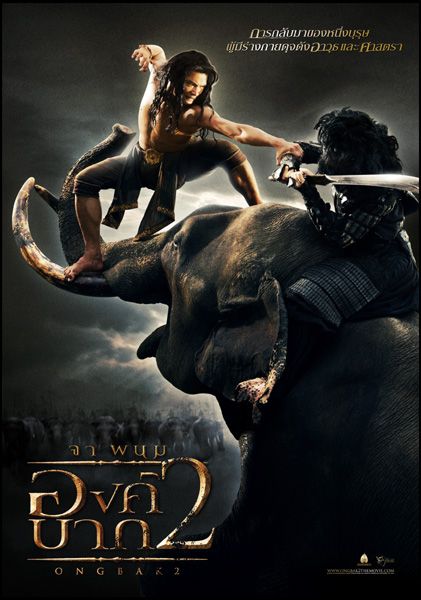
Abb.:
Plakat
[Bildquelle: Wikipedia. -- Fair use]
|
"Ong-bak 2 (Thai: องค์บาก 2) ist ein thailändischer Martial-Arts-Film aus dem Jahr 2008. Der bis zu diesem Zeitpunkt teuerste thailändische Film aller Zeiten basiert auf einer Idee von Tony Jaa (โทนี่ จา / จา พนม, 1976 - ) und Phanna Rithikrai (พันนา ฤทธิไกร, 1961 - ), die auch gemeinschaftlich Regie führen. Der Film ist die erste Regiearbeit von Hauptdarsteller Jaa. Die Inszenierung knüpft inhaltlich nicht an den Vorgänger Ong-Bak (องค์บาก)) aus dem Jahr 2003 an, sondern erzählt eine eigene Geschichte vor dem historischen Kontext des Niedergangs des Königreichs Sukhothai (อาณาจักรสุโขทัย). 2010 erschien mit Ong-Bak 3 (องค์บาก 3) bereits der dritte Teil der Reihe, der an den zweiten Teil anknüpft. HandlungThailand im 15. Jahrhundert. Während der Regentschaft von König Borommaracha II (สมเด็จพระบรมราชาธิราชที่ 2, 1389 - 1448). besetzt das Königreich Ayutthaya (อาณาจักรอยุธยา) das benachbarte Königreich Sukhothai (อาณาจักรสุโขทัย). Es ist eine Zeit der politischen Unruhen, des Verrats und der allgegenwärtigen Gefahr. In dieser Zeit lässt Fürst Sihadecho (ขุนสีหเดโช), ein gutmütiger provinzieller Herrscher und Kommandeur Sukhothais, seinen einzigen Nachkommen Tanz studieren, obgleich der temperamentvolle Tien (เทียน) lieber die Kampfkunst erlernen würde. Derweil verfolgt Fürst Rajasena (พระยาราชเสนา), ein verräterischer Sukhothai-Oberbefehlshaber, eigene Pläne und entsendet Mörder, um die Familie seines Konkurrenten Fürst Sihadecho auszulöschen. Blutige Gewaltexzesse folgen. Der kleine Tien überlebt als Einziger die Anschlagsserie. Verwahrlost landet er später in den Händen von skrupellosen Sklavenhändlern, die ihn zur Unterhaltung gegen ein ausgewachsenes Krokodil antreten lassen. Der ungleiche Kampf, aus dem Tien schließlich siegreich hervorgeht, erregt die Aufmerksamkeit des zwielichtigen Chernang (เชอนัง), dem Anführer einer berüchtigten Banditenbande. Der Räuber erkennt die außergewöhnlichen Fähigkeiten des jungen Waisen, befreit diesen aus den Händen der Sklavenhändler und nimmt ihn als seinen Adoptivsohn bei sich auf. In den folgenden Jahren wird Tien die ersehnte Kampfausbildung von Meistern verschiedener Martial-Arts-Künste zuteil. Eines Tages soll der inzwischen erwachsene Kampfkunstexperte Tien seinen alternden Ziehvater Chernang bei einem Raubzug als Anführer ablösen. Der junge Mann erledigt die letzte Prüfung mit Bravour und erweist sich als der prophezeite „größte Krieger aller Zeiten“. Im Anschluss verlässt der selbstbewusste Tien die entlegene Bergsiedlung, um den Tod seiner Eltern zu sühnen. Er stellt Fürst Rajasena und versetzt ihm einen todbringenden Stoß – nicht ahnend, dass der Regent den Anschlag überlebt und so zu seinem erbitterten Gegner wird. Bei seiner Rückkehr in die Räubersiedlung wird er feindselig von Fürst Rajasenas Häschern empfangen. In kräftezehrenden Auseinandersetzungen bekämpft er im Alleingang eine Übermacht gegnerischer Krieger – darunter auch seinen Ziehvater, der sich ihm nun als Mörder Fürst Sihadechos offenbart. Der Film endet mit der Überwältigung Tiens und dem Befehl Fürst Rajasenas, den Gefangenen möglichst langsam zu Tode zu foltern. Ob dieser letztlich überlebt, bleibt unklar. Eine Off-Stimme erklärt lediglich, dass Tien einen Weg finden könnte, den Tod zu überlisten. Besetzung
[Quelle: http://de.wikipedia.org/wiki/Ong-bak_2. -- Zugriff am 2013-03-27] |
2008-12-07

Neuseeland:
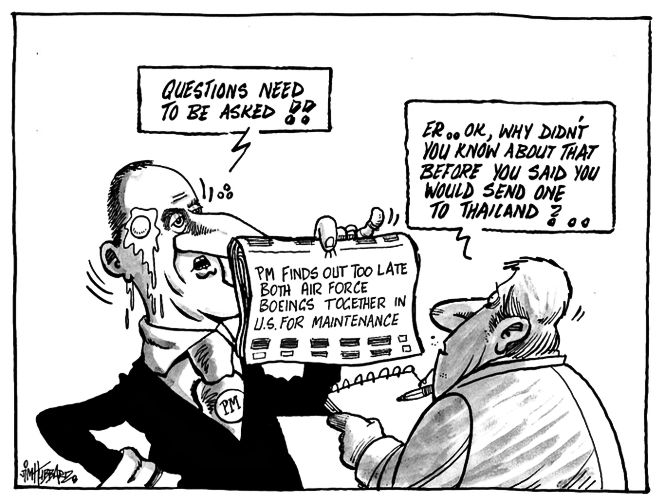
Abb.: "Shows Prime Minister John Key with egg on his
face after having promised to send an Air Force Boeing to Thailand to evacuate
New Zealanders caught up in the current unrest. John Key holds up a newspaper
that says that he discovered too late that both Boeings were in the United
States for maintenance."
[Bildquelle: "Questions need to be
asked!" "Er... OK, why didn't you know about that before you said you would
send one to Thailand?" 7 December, 2008.. Hubbard, James, 1949- :[Digital
caricatures published from 1 January, 2008. Includes a selection of 83
digital cartoons from 1999 and up to July 2005.]. Ref: DCDL-0008762.
Alexander Turnbull Library, Wellington, New Zealand.
http://natlib.govt.nz/records/23181761.
-- Zugriff am 2013-03-15. -- "You can copy this item for personal use, share
it, and post it on a blog or website. It cannot be used commercially without
permission"]
2008-12-17 - 2011-08-05

Abhisit Vejjajiva (อภิสิทธิ์ เวชชาชีวะ, 1964 - ) ist Ministerpräsident (นายกรัฐมนตรีแห่งราชอาณาจักรไทย - Prime Minister)
Abb.: อภิสิทธิ์ เวชชาชีวะ - Abhisit Vejjajiva
[Bildquelle: พีรพัฒน์ วิมลรังครัตน์. -- http://www.flickr.com/photos/thaigov/4584564011/in/set-72157623882942019/. -- Zugriff am 2011-09-17. -- Creative Commons Lizenz (Namensnennung)]
Abb.: อภิสิทธิ์ เวชชาชีวะ - Abhisit Vejjajiva / von Murray Webb (1947 - ), 2009
[Bildquelle: Abhisit Vejjajiva. 16 April 2009. Webb, Murray, 1947- :[Digital caricatures published from 29 July 2005 onwards (2006, 2007, 2008). Includes a selection of digital caricatures published from 2002 and up to July 2005.]. Ref: DCDL-0011029. Alexander Turnbull Library, Wellington, New Zealand. http://natlib.govt.nz/records/22906644. -- "You can copy this item for personal use, share it, and post it on a blog or website. It cannot be used commercially without permission"]
"Abhisit Vejjajiva (Thai: อภิสิทธิ์ เวชชาชีวะ: [ʔàpʰísìt wêːtʨʰaːʨʰiːwáʔ]; * 3. August 1964 in Newcastle upon Tyne, Großbritannien) ist ein thailändischer Politiker. Er war von Dezember 2008 bis August 2011 thailändischer Premierminister und von Februar 2005 bis Juli 2011 Vorsitzender der Demokratischen Partei Thailands. Als zentrale Figur des oppositionellen Widerstandes gegen die TRT-Regierung von Premierminister Thaksin Shinawatra führte er den Boykott gegen die Parlamentswahlen vom 2. April 2006 an, der mittelbar zum Militärputsch vom 19. September desselben Jahres führte. Jugend und Ausbildung
Abhisit Vejjajiva wurde in Newcastle-upon-Tyne, Großbritannien, geboren und hat zwei ältere Schwestern. Er besuchte das Eton College sowie die Oxford University und beendete sein Studium mit Auszeichnung als Bachelor der Philosophie, Politikwissenschaft und Wirtschaftswissenschaften. Für kurze Zeit lehrte er danach an der Königlich Thailändischen Chulachomklao-Militärakademie, kehrte aber nach Oxford zurück, um seinen Mastertitel in Wirtschaftswissenschaften zu erwerben. Auch erhielt er von der Ramkhamhaeng-Universität im Jahre 1990 einen Bachelortitel in den Rechtswissenschaften. Nach seinen Abschlüssen lehrte Abhisit Ökonomie an der Thammasat-Universität.
Er ist mit der ehemaligen Zahnärztin sowie jetzigen Mathematikdozentin Pimpen Sakuntabhai (Chulalongkorn-Universität) verheiratet und hat mit ihr zwei Kinder.
Weg in die PolitikAbhisit begann seine politische Karriere 1992 als demokratischer Parlamentarier für den Stadtbereich Bangkok. 1995 und 1996 wurde er auf seinen Sitz wiedergewählt und zog in den Wahlen von 2001 sowie 2005 über einen Listenplatz ins Parlament ein. Während seiner politischen Tätigkeit fungierte Abhisit als Sprecher der Demokratischen Partei, als Regierungssprecher, Staatssekretär des Premierministers für Politische Angelegenheiten, Vorsitzender des parlamentarischen Ausschusses für Bildungsfragen und als Staatsminister im Amt des Premierministers.
Vorsitzender der Demokratischen Partei Das Ringen um die FührungspositionAbhisits Fähigkeiten und Ehrgeiz machten ihn zum Rivalen seines Parteivorsitzenden Banyat Bantadtan. Ihre Gegnerschaft war ein Grund dafür, dass die Demokraten in den Wahlen von 2005 erdrutschartige Verluste gegenüber Thaksins TRT-Partei hinnehmen mussten. Nach der Wahlniederlage trat Banyat von seinem Posten zurück, und Abhisit wurde zu seinem Nachfolger gewählt.
Anti-Thaksin-KriseAls Thaksin am 25. Februar 2006 Neuwahlen ankündigte, gab Abhisit bekannt, er „sei bereit, ein Premierminister zu werden, der sich an die Prinzipien guter Regierungsarbeit und Ethik hält, nicht an jene des Autoritarismus“.
Am nächsten Tag allerdings ließ er verlautbaren, dass die Demokraten zusammen mit anderen Oppositionsparteien die Wahlen boykottieren würden. Bei einer Pressekonferenz schloss sich Abhisit mit Banharn Silapa-Archa (Pak Chart Thai-Partei) sowie Sanan Kachornprasart (Mahachon-Partei) zusammen; die Wahlen seien unrechtmäßig und als Versuch Thaksins zu bezeichnen, die öffentliche Wahrnehmung von dem Skandal abzulenken, den der Verkauf von Thaksins Telekommunikationsunternehmen Shin Corporation nach Singapur verursacht hatte. Abhisit hielt es für wahrscheinlich, dass die Wahlen ohnehin das Ergebnis erbringen würden, das Thaksin erwarte, und bat König Bhumibol Adulyadej am 24. März 2006 formell darum, einseitig einen neuen Premierminister zu ernennen. Dieser lehnte die Bitte am 26. April 2006 jedoch mit Hinweis auf die fehlende Verfassungsmäßigkeit eines solchen Aktes ab.
Aufgrund des Boykottes erlangte die TRT-Partei eine überwältigende Stimmenmehrheit am Wahltag. Die Demokraten verklagten in der Folge die Wahlkommission und strengten eine Petition auf Nichtigkeit der Wahlen und Nachwahlen an. Die Demokratische Partei wiederum sah sich ihrerseits Beschuldigungen ausgesetzt, kleinere Oppositionsparteien durch Bestechungsgelder zum Wahlboykott beeinflusst zu haben. Abhisit suchte in der Folge das Gespräch mit Diplomaten aus zwanzig Staaten, um die Situation zu erklären.[1]
Politische ZieleAbhisit tritt gemäß seinem offiziellen Parteiprogramm für eine „Agenda für das Volk“ ein, mit Bildungsanstrengungen im Mittelpunkt. Er spricht sich auch gegen die Privatisierung zentraler staatlicher Funktionsbereiche wie der Energie- und Wasserversorgung aus; bereits privatisierte Betriebe sollen rückverstaatlicht werden.
Populistische Akte der Thaksin-Regierung, wie die 30-Baht-Krankenversicherung, verspricht Abhisit nicht zurückzunehmen, sondern „zu verbessern“ - er wolle die Gesundheitsversorgung sogar gänzlich kostenfrei zur Verfügung stellen, ebenso wie die Schulbildung, Lehrmittel sowie die Schulspeisungen. Er tritt für eine Anhebung des gesetzlichen Mindestlohnes ein. Nach Abhisits Vorstellungen sollen demokratische Parlamentarier auch verpflichtet werden, ihre Besitzverhältnisse und Nebeneinkünfte offenzulegen (nach der bis zum Militärputsch gültigen Rechtslage mussten dies nur Personen in Regierungspositionen).
Weiter strebt Abhisit die Senkung der Benzinpreise an, indem er die geltende Steuer von 2,50 Baht (umgerechnet etwa 0,06 Euro) pro Liter, die dem staatlichen Ölfonds zugute kommt, abschaffen will. Dieser Plan ist unter Hinweis auf die resultierende Marktverzerrung und auf Umweltbedenken stark kritisiert worden.
In Anbetracht der eskalierenden Gewalt im Süden Thailands versprach Abhisit am 13. Juli 2006, die dortigen Aufstände muslimischer Separatisten dadurch anzugehen, das Thema in der politischen Tagesordnung ganz nach oben zu setzen, was bis heute jedoch nicht von Erfolg gekrönt werden konnte.[1]
PremierministerAm 15. Dezember 2008 wurde Abhisit vom Parlament zum 27. Premierminister Thailands gewählt.[2]
Im Frühling 2010 versuchten die sogenannten Rothemden (เสื้อแดง) durch eine Blockade des Bangkoker Geschäftsviertels seine Regierung zum Rücktritt zu bewegen. Das besetzte Gelände wurde schließlich durch das Militär gewaltsam geräumt und die Regierung blieb im Amt.
Abhisit Vejjajiva trat als Spitzenkandidat der Demokratischen Partei bei der Parlamentswahl in Thailand 2011 am 3. Juli an. In Folge der Niederlage seiner Partei trat er vom Posten des Parteivorsitzenden zurück.[3] Anfang August wurde er auch im Amt des Premierministers von Yingluck Shinawatra abgelöst, der Vorsitzenden der Pheu-Thai-Partei und Wahlsiegerin.
Einzelnachweise
- ↑ a b http://www.nationmultimedia.com/breakingnews/read.php?newsid=30007710
- ↑ vgl. Neuer Regierungschef ist gewählt – wieder Proteste bei welt.de, 15. Dezember 2008
- ↑ Regierungschef zieht Konsequenzen. In: die tageszeitung. 4. Juli 2011, abgerufen am 4. Juli 2011 (deutsch)."
[Quelle: http://de.wikipedia.org/wiki/Abhisit_Vejjajiva. -- Zugriff am 2011-10-06]
2008-12-08


DER SPIEGEL: Das Schweigen des Königs : Bürgerliche und Monarchisten haben erfolgreich den Aufstand geprobt und das Land in die Krise gestürzt. Jetzt rüsten sich die Regierungsfreunde zum Gegenangriff und schwören Rache / von Thilo Thielke
"Eigentlich sollte der König am Vorabend seines Geburtstages die traditionelle Fernsehrede an sein Volk halten. Selten wurde diese Ansprache derart fiebrig erwartet wie in diesem Jahr. Doch Bhumibol schwieg. Der König sei "etwas krank", erklärte Prinzessin Maha Chakra Sirindhorn im Radio, er habe "Rachenprobleme und keinen Appetit". Zum ersten Mal, seit Bhumibol 1946 als Rama IX. König wurde, ließ er die Geburtstagsansprache ausfallen. Das ist kein gutes Zeichen."
[Quelle: Der Spiegel. -- 2008-12-08. -- S. 138. -- Fair use]
2008-12-17 - 2011-05

64. Kabinett: Abhisit (อภิสิทธิ์)
2008-12-22 - 2009-01-24
Kanchana Ketkaew (กาญจนา เกตุแก้ว, 36) lebt in einem Glasraum von 12 m² zusammen mit 5,320 Skorpionen 33 Tage und Nächste lang im Royal Garden Plaza in Pattaya (พัทยา). Sie wird 13mal von Skorpionen gestochen, kommt aber ins Guinness Buch der Rekorde.
2008-12-24
Suphan Buri (สุพรรณบุรี): Eröffnung des Dragon Descendants Museum (พิพิธภัณฑ์ลูกหลานพันธุ์มังกร)
Abb.: Dragon Descendants Museum (พิพิธภัณฑ์ลูกหลานพันธุ์มังกร), Suphan Buri (สุพรรณบุรี), 2009
[Bildquelle: ScorpianPK / Wikimedia. -- GNU FDLicense]
Abb.: Lage von Suphan Buri (สุพรรณบุรี)
[Bildquelle: OpenStreetMap. -- Creative Commons Lizenz (Namensnennung, share alike)]
"The main purpose of the exhibition space inside the tremendous golden dragon is to broaden the knowledge concerning the close relationship between Thais and the Chinese, as well as to present this long-running history in an enjoyable way. The 35-meter high and 135-meter long gigantic dragon building in the shrine of Suphan Buri [สุพรรณบุรี] city pillar [หลักเมือง] is known as the Dragon Descendants Museum [พิพิธภัณฑ์ลูกหลานพันธุ์มังกร]. The museum was founded in the year 1996 when Banhan Silpa-archa [บรรหาร ศิลปอาชา, 1932 - ] was the prime minister of Thailand to commemorate the 20th anniversary of diplomatic relations with the People’s Republic of China. There was an official grand opening on the 24th of December 2008, and after that, the museum became the province’s new and magnetic cultural attraction. The museum inside the dragon building is arranged into twenty one display rooms , presenting 5,000 years of Chinese history, philosophy, beliefs and its close relationship with Thailand. In addition, there is an interesting exhibition showing the background of Thais with a dash of Chinese. For example, the lineage of Chinese family names from ancestral times, Chinese descendants are proud of this inheritance since their settlement in Thailand under royal patronage. Not only the information has been carefully researched, but the presentation also combines modern interactive computer technology to entertain and provide you with knowledge at the same time."
[Quelle: http://www.tourismthailand.org/Dragon-Descendants-Museum. -- Zugriff am 2014-11-23]
2008-12-27
Neujahrs-Party der Gelbhemden (เสื้อเหลือง)
Abb.: Neujahrs-Party der Gelbhemden (เสื้อเหลือง): Siriluk Phongchok (ศิริลักษณ์ ผ่องโชค, 1977 - ), Impact Arena, Muang Thong Thani (อิมแพ็ค เมืองทองธานี), Nonthaburi (นนทบุรี), 2008-12-27
[Bildquelle: tikpid. -- http://www.flickr.com/photos/27123393@N06/3147036467/. -- Zugriff am 2012-10-18. -- Creative Commons Lizenz (Namensnennung)]
Abb.: Lage der Impact Arena, Muang Thong Thani (อิมแพ็ค เมืองทองธานี)
[Bildquelle: OpenStreetMap. -- Creative Commons Lizenz (Namensnennung, share alike)]
2008-12-30
Rede von Nattawut Saikua (ณัฐวุฒิ ใสยเกื้อ, 1975 -. ) bei einer Demonstration der Rothemden (เสื้อแดง):
"He spoke about the rights and voices of the lower class people that were robbed and the injustice they had received. The final six minutes were one of the best public speeches in recent Thai history. Improvised but beautiful, the speech played with two metaphors, din and fa - literally soil or earth and sky. Each of them signifies multiple meanings and nuances. In the particular moment of the speech, nevertheless, hundreds of thousands of people there and those who were watching it subsequently on YouTube understood both metaphors. Here is an excerpted translation of the final six minutes, minus its poetic elements which are beyond my abilities to translate. 'There is no justice left in this country.... We do not get fair treatment from (the state). There is no space for us in the media either. No opportunity for us to announce what we fight for or why. Definitely, we do not have "connections" (sen).34...
We were born on the soil, growing up on the soil, and walking on the soil. When we stand on the soil, the distance from the sky is so vast. (Roars, Cheers) Standing on the soil, looking up high above, we know that sky is so far away. Looking down, we know we are worthy like dirt. But with the increasing power of the red shirts ... even when we stand on earth, speaking from the earth, the sky will hear us. For sure (emphasized). (Roars and cheers) The cheers right now, from people who are on the soil, grew up on the soil, will be heard by the sky. For sure (emphasized). The red-shirt people will tell the soil and the sky that "we have hearts too" (emphasized). (Louder roars and cheers) ... The red-shirt people tell the soil and the sky that "we are Thai people too (emphasized).
The red-shirt people want to ask the soil and the sky, if there is no place to stand, they want us to find our own place, don't they? (Louder roars and cheers) ... These cheers will be heard by the sky ....
No matter what have happened, we already have the greatest thing in our life ... the democratic spirit. For this great spirit... for the greatness of all of you [the crowd], the only thing I could do is this.... [He then kneeled down to the floor, bent his body down, paying respect (wai) to the crowd; very loud and lengthy cheers from the crowd]. ... People's power is so great!'"
[Quelle: Thongchai Winichakul [ธงชัย วินิจจะกูล]: The monarchy and anti-monarchy . two elephants in the room of Thai politics and the state of denial. -- In: "Good coup" gone bad : Thailand's political developments since Thaksin's downfall / ed by Pavin Chachavalpongpun [ปวิน ชัชวาลพงศ์พันธ์]. -- Singapore : Institute of Southeast Asian Studies, 2014. -- 290 S. ; 23 cm. -- ISBN 9789814459600. -- Konferenzband zu: Five years after the military coup : Thailand's political developments since Thaksin's downfall. -- Singapore 2011-09-19. -- S. 93]
Abb.: Nattawut Saikua (ณัฐวุฒิ ใสยเกื้อ)
[Bildquelle: th.Wikipedia]
"Nattawut Saikua (thailändisch ณัฐวุฒิ ใสยเกื้อ, [nàttʰàwút sǎi.kɯ̂ːa]; * 4. Juni 1975 in der Provinz Nakhon Si Thammarat (นครศรีธรรมราช), Thailand) ist ein thailändischer Politiker. Er ist der Generalsekretär und Sprecher der National United Front of Democracy Against Dictatorship (แนวร่วมประชาธิปไตยต่อต้านเผด็จการแห่งชาติ, „Rothemden“). Er initiierte die ersten Rothemden-Aktionen. Bekannt wurde er durch die Demonstrationen im Frühling 2010 in der Hauptstadt Bangkok. 2011 wurde er auf der Liste der Pheu-Thai-Partei (พรรคเพื่อไทย) ins Parlament gewählt. Seit 18. Januar 2012 ist er Mitglied im Kabinett von Yingluck Shinawatra (ยิ่งลักษณ์ ชินวัตร, 1967 - ), zunächst als stellvertretender Landwirtschaftsminister, nach einer Kabinettsumbildung im Dezember 2012 als stellvertretender Handelsminister.
Familie und AusbildungNattawut wurde im Tambon Sichon, Amphoe Sichon (สิชล), Provinz Nakhon Si Thammarat geboren. Er ist mit Sirisakul Saikua (สิริสกุล ใสยเกื้อ) verheiratet, mit der er einen Sohn und eine Tochter hat. Jettanan Saikua (เจตนันท์ ใสยเกื้อ) ist sein älterer Bruder.
Nattawut schloss 1998 ein Studium der Kommunikationswissenschaft an der Thurakit-Bandit-Universität (มหาวิทยาลัยธุรกิจบัณฑิตย์) mit dem Bachelorgrad ab. Später nahm er am Master of Public and Private Management-Programm des National Institute of Development Administration (NIDA, สถาบันบัณฑิตพัฒนบริหารศาสตร์) teil, das er 2005 abschloss.[1]
Redner und FernsehstarNattawut hat den Ruf eines mitreißenden Redners.[2] Bereits als Schüler nahm er mit Erfolg an Debattierwettbewerben teil,[1] einschließlich eines Auftritts beim Sender MCOT-3 (สถานีวิทยุโทรทัศน์ไทยทีวีสีช่อง 3 อ.ส.ม.ท.). Später arbeitete er als Sprecherzieher.[1] Nattawut erlangte Bekanntheit durch seine Mitwirkung an der Fernsehsendung Sapa Joke (สภาโจ๊ก, „Scherz-Parlament“) beim Privatsender iTV (สถานีโทรทัศน์ไอทีวี). Die Sendung parodierte das thailändische Parlament und die Politik im Allgemeinen. Nattawut „synchronisierte“ Trairong Suwankiri (ไตรรงค์ สุวรรณคีรี, 1944 - ), den damaligen Vizechef der Demokratische Partei (พรรค ประชาธิปัตย์).
Politische Karriere und Aktivismus2001 trat Nattawut der Chart-Pattana-Partei (พรรคชาติพัฒนา) bei, wechselte jedoch 2005 zur Partei Thai Rak Thai (พรรคไทยรักไทย, TRT) des Ministerpräsidenten Thaksin Shinawatra (ทักษิณ ชินวัตร, 1949 - ). Innerhalb der TRT, begründete er eine Gruppierung gemeinsam mit seinen Freunden und politischen Verbündeten Jatuporn Prompan (จตุพร พรหมพันธุ์, 1965 - ) und Veera Musikapong (วีระ มุสิกพงศ์, 1948 - ).[1] Nach dem Sturz Thaksins und der angeordneten Auflösung der TRT, trat Nattawut bei den Wahlen 2007 für die Volksmachtpartei (พรรคพลังประชาชน)an. Am 6. Februar 2008 wurde er stellvertretender Regierungssprecher der Regierung Samak Sundaravej (สมัคร สุนทรเวช, 1935 - 2009) und am 7. Oktober 2008 Regierungssprecher der Regierung Somchai Wongsawat (สมชาย วงศ์สวัสดิ์, 1947 - ).
Nattawutt ist, gemeinsam mit Jatuporn und Veera, einer der Anführer der United Front for Democracy Against Dictatorship (แนวร่วมประชาธิปไตยต่อต้านเผด็จการแห่งชาติ, UDD), die umgangssprachlich als Bewegung der „Rothemden“ (เสื้อแดง) bezeichnet wird. Die UDD ist eine politische Bewegung, die sich entschieden gegen den Putsch 2006, der die Regierung Thaksin Shinawatras stürzte, die vom Militär eingesetzte Übergangsregierung und die Regierung von Abhisit Vejjajiva (อภิสิทธิ์ เวชชาชีวะ) engagierte und auch erbittert protestierte. Nattawut und seine Freunde spielten eine Rolle beim Start des Thaksin-freundlichen Fernsehsenders People’s Television (บริษัท เพื่อนพ้องน้องพี่ จำกัด). Zudem moderierten sie die Polit-Talkshow Truth Today.[1] Nattawut war Mitorganisator der Massenproteste 2009 und führte, gemeinsam mit den anderen UDD-Chefs die „Rothemden“ in die heftigen Unruhen von März bis Mai 2010, die zur Niederwerfung durch das Militär im April und Mai führten.[2] Nattawut, Jatuporn und andere Rothemden-Anführer stellten sich der Polizei am 19. Mai 2010, um ein weiteres Blutvergießen durch das brutale Durchgreifen des Militärs zu verhindern.[3] Nattawut Saikua wurde wegen seiner Beteiligung an den Protesten in Bangkok 2010 mit mehreren anderen Anführern der Bewegung wegen Terrorismus angeklagt.[4] Am 22. Februar 2011 wurde er gegen Zahlung einer Kaution auf freien Fuß gesetzt.[5]
Bei der Parlamentswahl 2011 wurde Nattawut Saikua für die Liste der Pheu-Thai-Partei, die die Wahlen auch insgesamt gewann, ins Parlament gewählt.[6] Als Ministerpräsidentin Yingluck Shinawatra ihr Kabinett am 18. Januar 2011 umbildete, wurde Nattawut zum stellvertretenden Minister für Landwirtschaft und Genossenschaften ernannt."
[Quelle: http://de.wikipedia.org/wiki/Nattawut_Saikua. -- Zugriff am 2015-01-4]
2008-12-31
Tennis-Profispielerin Noppawan Lertcheewakarn (นพวรรณ เลิศชีวกานต์, 1991 - ) ist die beste Girl's Junior Player.
Abb.: Noppawan Lertcheewakarn (นพวรรณ เลิศชีวกานต์), 2008
[Bildquelle: coljay72. -- http://www.flickr.com/photos/coljay72/2644222064/. -- Zugriff am 2012-01-13. -- Creative Commons Lizenz (Namensnennung, keine kommerzielle Nutzung)]
"Noppawan Lertcheewakarn (Thai: นพวรรณ เลิศชีวกานต์; born 18 November 1991) is a professional Thai tennis player. At the Wimbledon 2009, she won the junior singles title. As of 12 April 2010, Lertcheewakarn has a rank on the WTA singles tour of 150 and doubles tour of 97. Playing style
Lertcheewakarn is a counterpuncher with her two-handed backhand and forehand. She is intelligent on court and has a good strategy. Her game is lacking powerful strokes, but based on precise groundstrokes. Her main weakness is considered to be her serve, lacking of power, consistency and stability.
Lertcheewakarn has inspiration by Tamarine Tanasugarn (แทมมารีน ธนสุกาญจน์, 1977 - ), Monica Seles, Marion Bartoli, and Williams sisters.
Lertcheewakarn is currently coached by Chuck Kriese.
Junior careerLertcheewakarn has been named world No. 1 in ITF junior circuit in, becoming the first female Asian player to hold that position. In following weeks, Lertcheewakarn won the 2008 Junior World Championship.
Lertcheewakarn has reached overall 2 Grand slam Singles finals, 2008 Wimbledon losing to Laura Robson and 2009 Wimbledon defeated Kristina Mladenovic and 4 Grand Slam Doubles finals, capturing 3 titles at 2008 US Open with Sandra Roma, 2009 French Open with Elena Bogdan, 2009 Wimbledon with Sally Peers, and a finalist at 2009 US Open with Elena Bogdan.
Professional career 2006–2009Lertcheewakarn started playing her first ITF Circuit events in August 2006.
Lertcheewakarn made her WTA Tour main draw debut in 2007 as a qualifier, defeating world No. 97 Melinda Czink of Hungary in straight sets in the final qualifying round, before losing to Aiko Nakamura (中村藍子) in three sets in the first round.
In May 2008, Lertcheewakarn won her first pro title in singles at $25,000 Balikpapan, defeating the top seed Isha Lakhani of India in straight sets.
In 2009, Lertcheewakarn received a main draw wildcard to Pattaya Women's Open, lost early in a first round match against Shahar Pe'er (שחר פאר), which lasted nearly 52 minutes with a score, 6–1, 6–0.
2010She received a wild card to PTT Pattaya Open, but lost in the first round to Chanelle Scheepers, 7–6(9), 4–6, 4–6 in a two hour and forty minute match in which Lertcheewakarn had a 4–1 lead in the second set. She then received a wildcard to the Malaysian Open where she beat Ksenia Pervak (Ксения Юрьевна Первак) in the first round in straight sets, making this her first WTA main draw win ever. At the US$50,000 Aegon Trophy in Nottingham, she advanced into the quarterfinal round before losing to Elena Baltacha (Олена Балтача) in two straights sets. Lertcheewakarn received a wildcard entry to the Wimbledon Championships, where she was defeated by Andrea Hlaváčková in the first round 6–3 6–2. Lertcheewakarn ended the year inside top 200 in singles and doubles.
2011Lertcheewakarn qualified in Auckland but lost to Heather Watson in the first round, 6–1, 6–1. In 2011 Malaysian Open, Lertcheewakarn defeated Alberta Brianti, 6–4, 2–6, 6–2, she lost to a qualifier, Anne Kremer, in the second round. In double, Lertcheewakarn reached WTA double final partnering Jessica Moore, they lost to Dinara Safina (Динара Мөбин кызы Сафина) and Galina Voskoboeva (Галина Олеговна Воскобоева), 7–5, 2–6, 10–5. She lost in the first round of 2011 Baku Cup to Ksenia Pervak 3–6, 6–1, 7–5, having led 5–3 in the third set. At the 2011 US Open Lertcheewakarn qualified for her first Grand Slam tournament, defeating Zuzana Kučová, Ashley Weinhold and Kristýna Plíšková in three tough matches. In the first round, in just her second Grand Slam tournament she lost to Anastasiya Yakimova (Настасься Якімава) 0-6 6-4 3-6."
[Quelle: http://en.wikipedia.org/wiki/Noppawan_Lertcheewakarn. -- Zugriff am 2012-01-13]
Verwendete Ressourcen
ausführlich: http://www.payer.de/thailandchronik/ressourcen.htm
Zu Chronik 2009 / B. E. 2552. -- 1. undatiert
